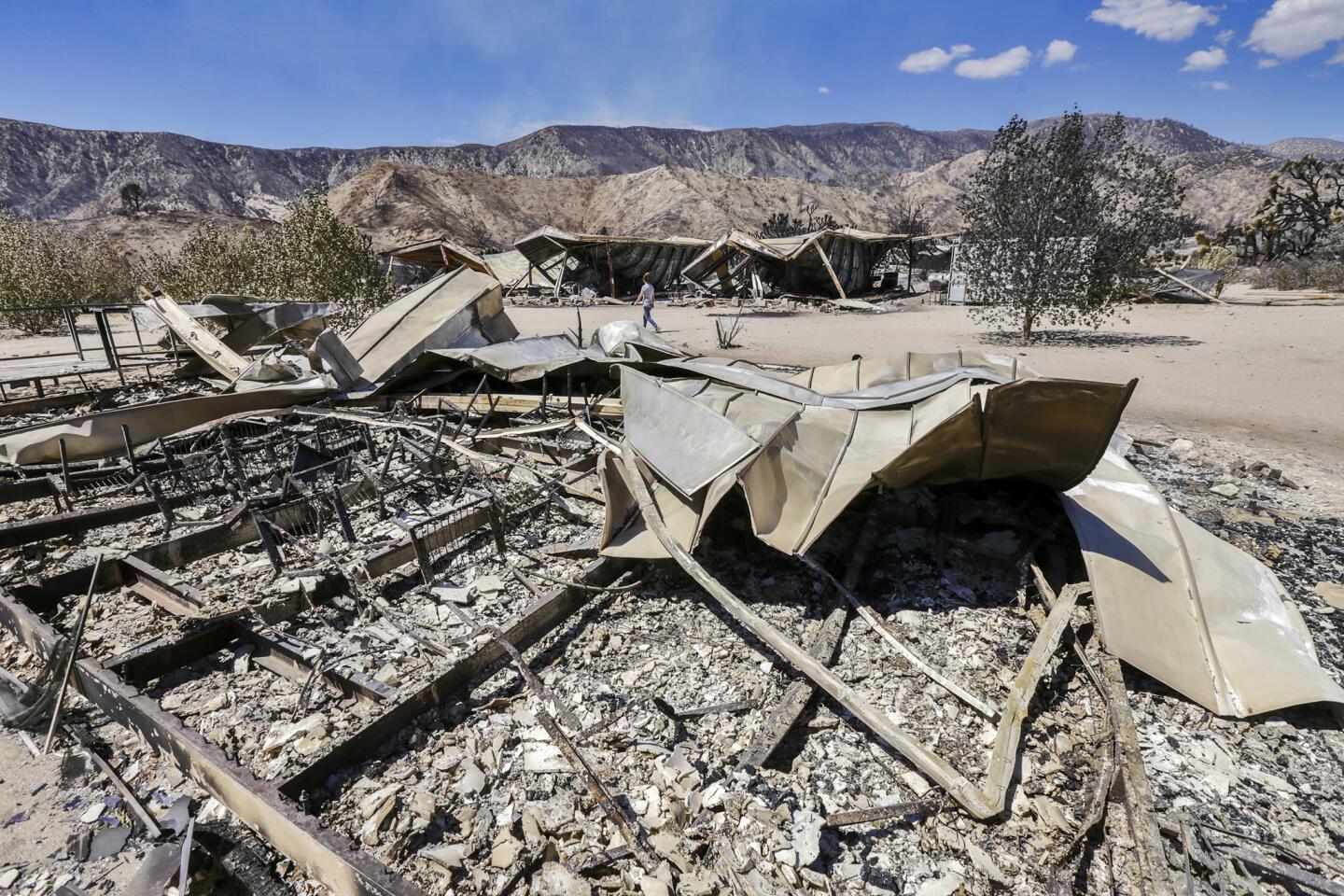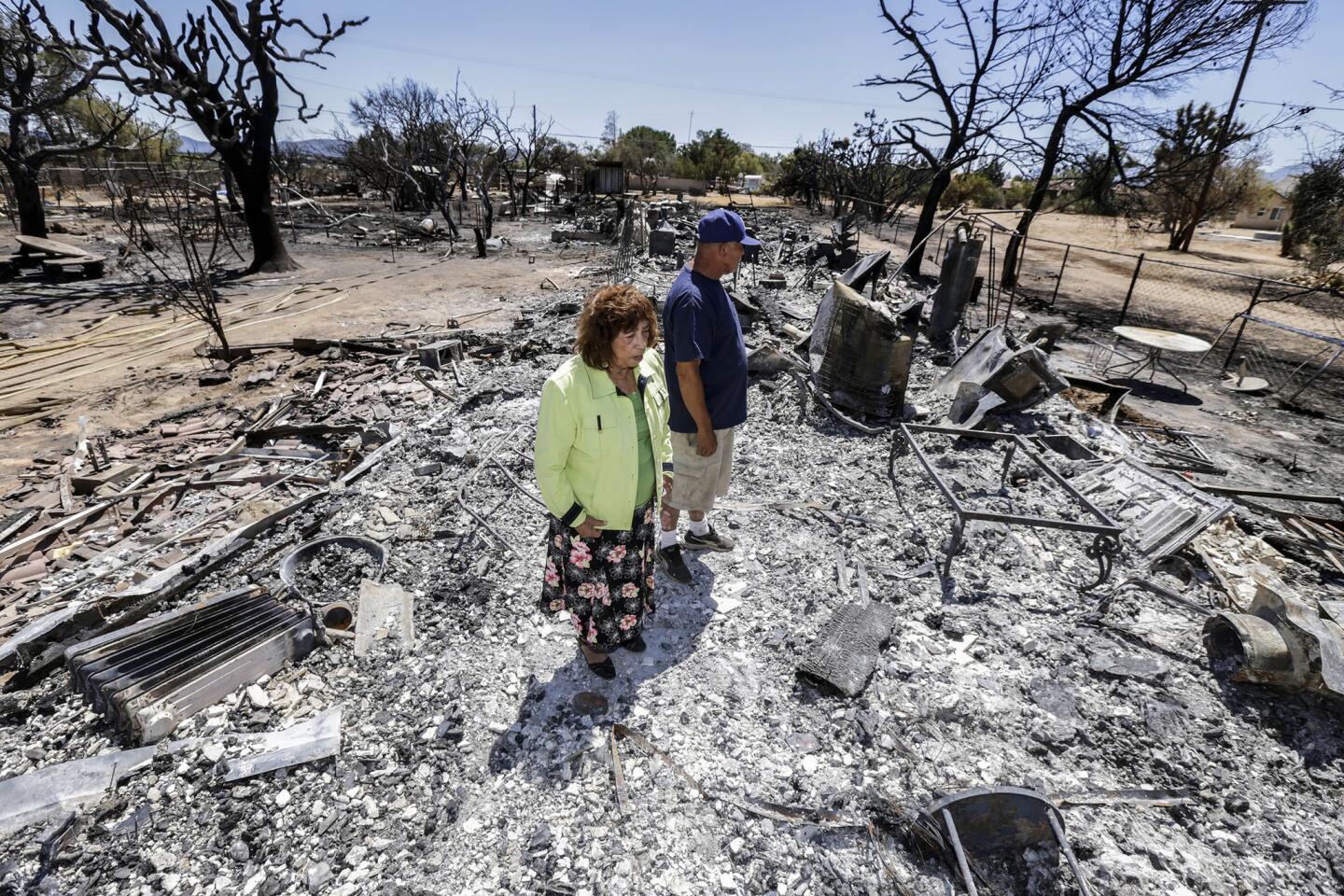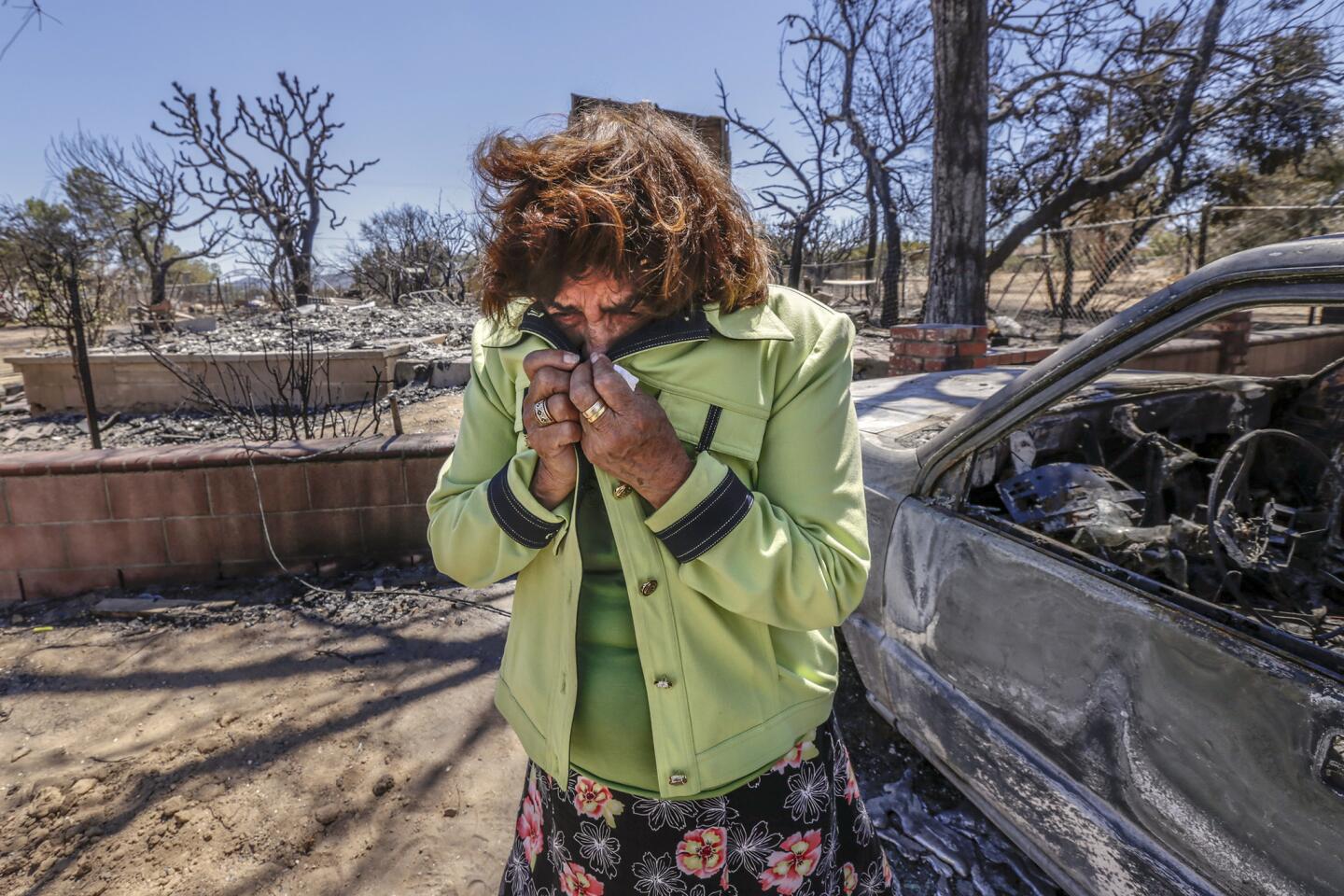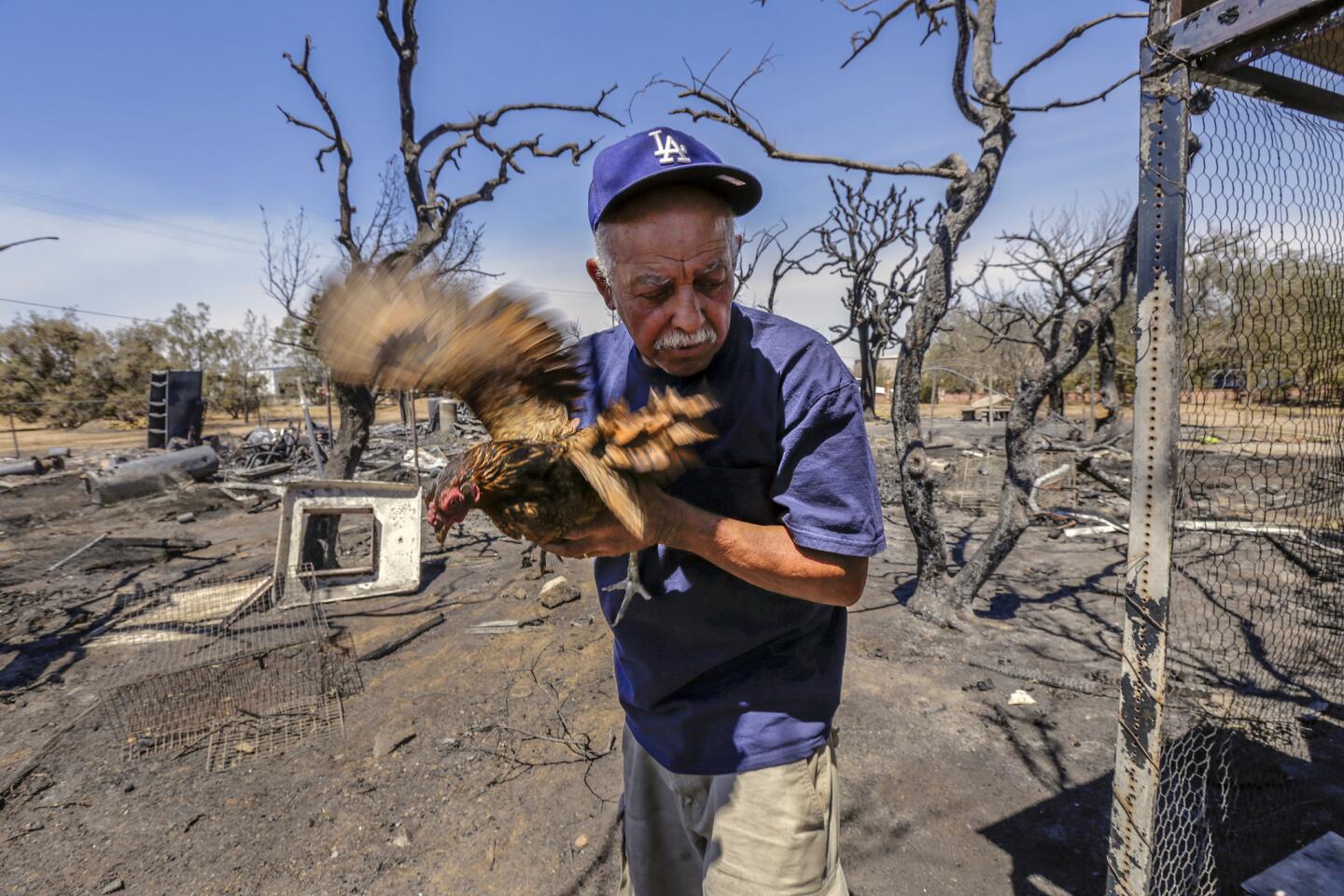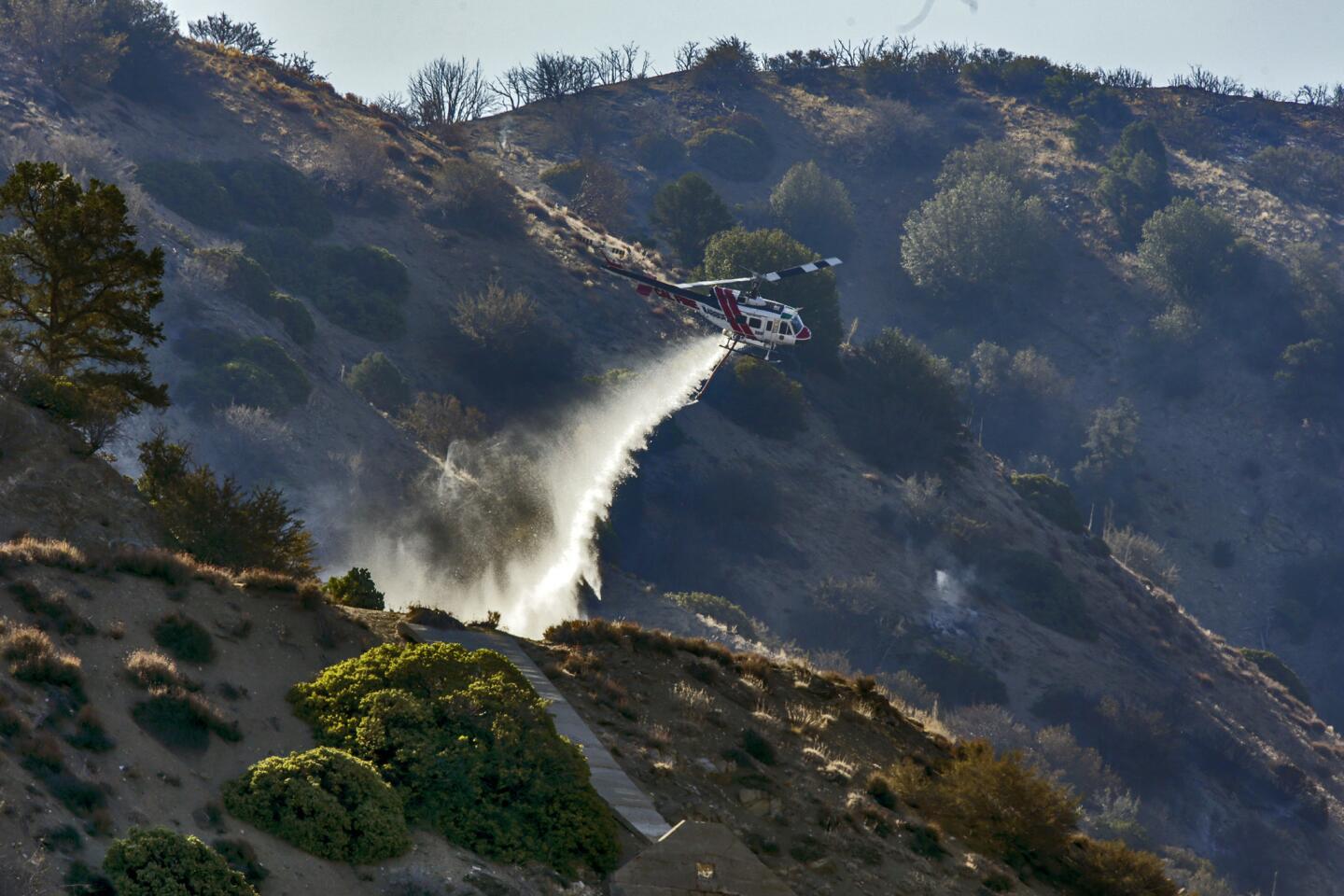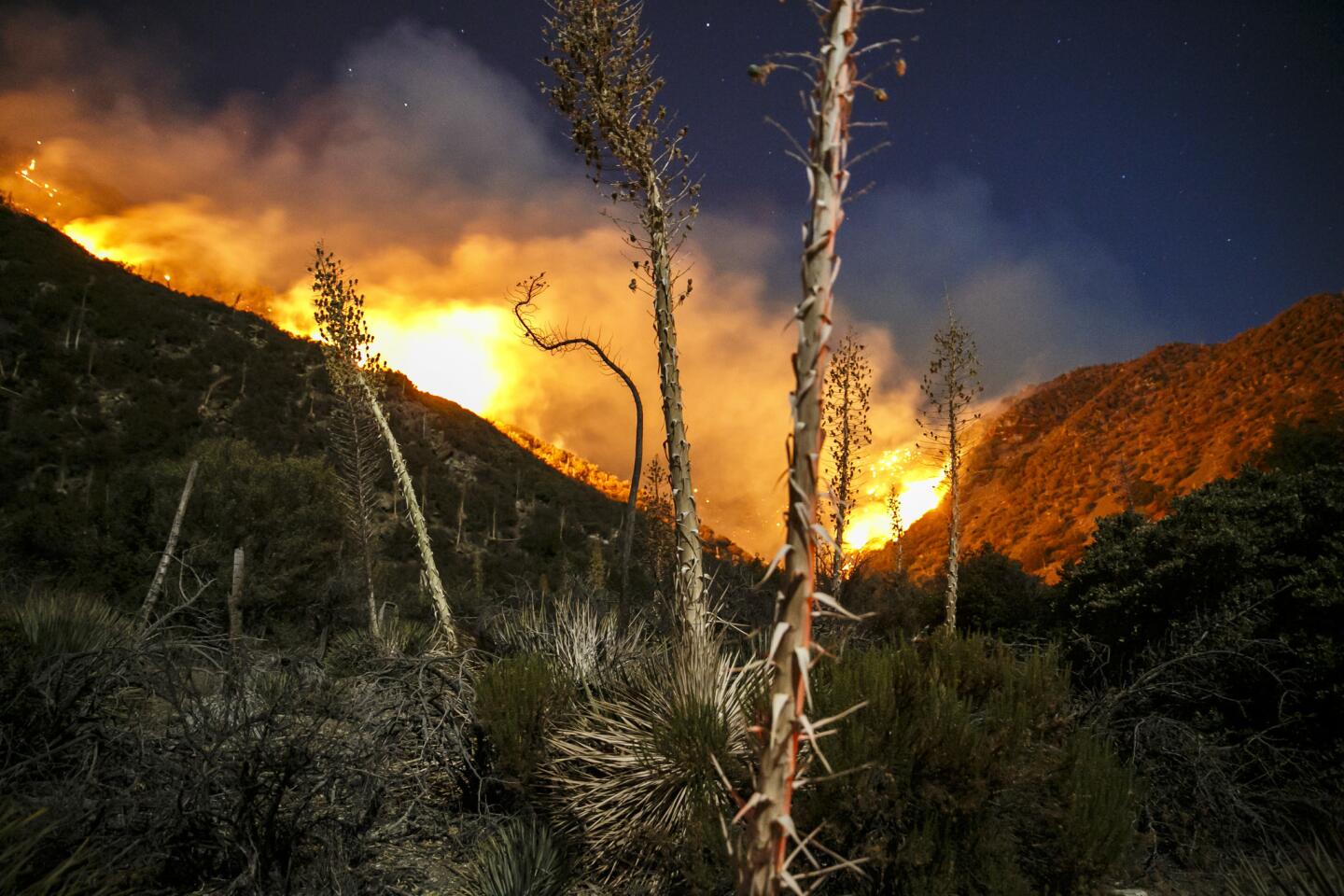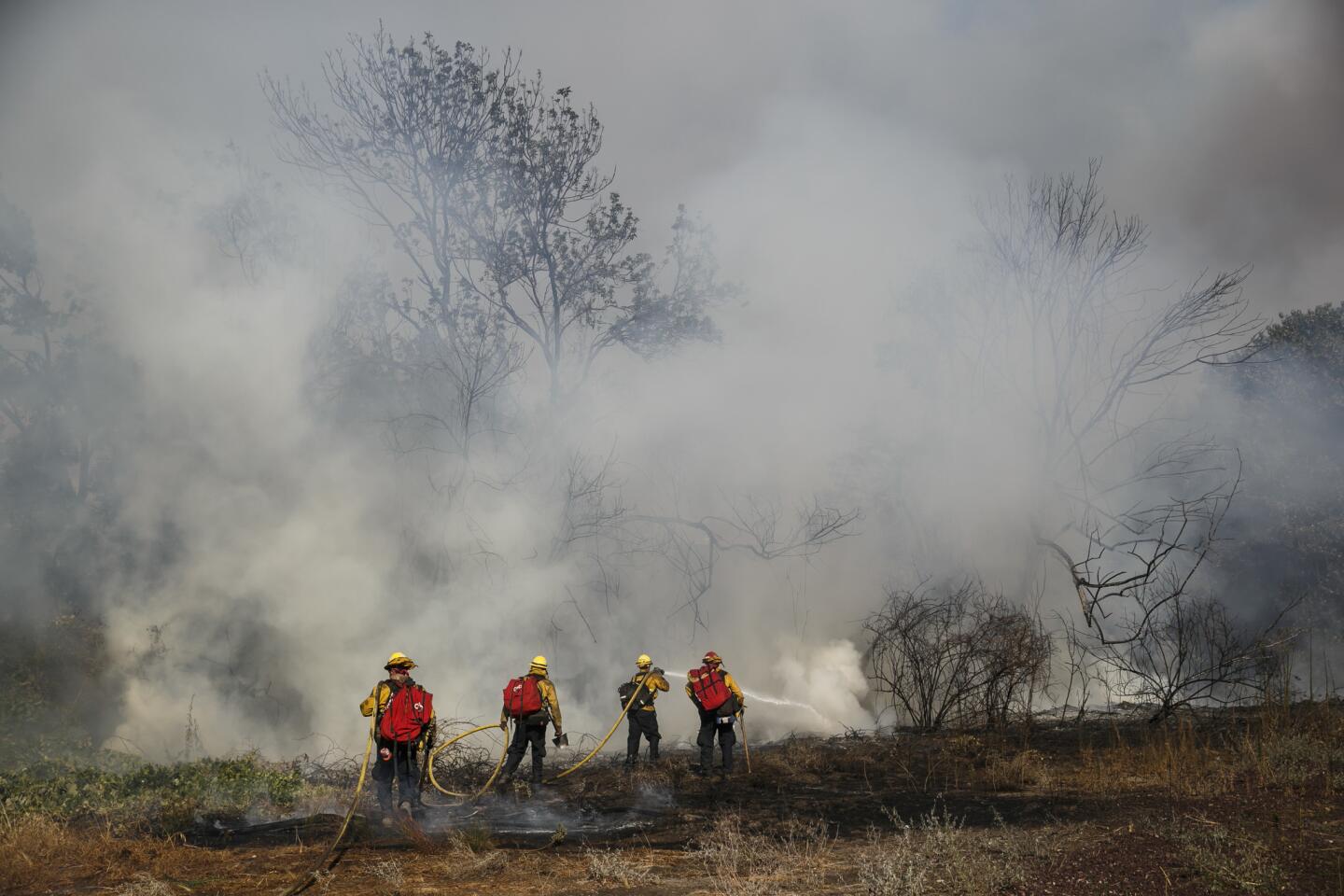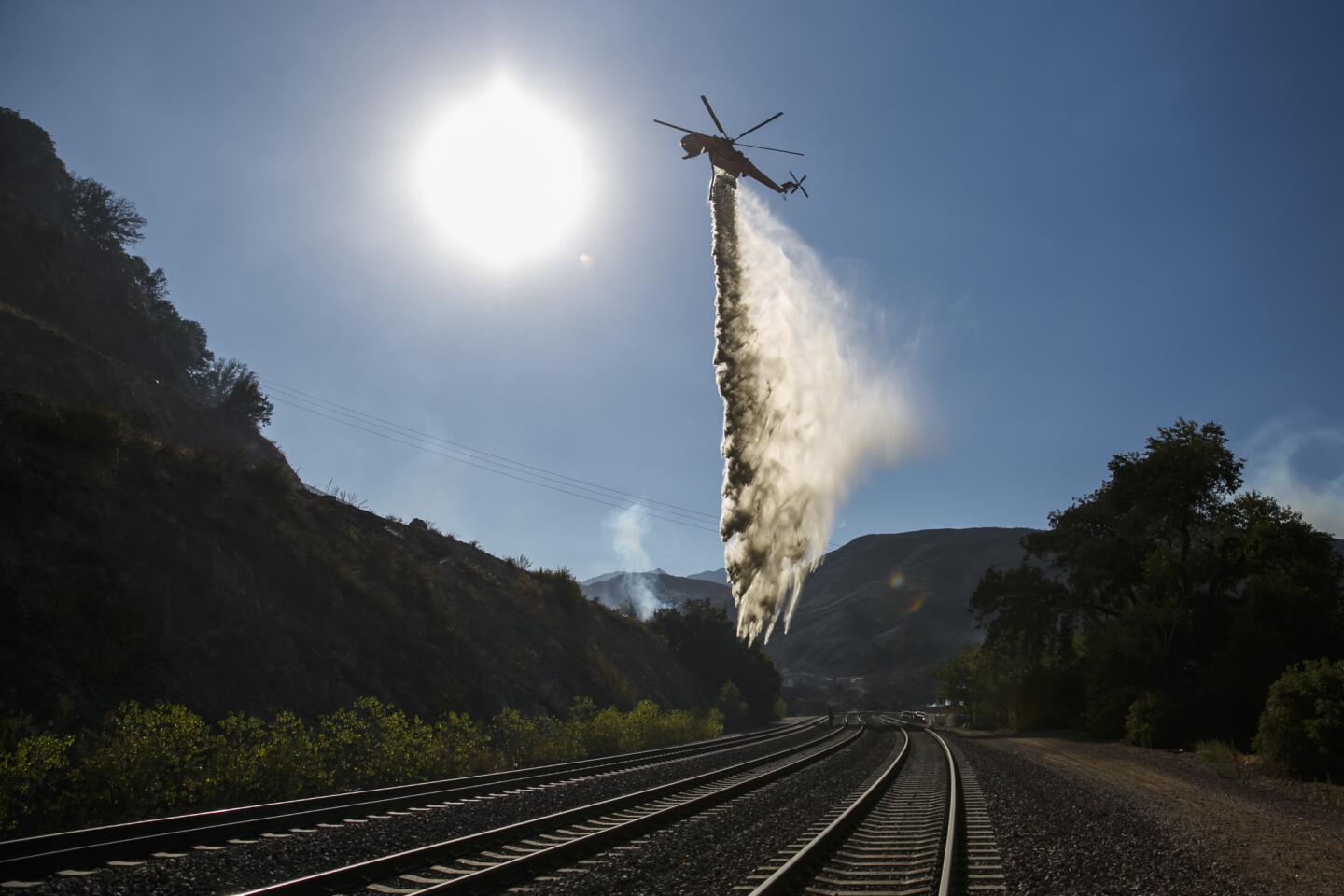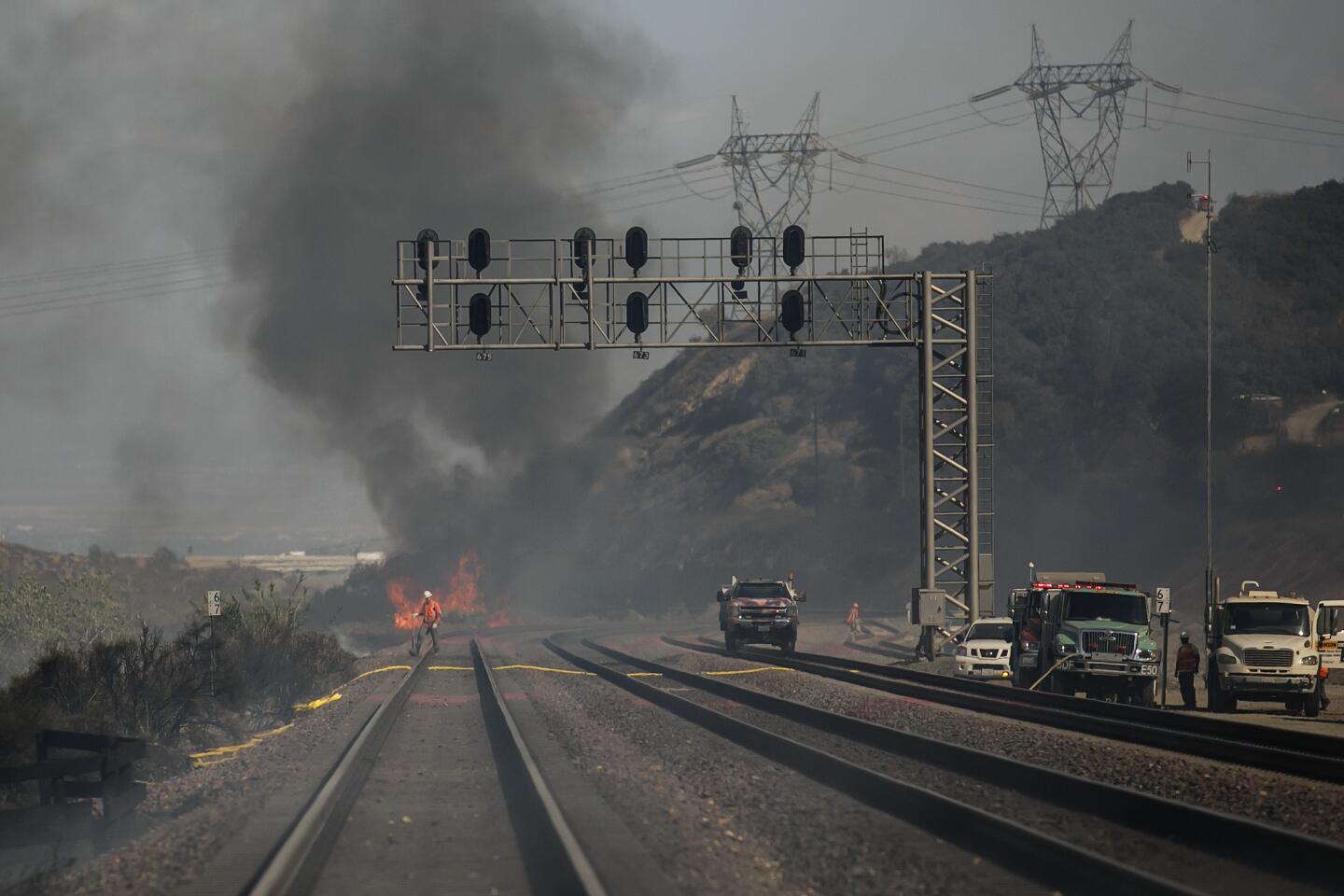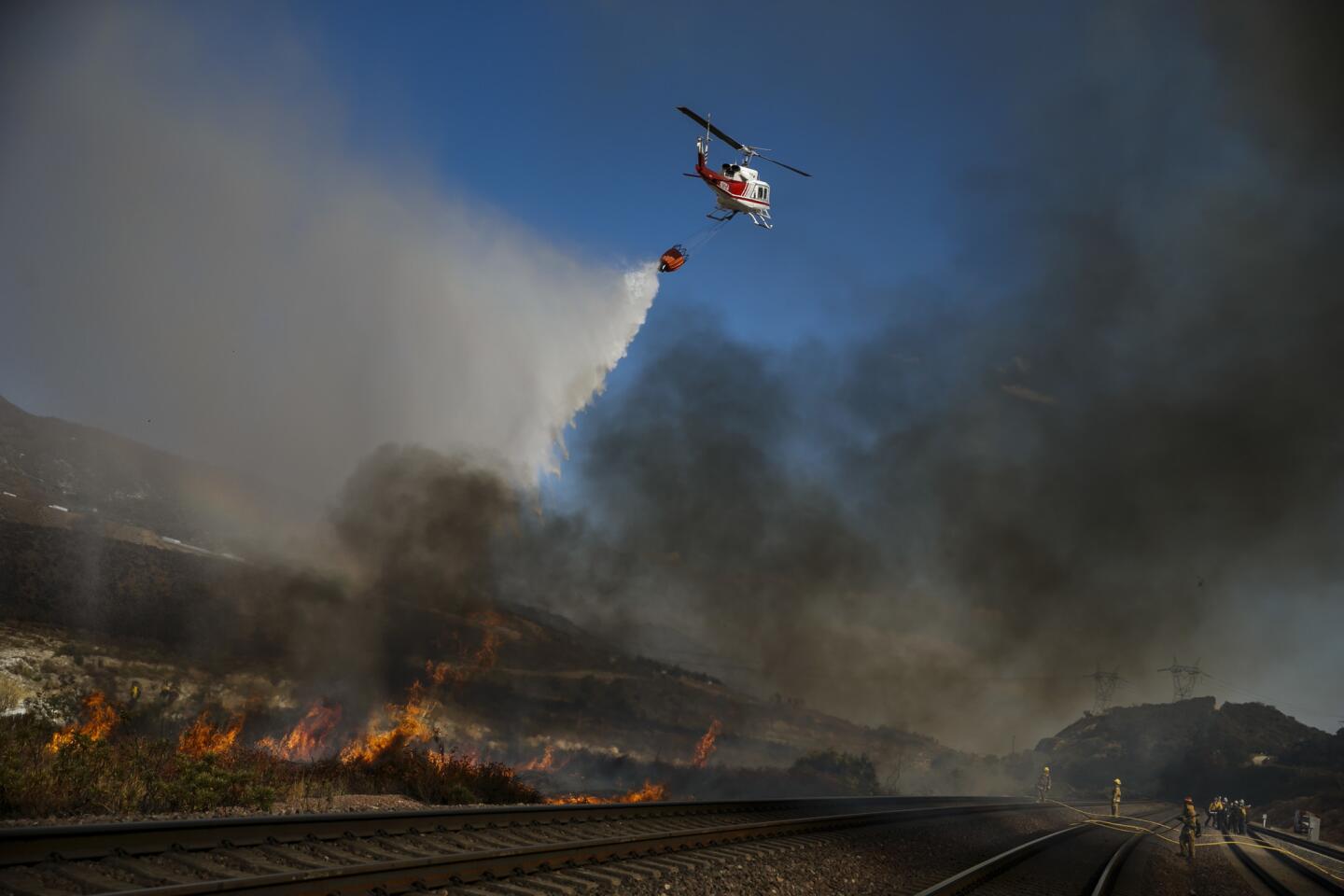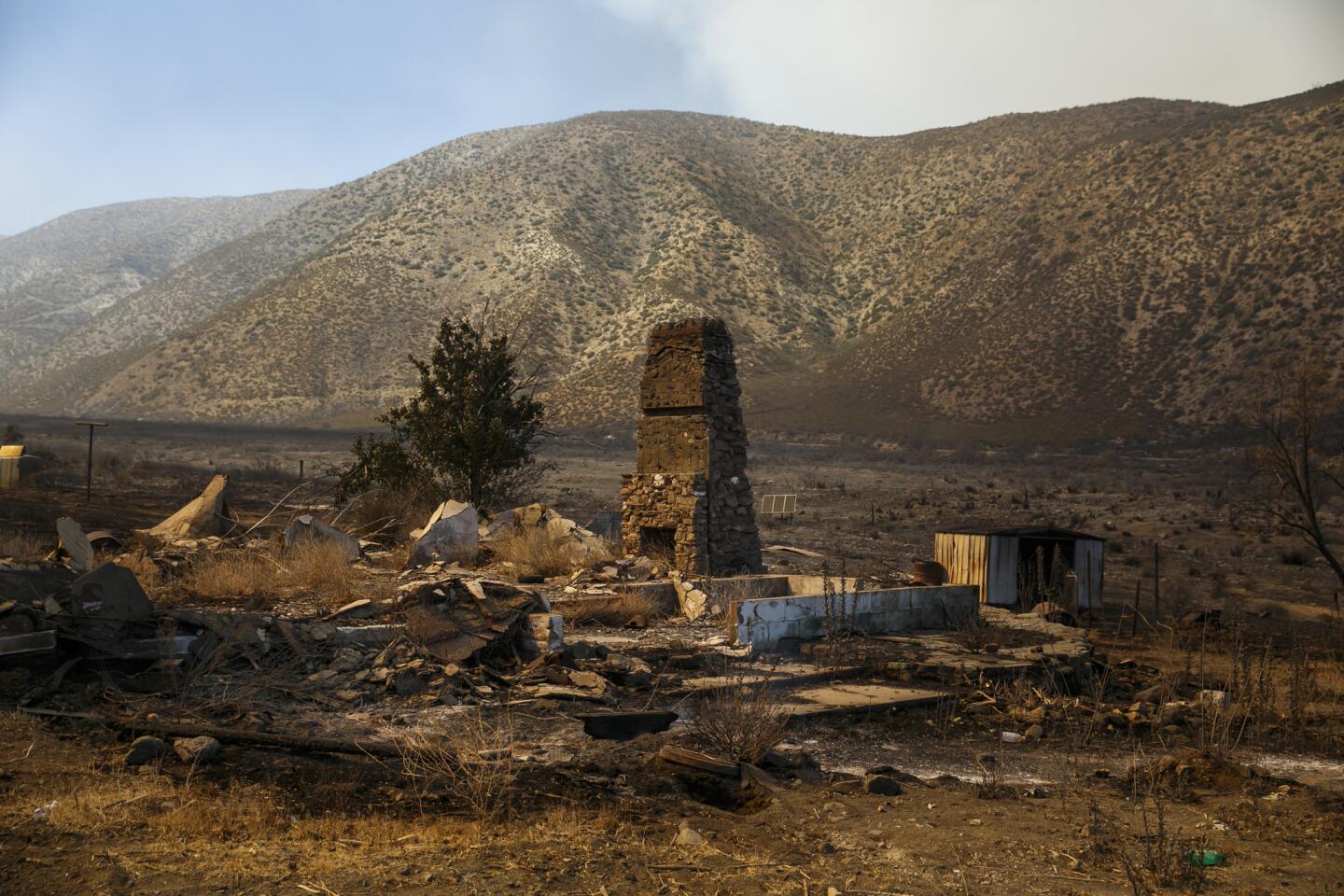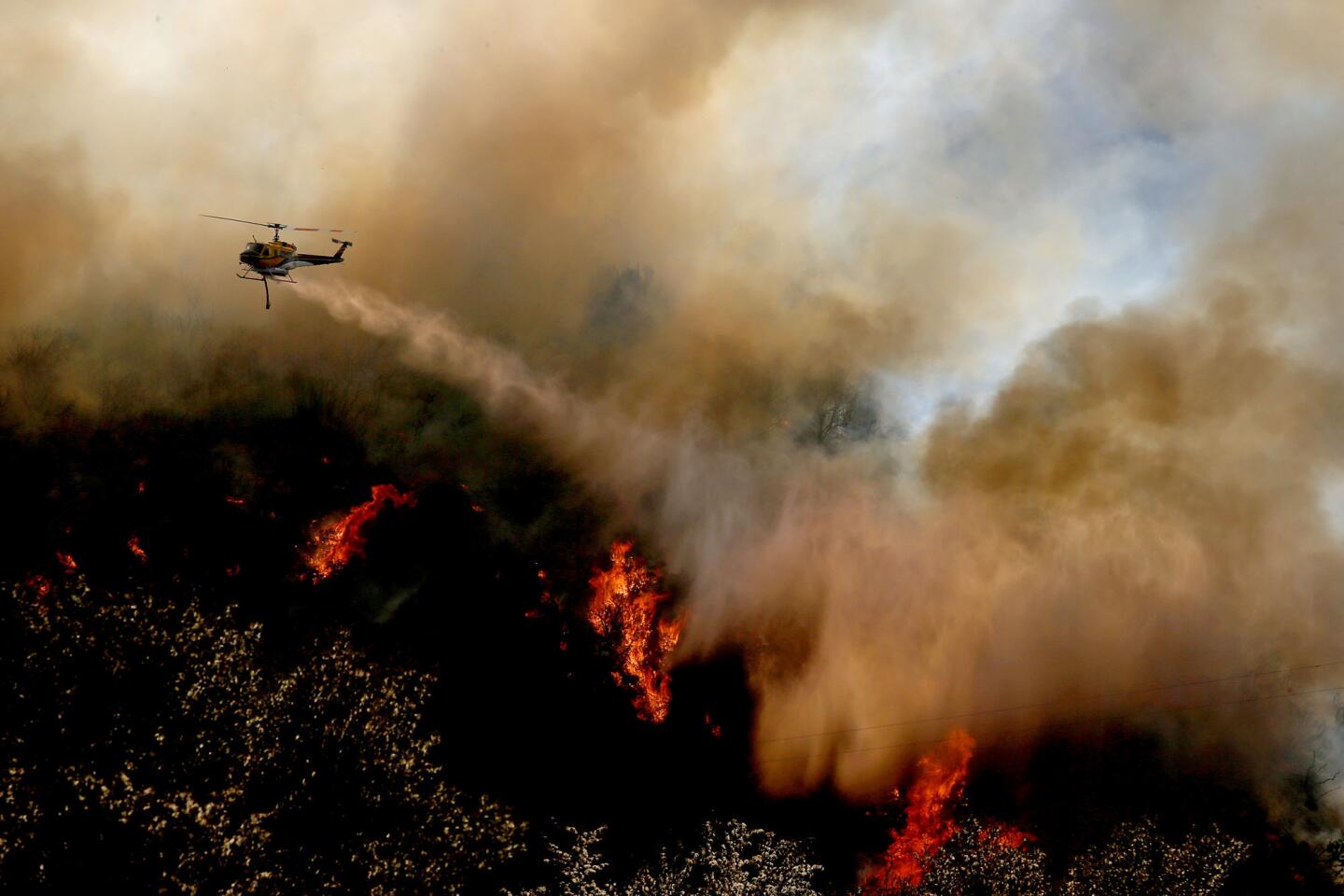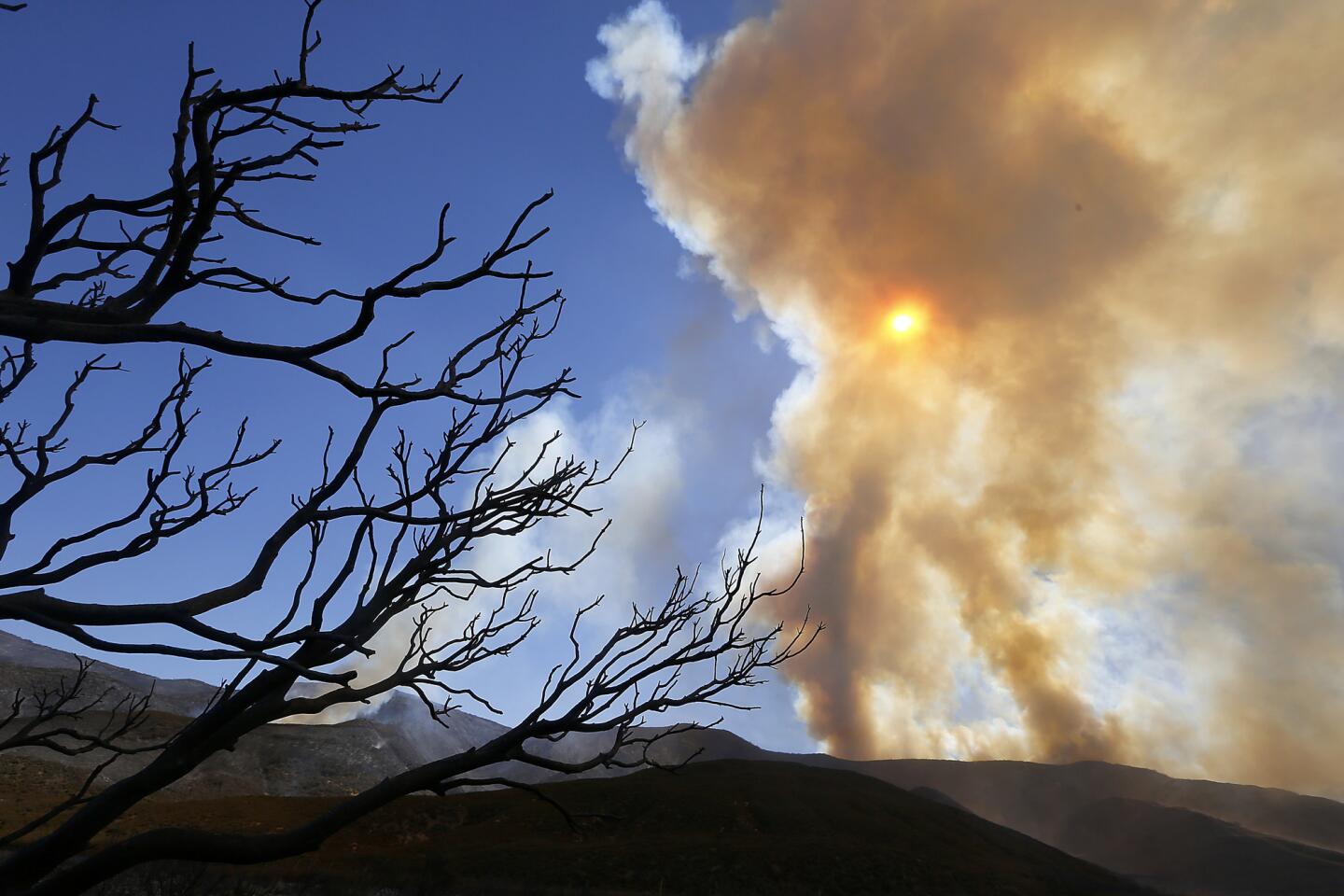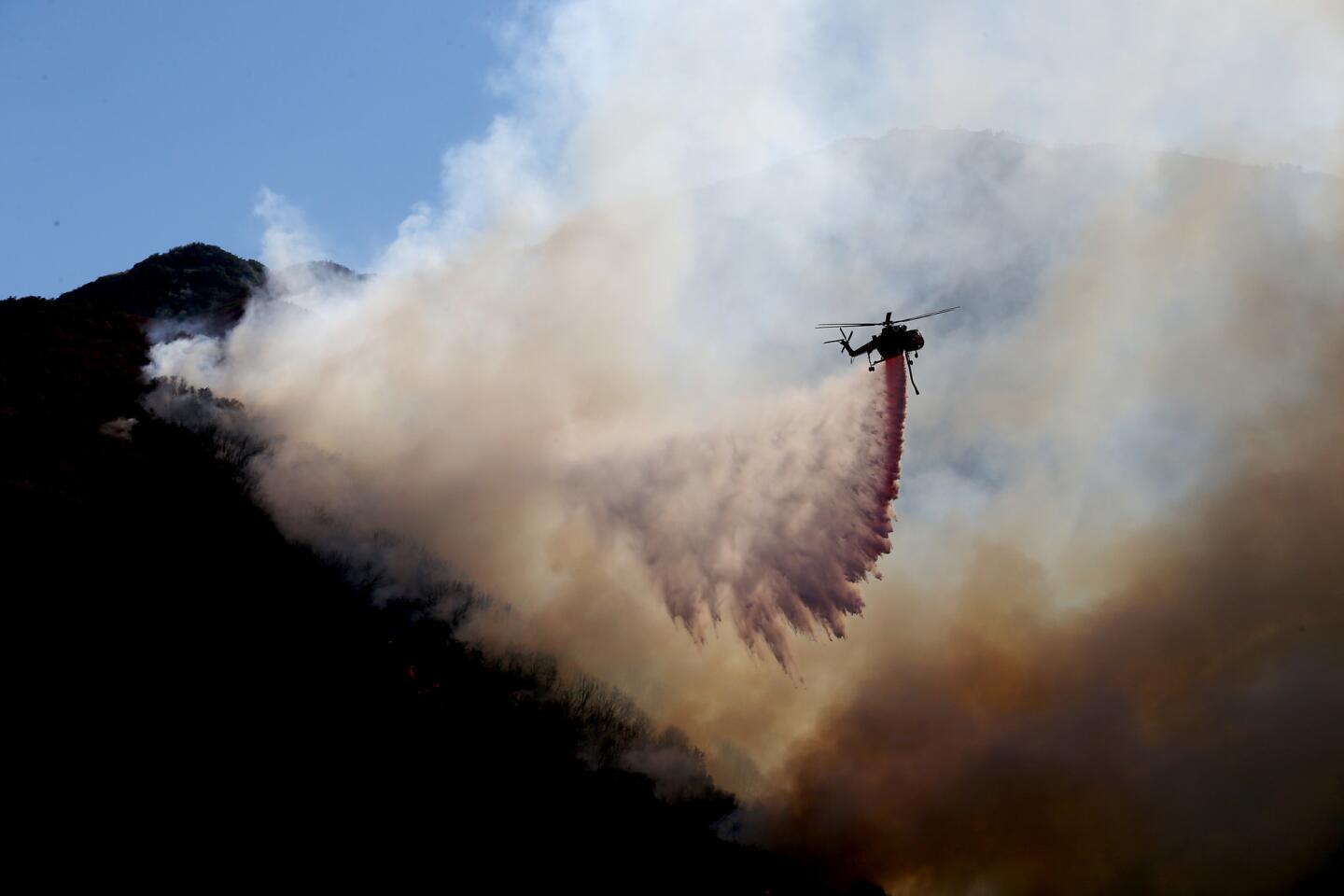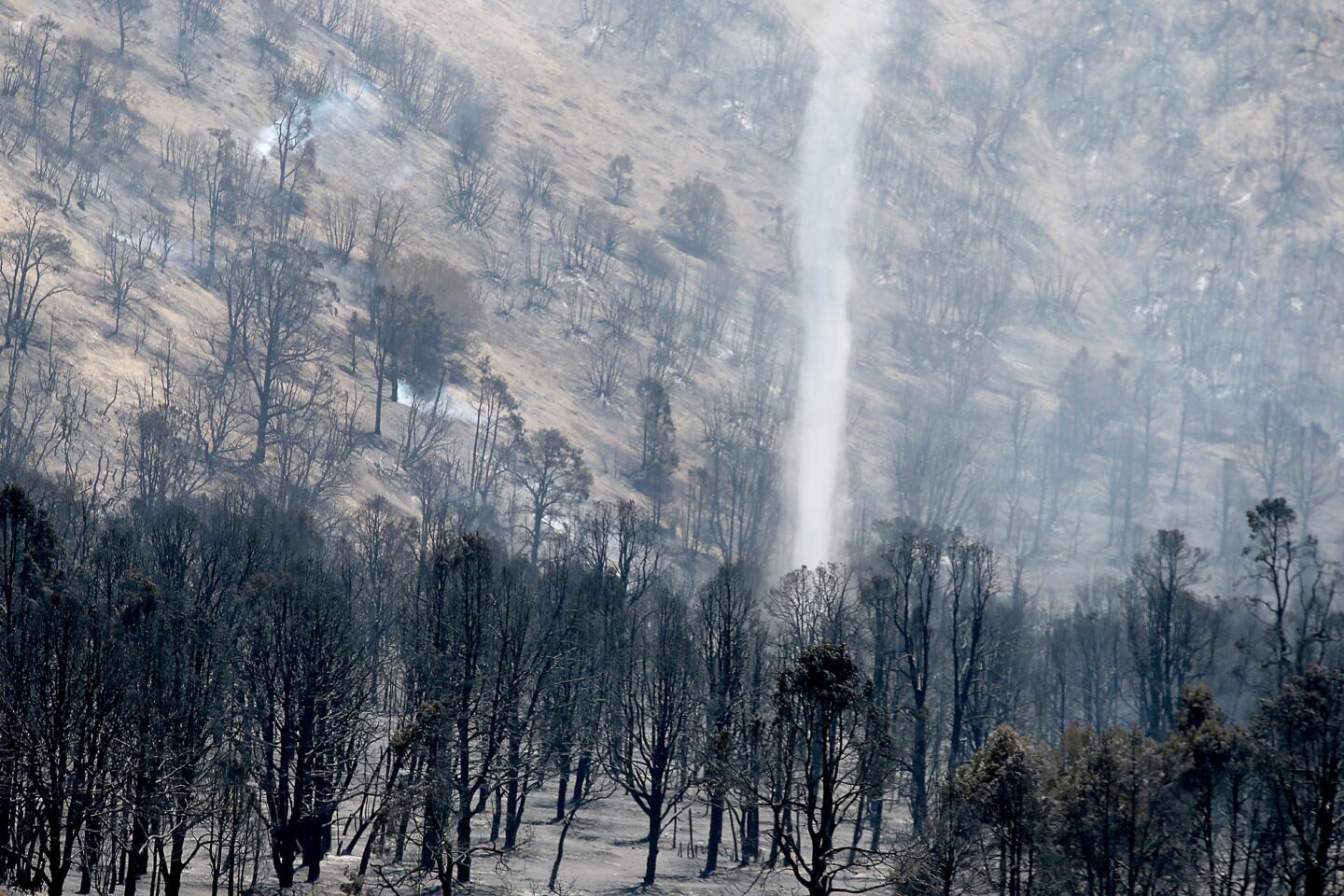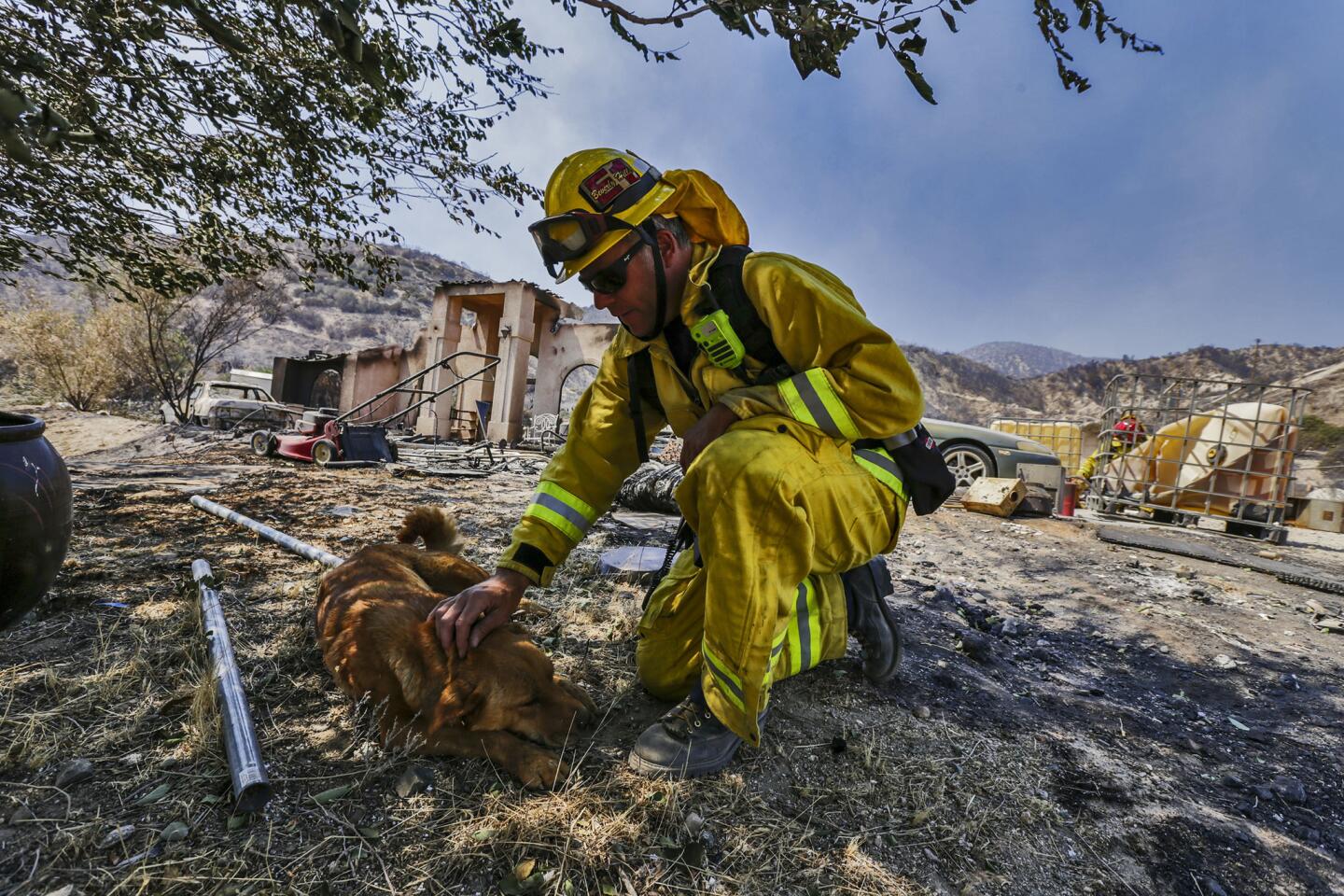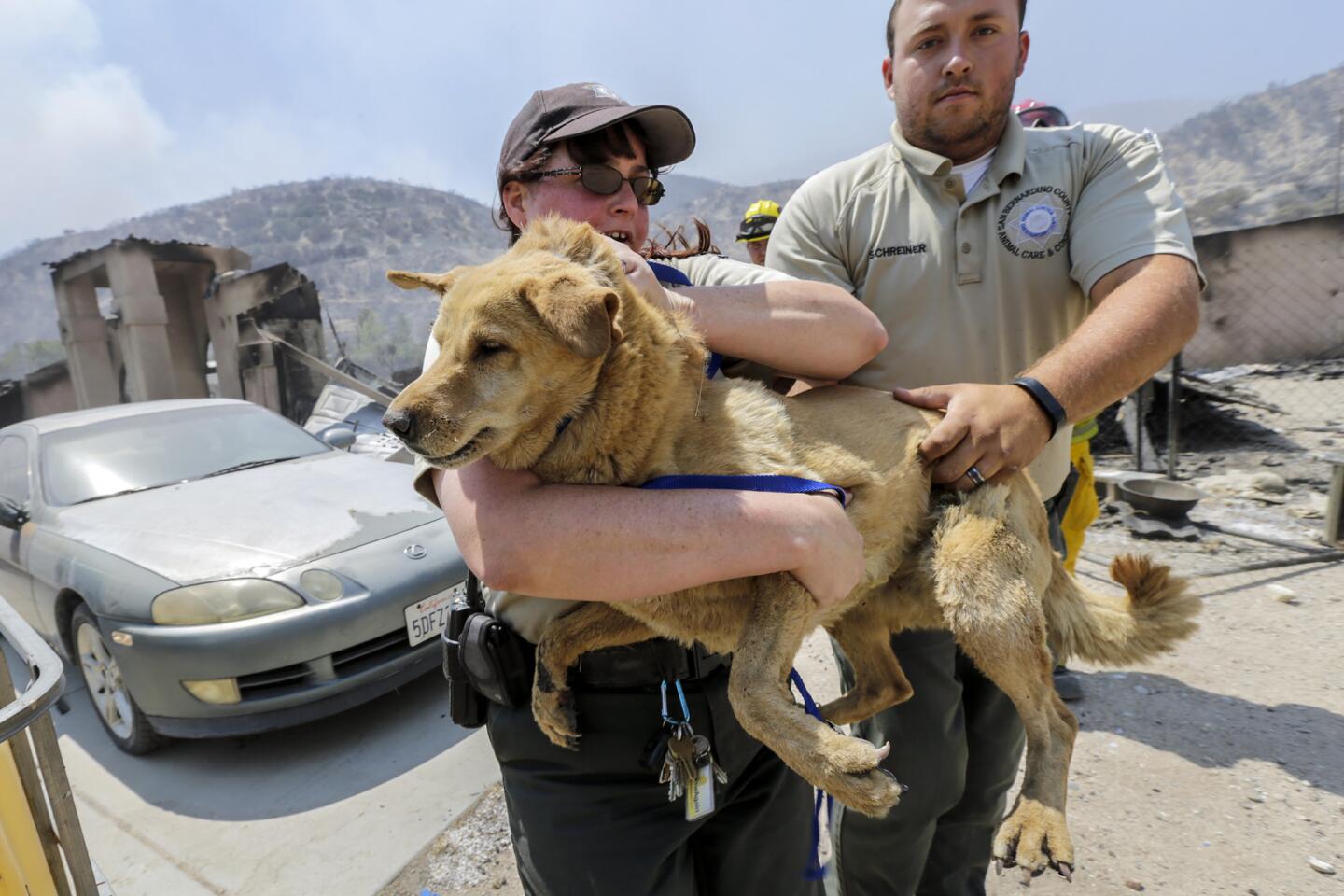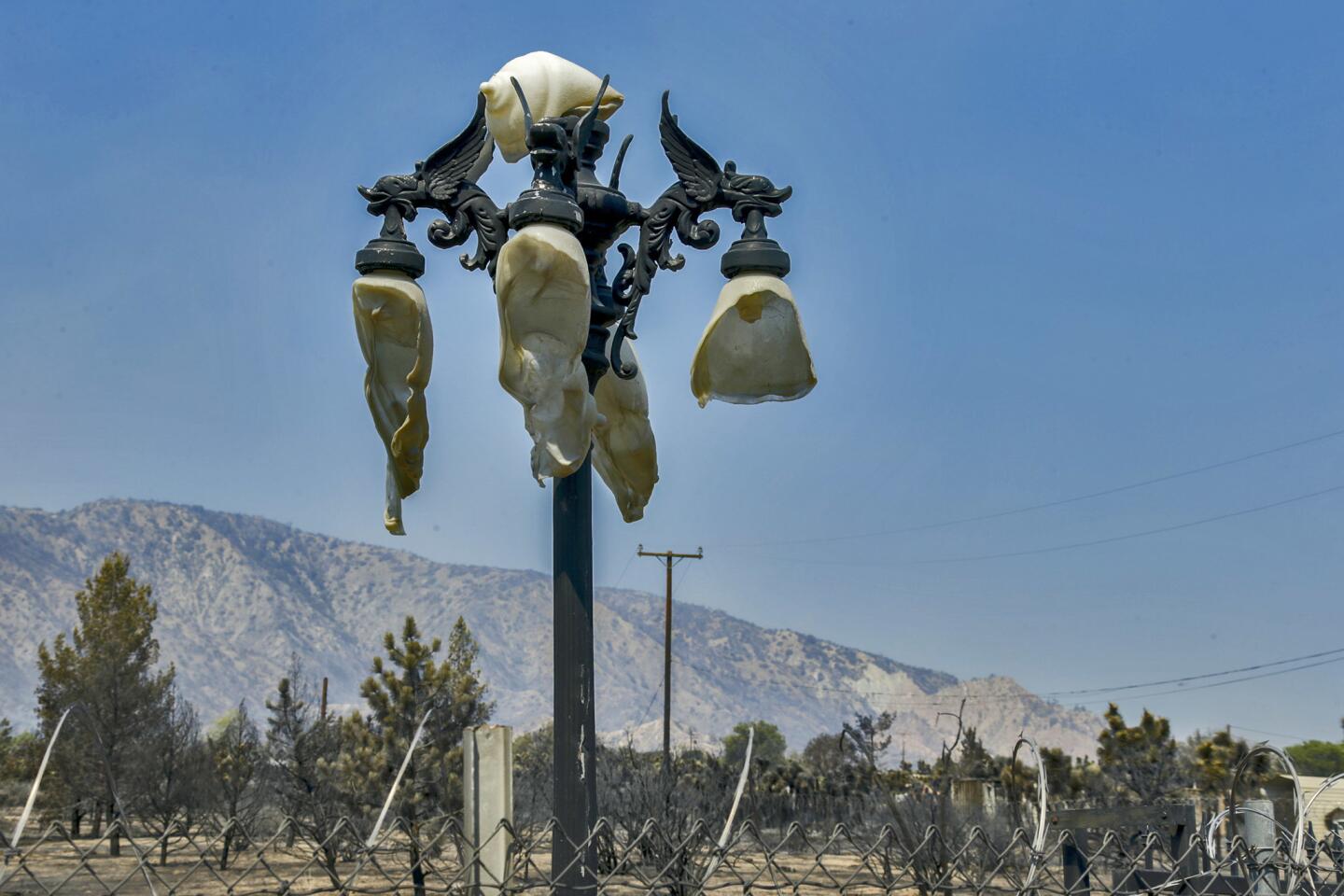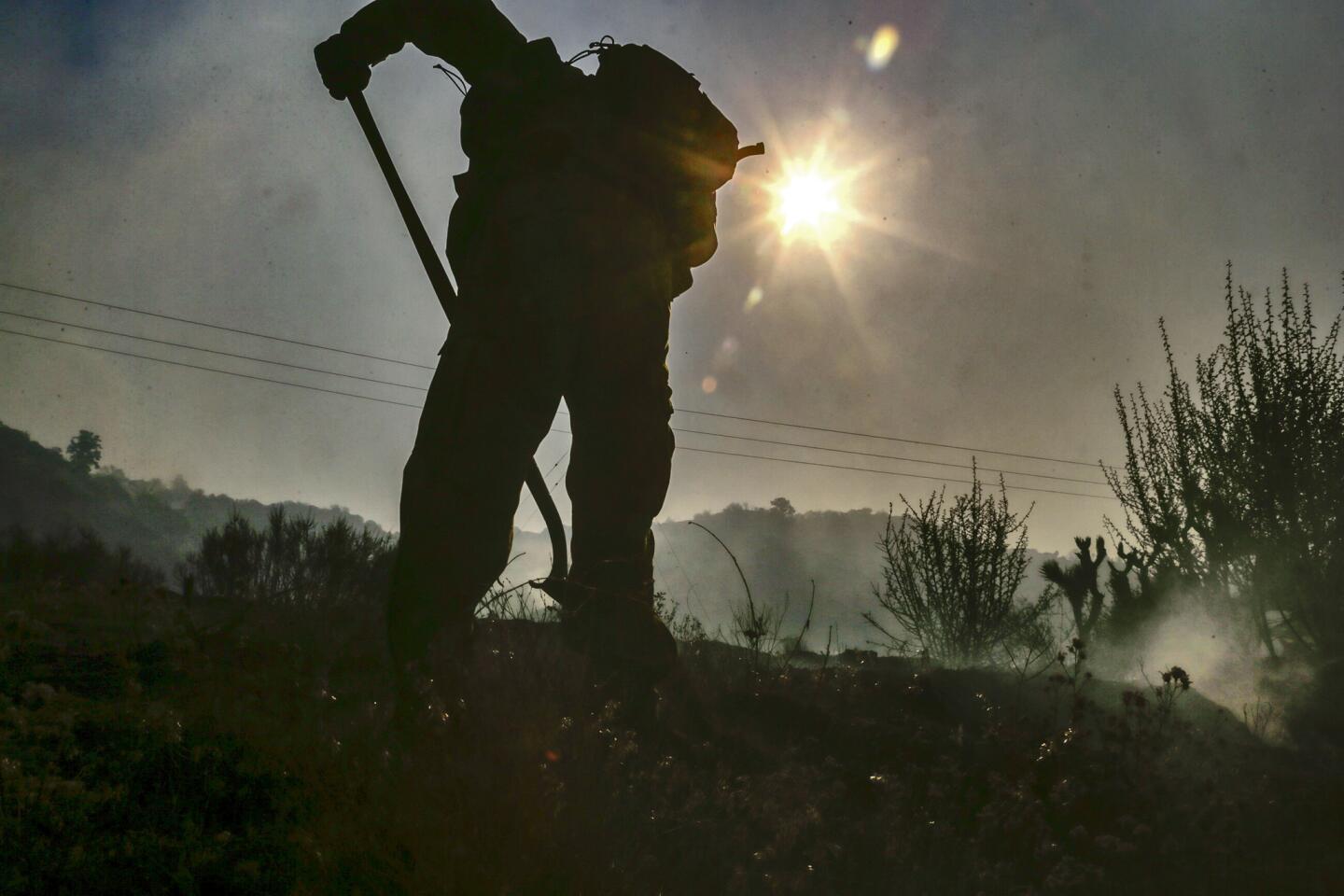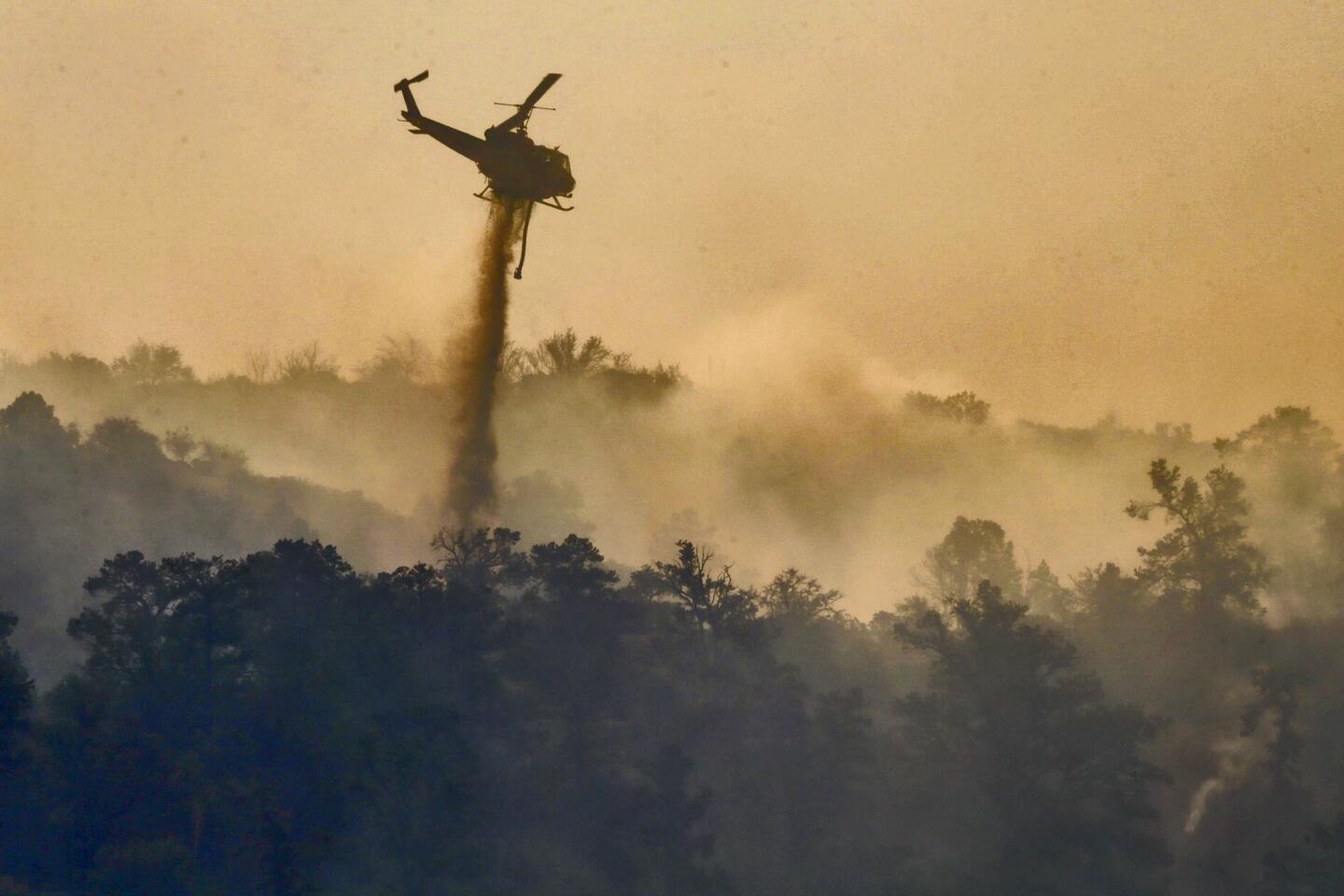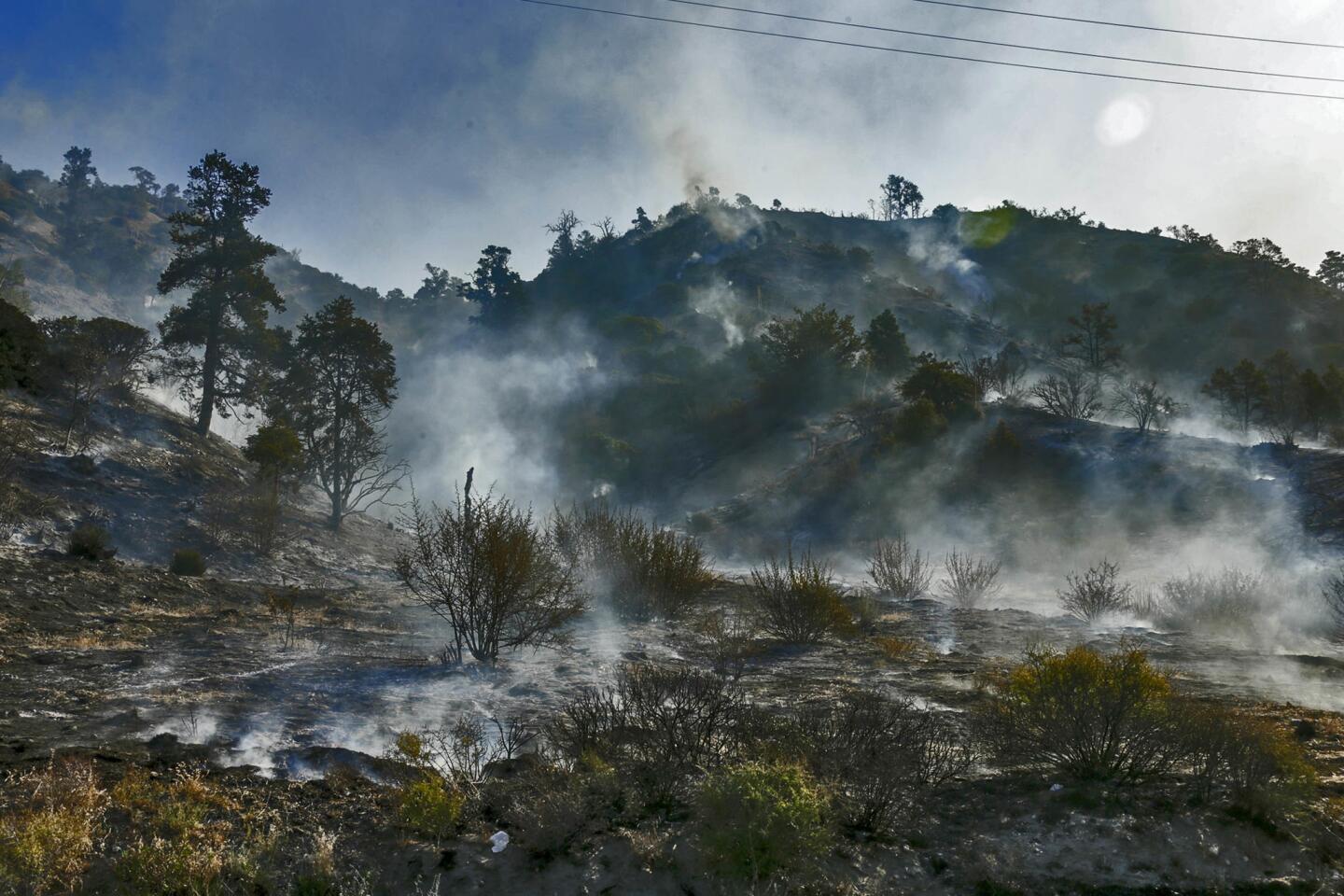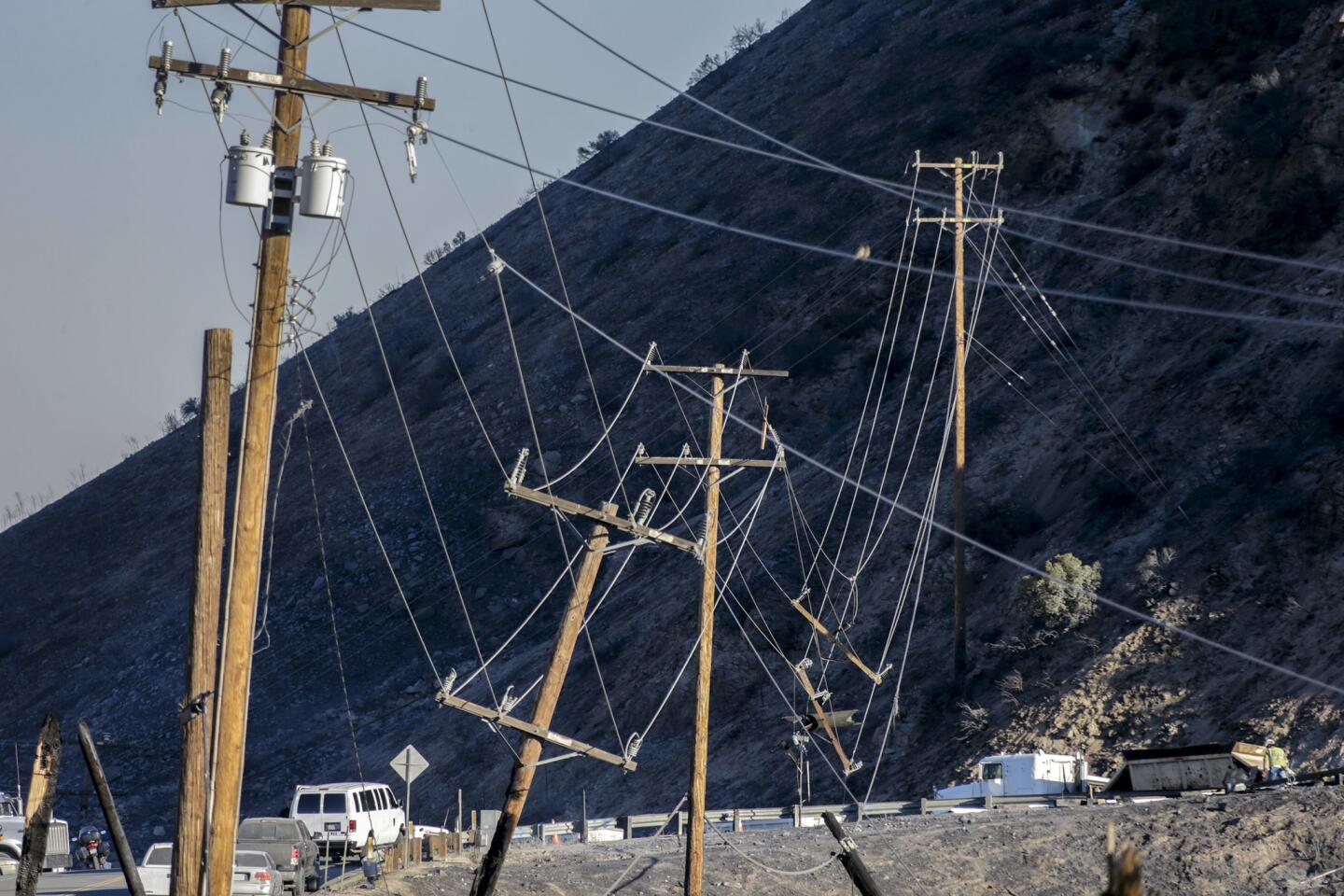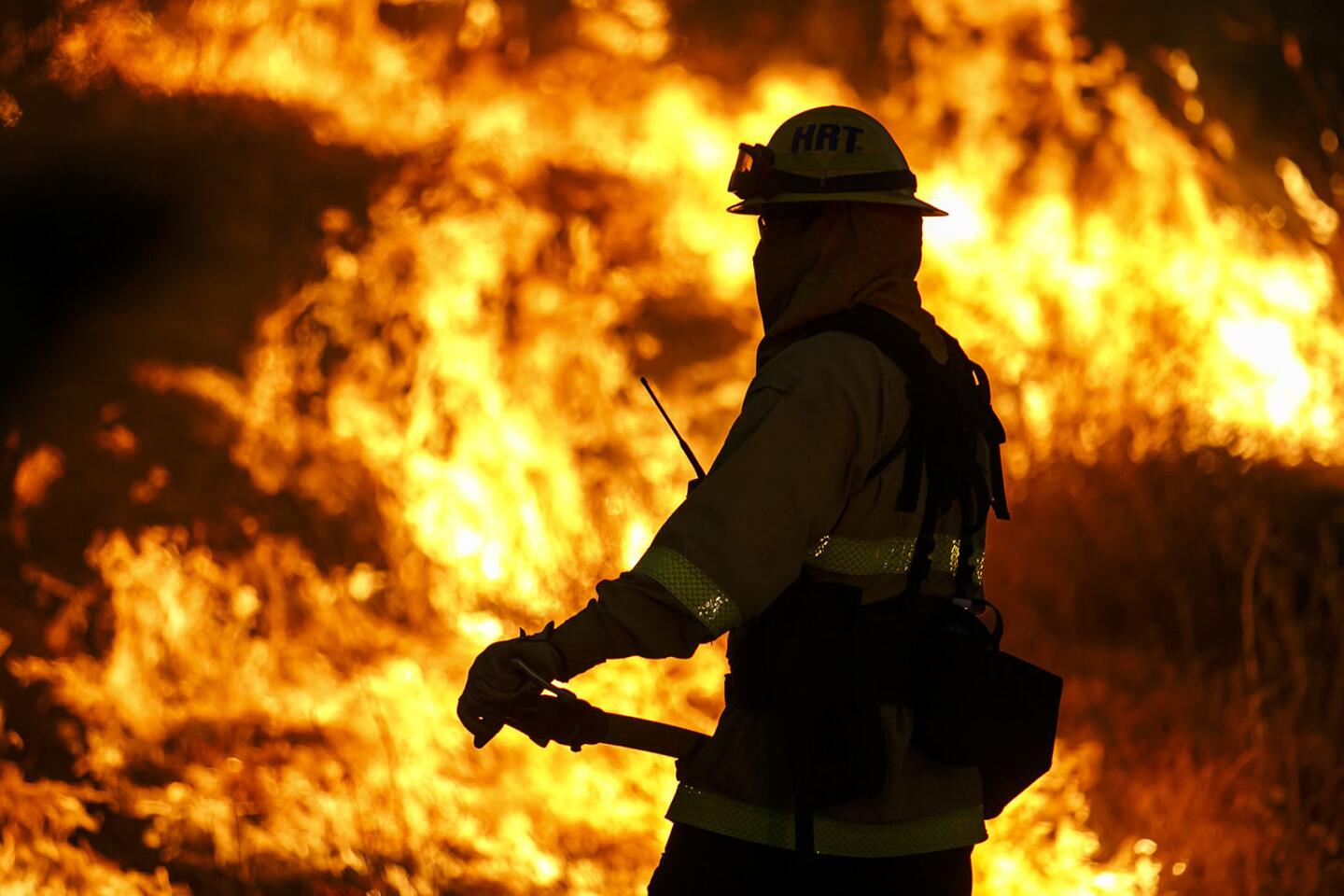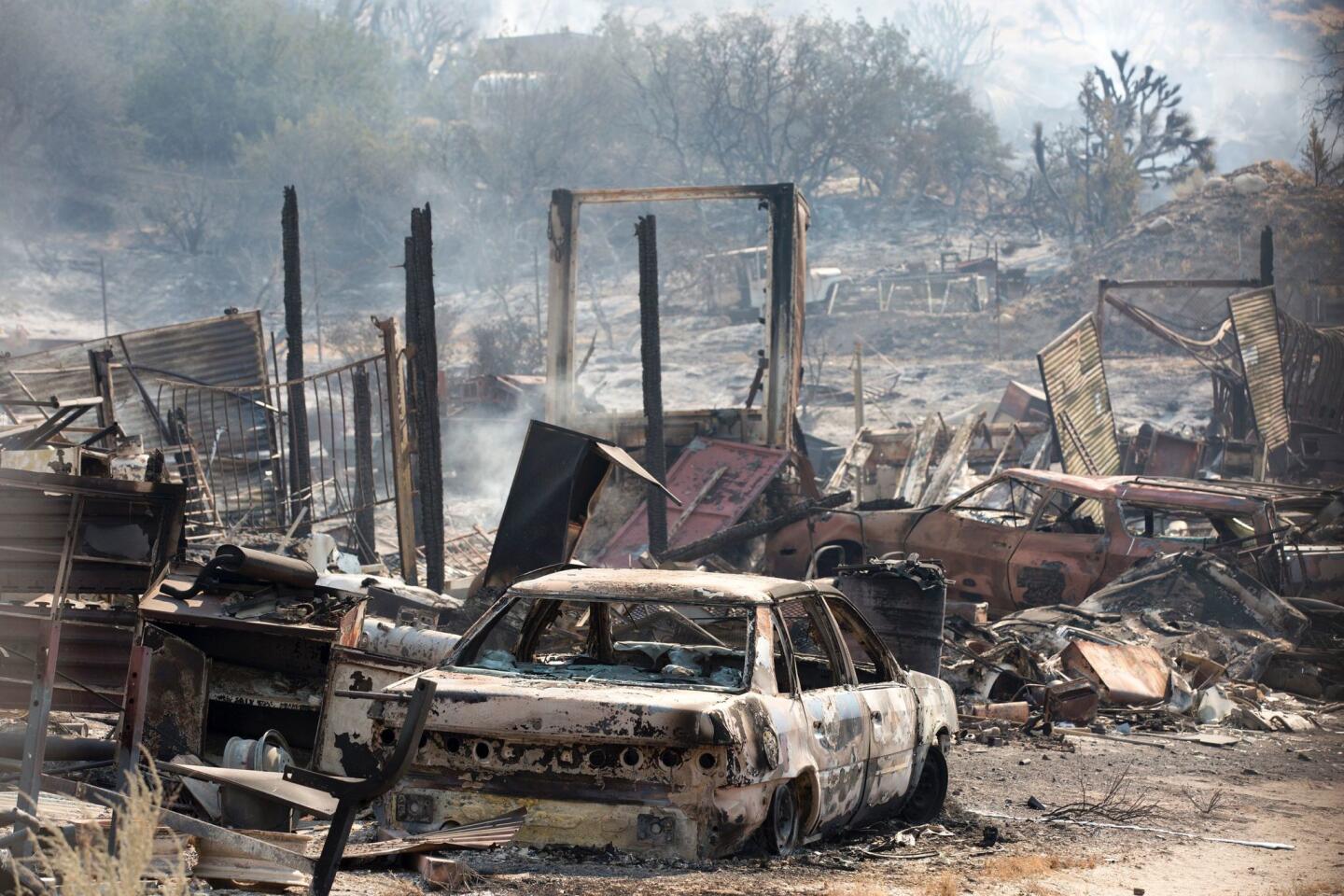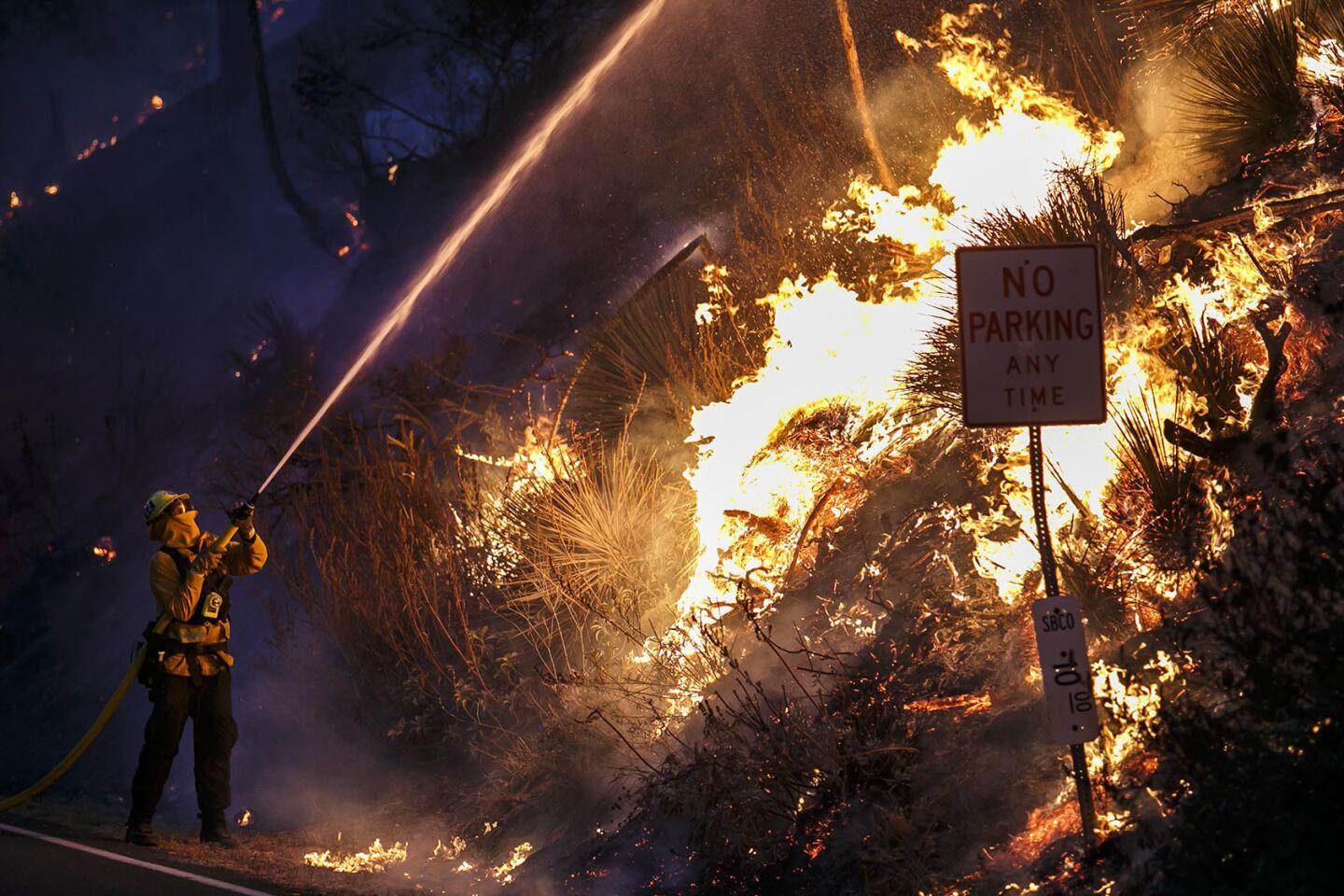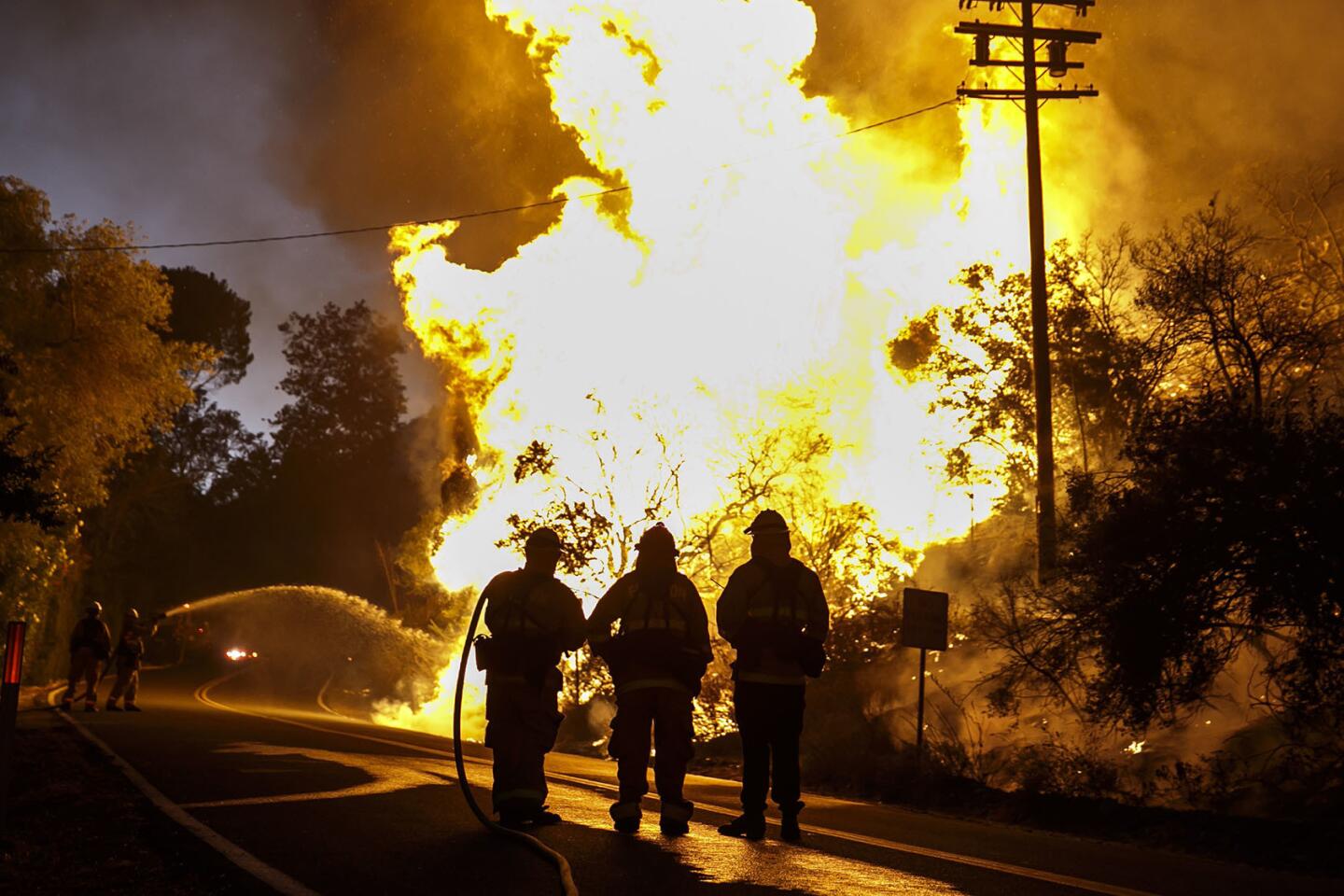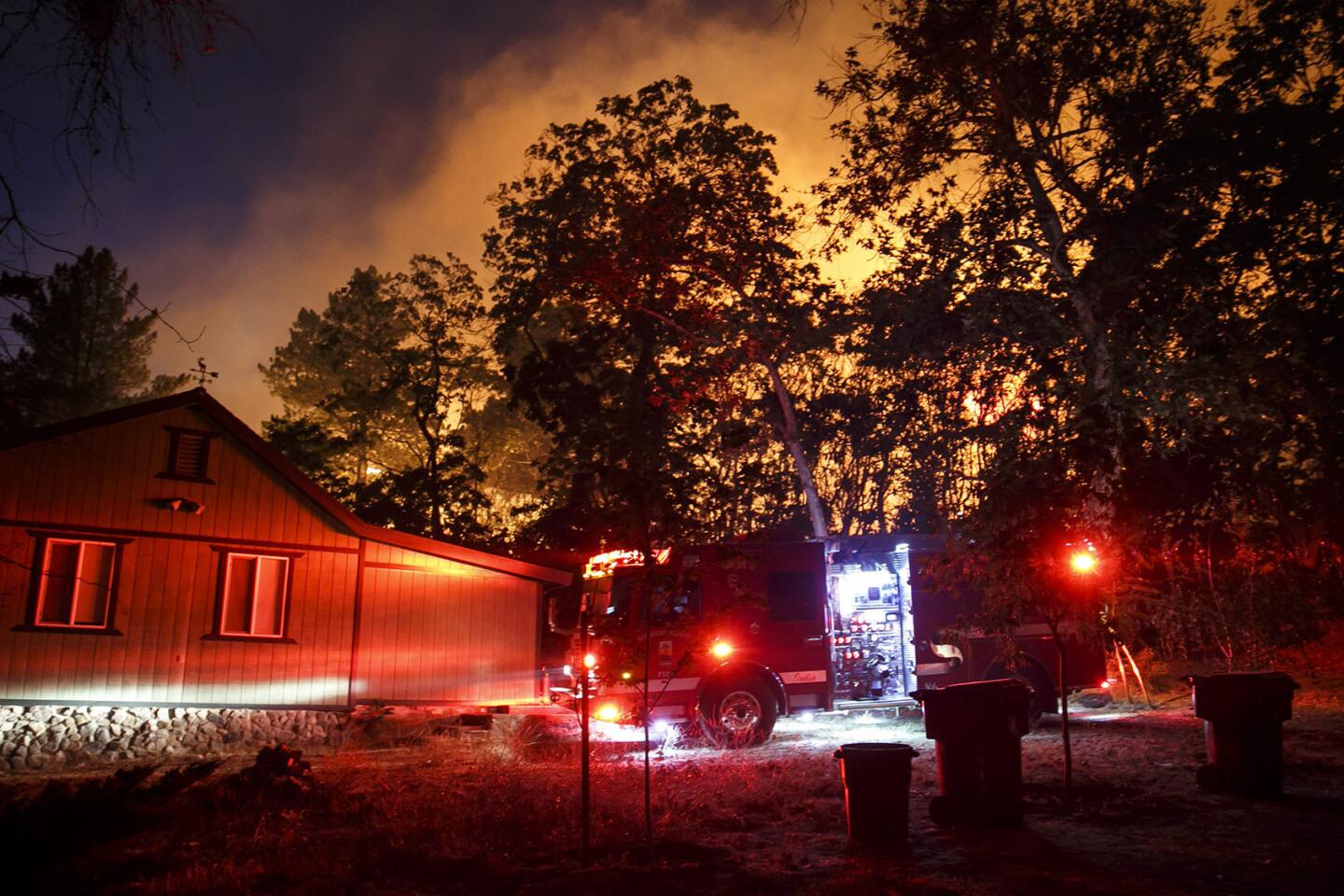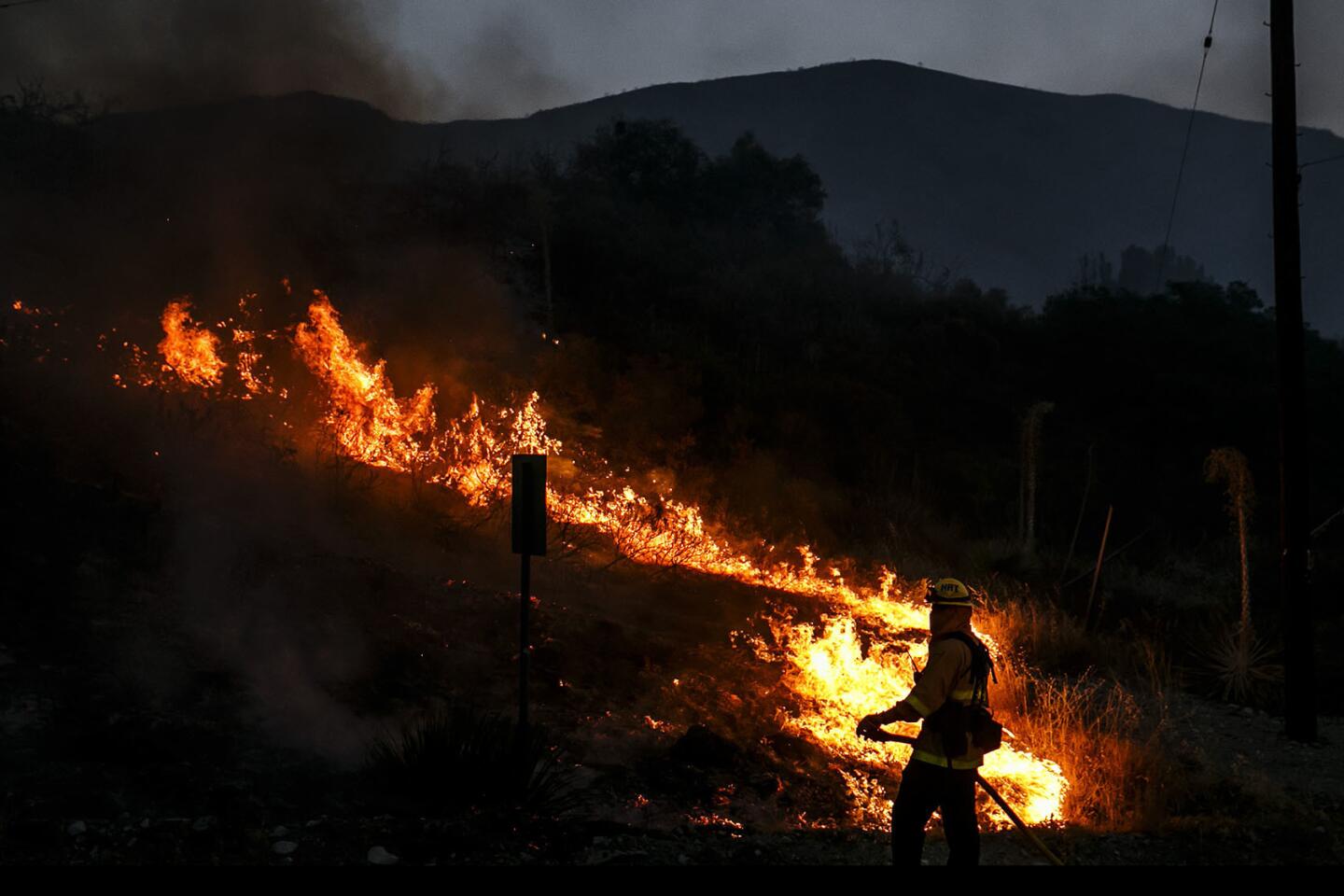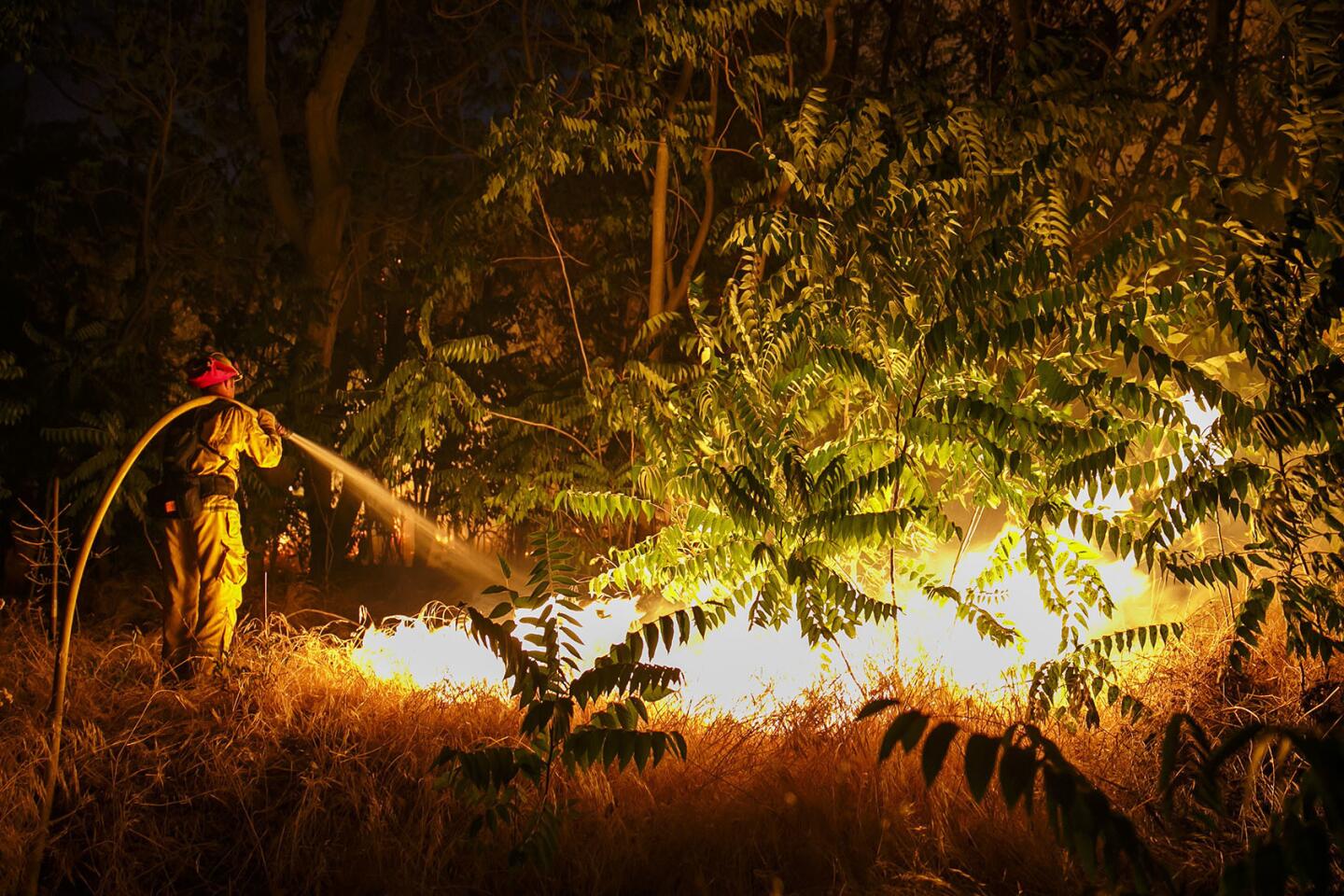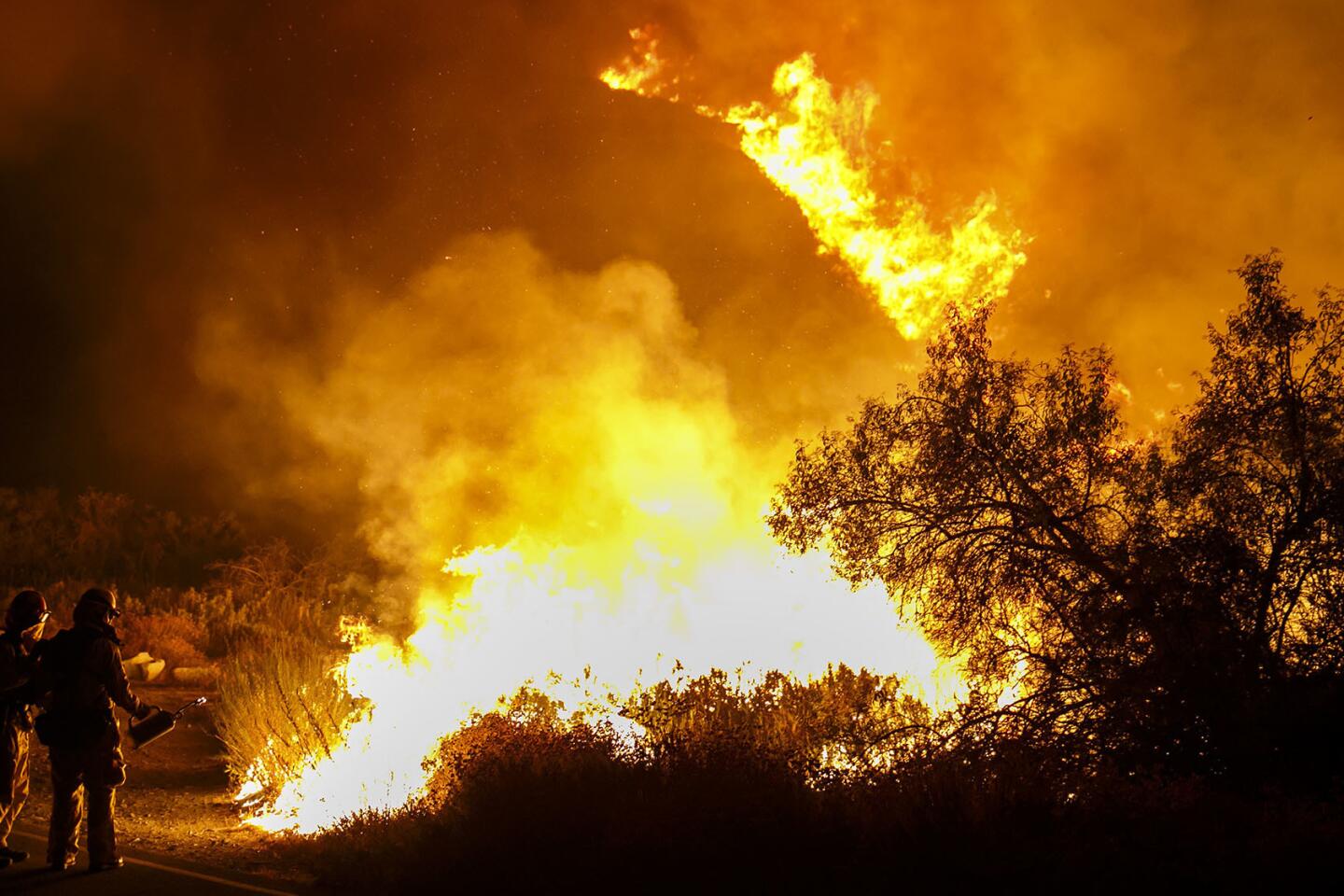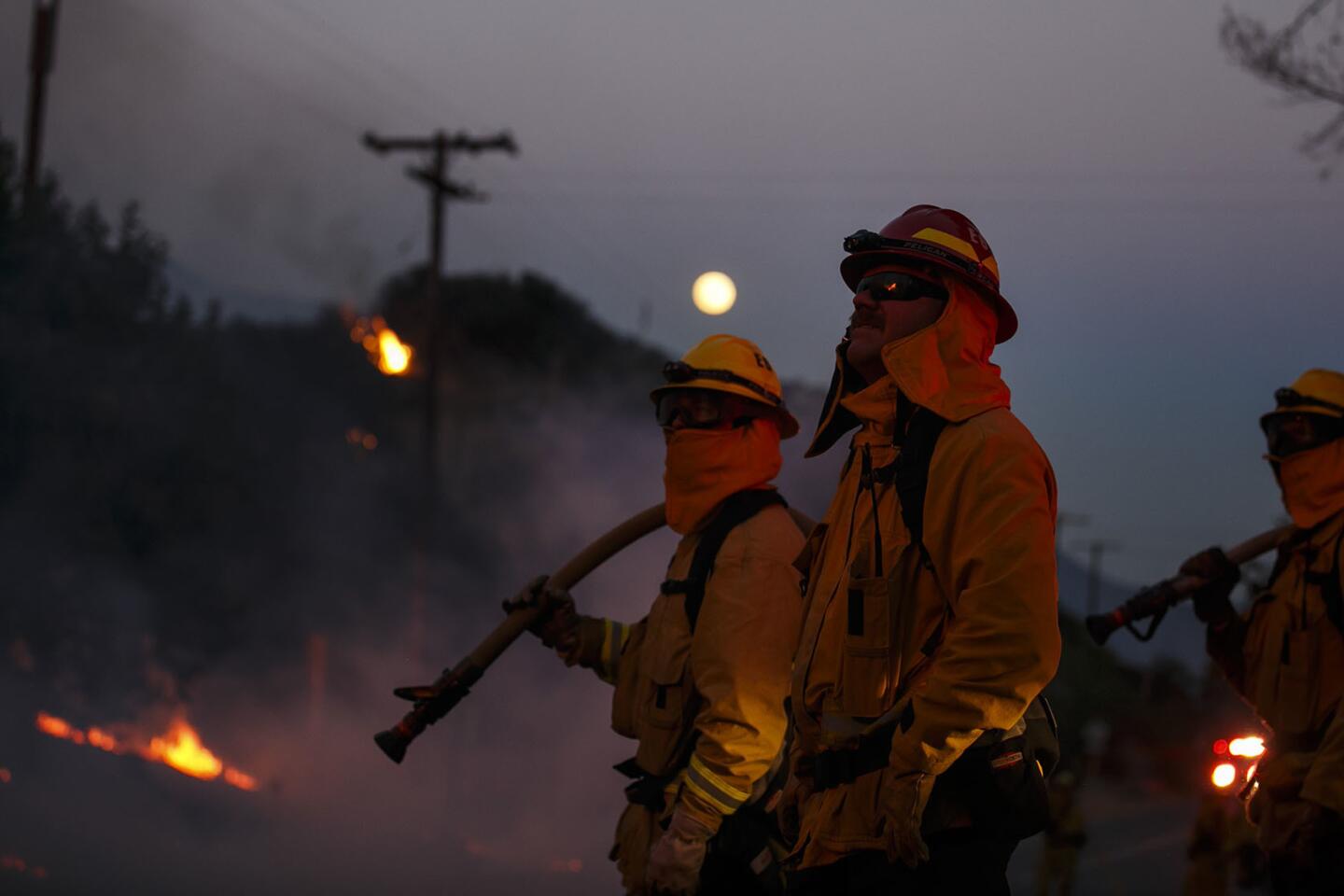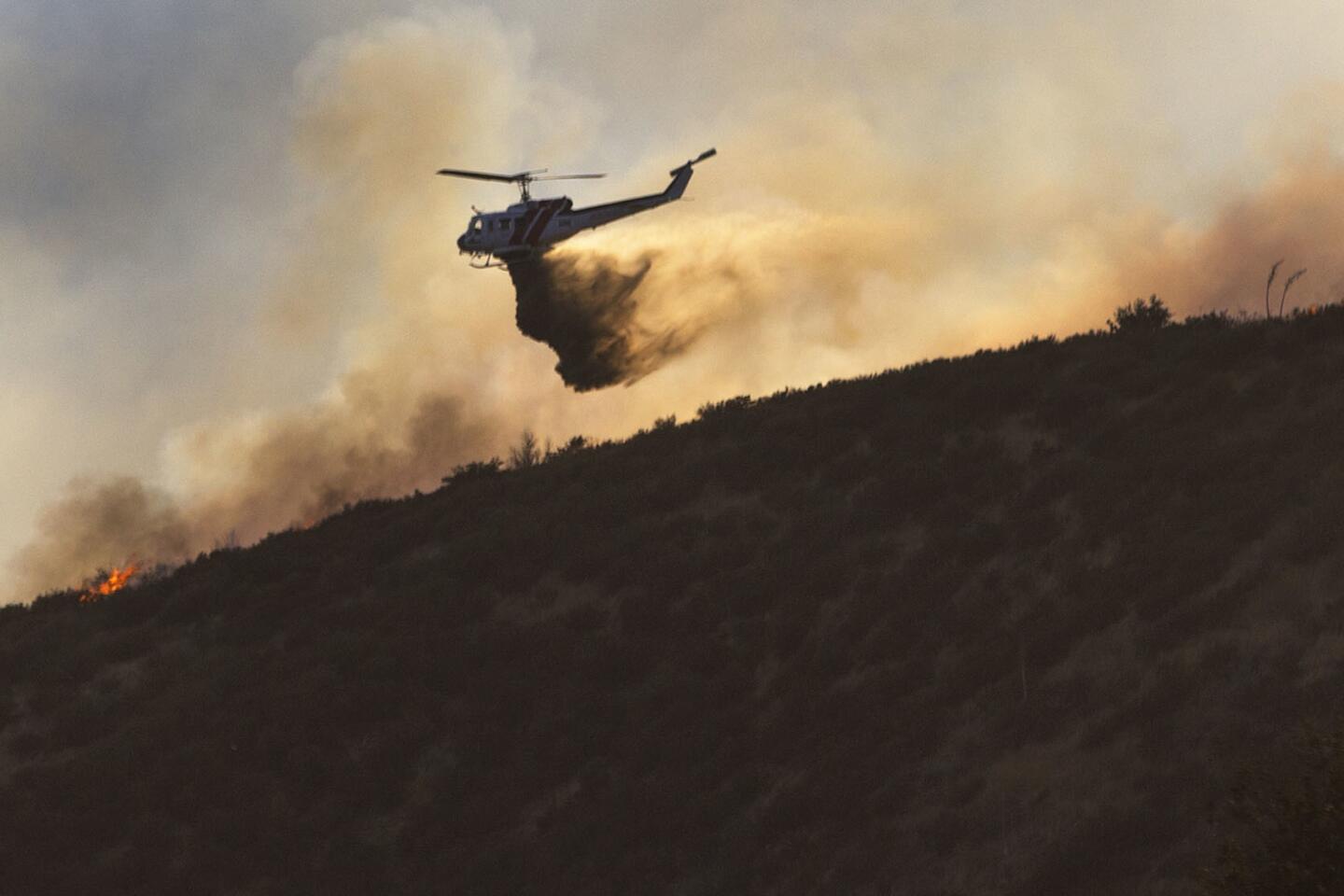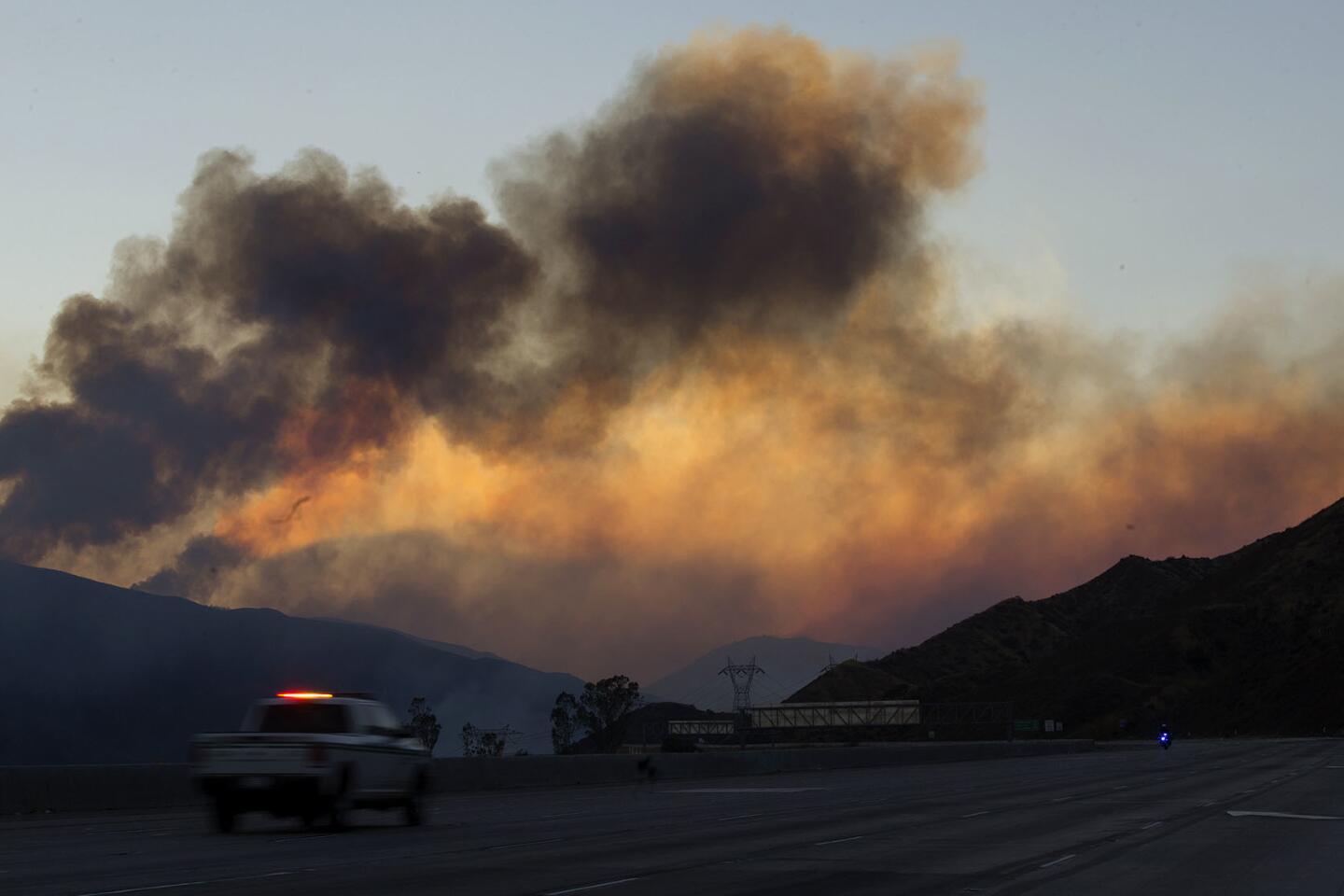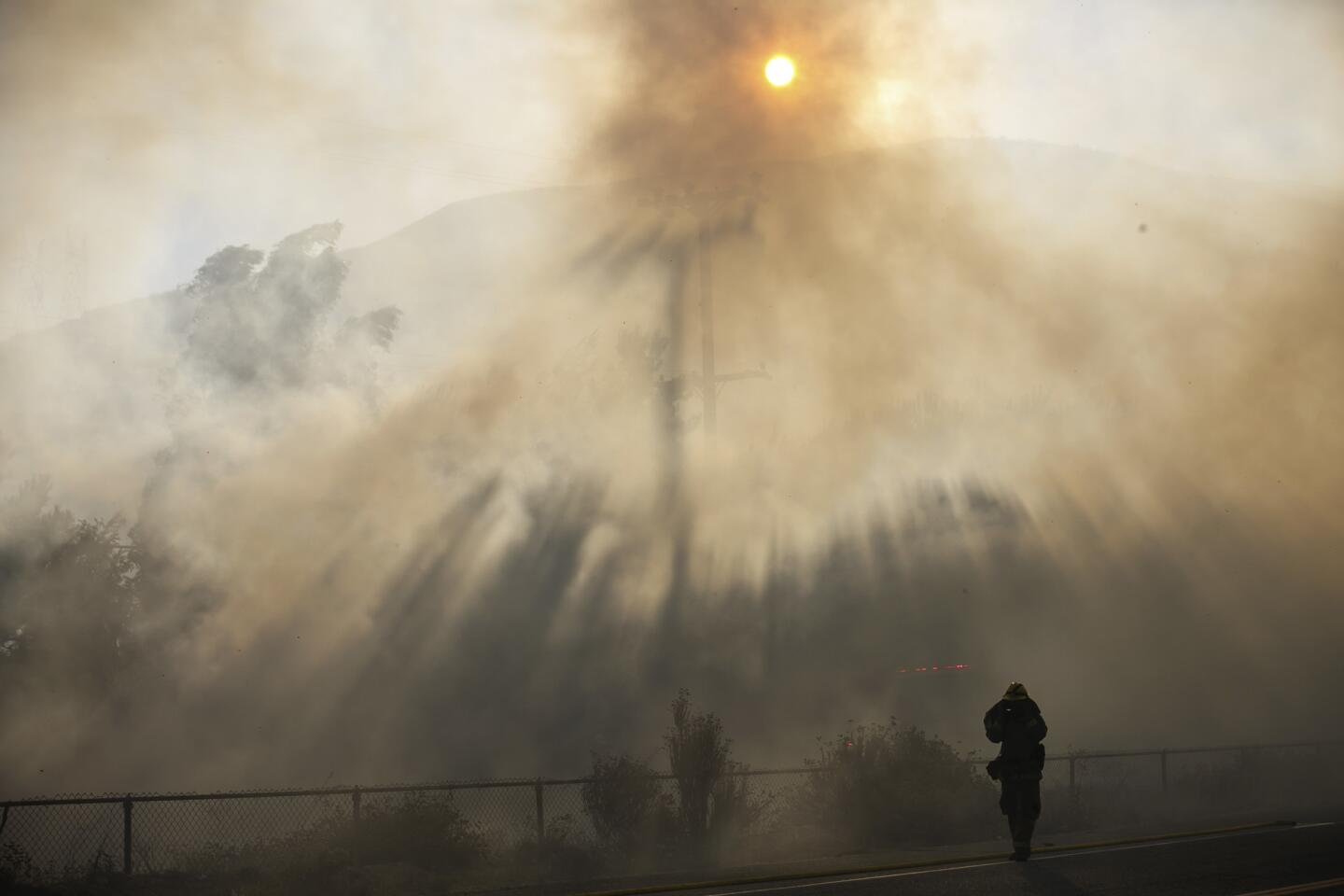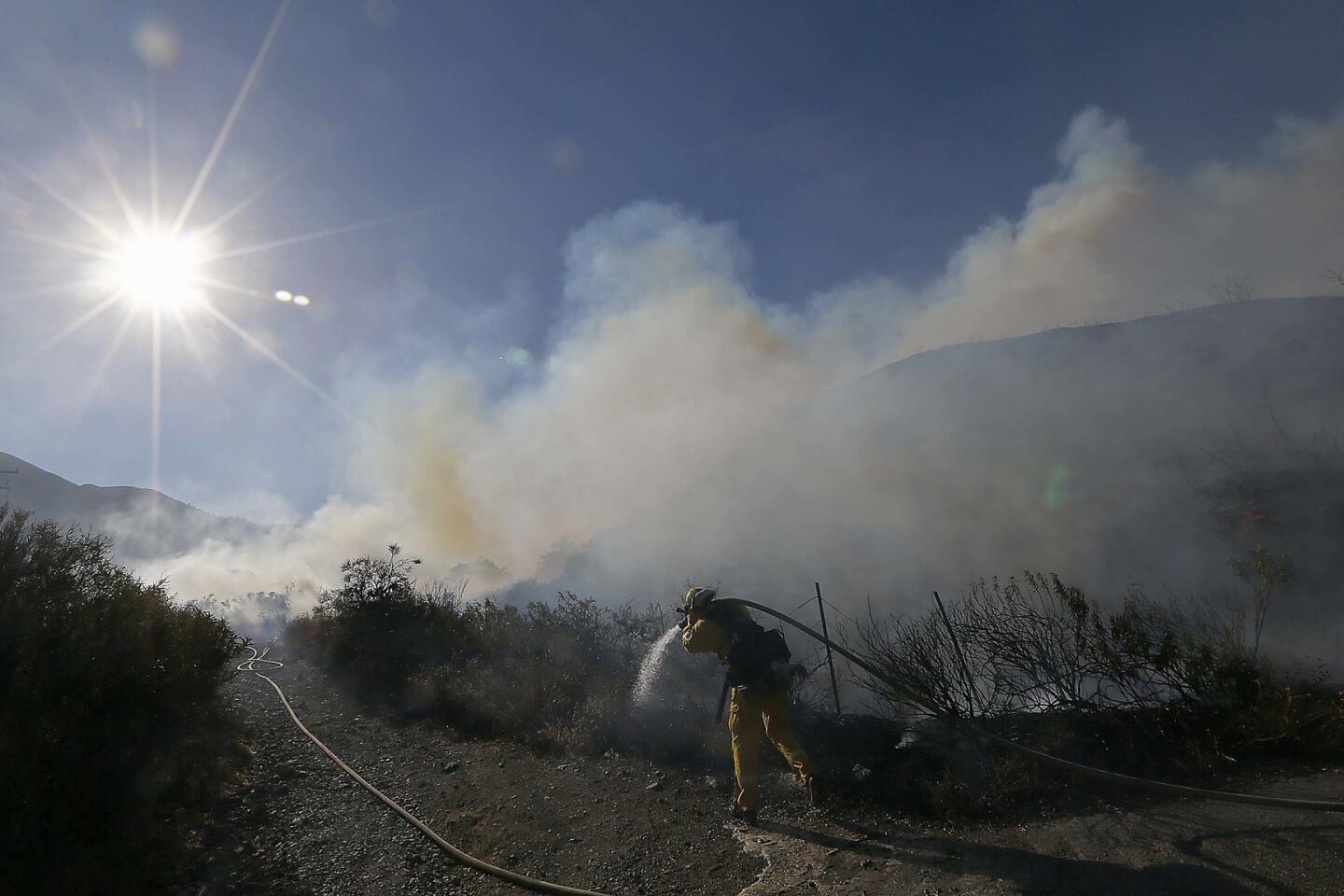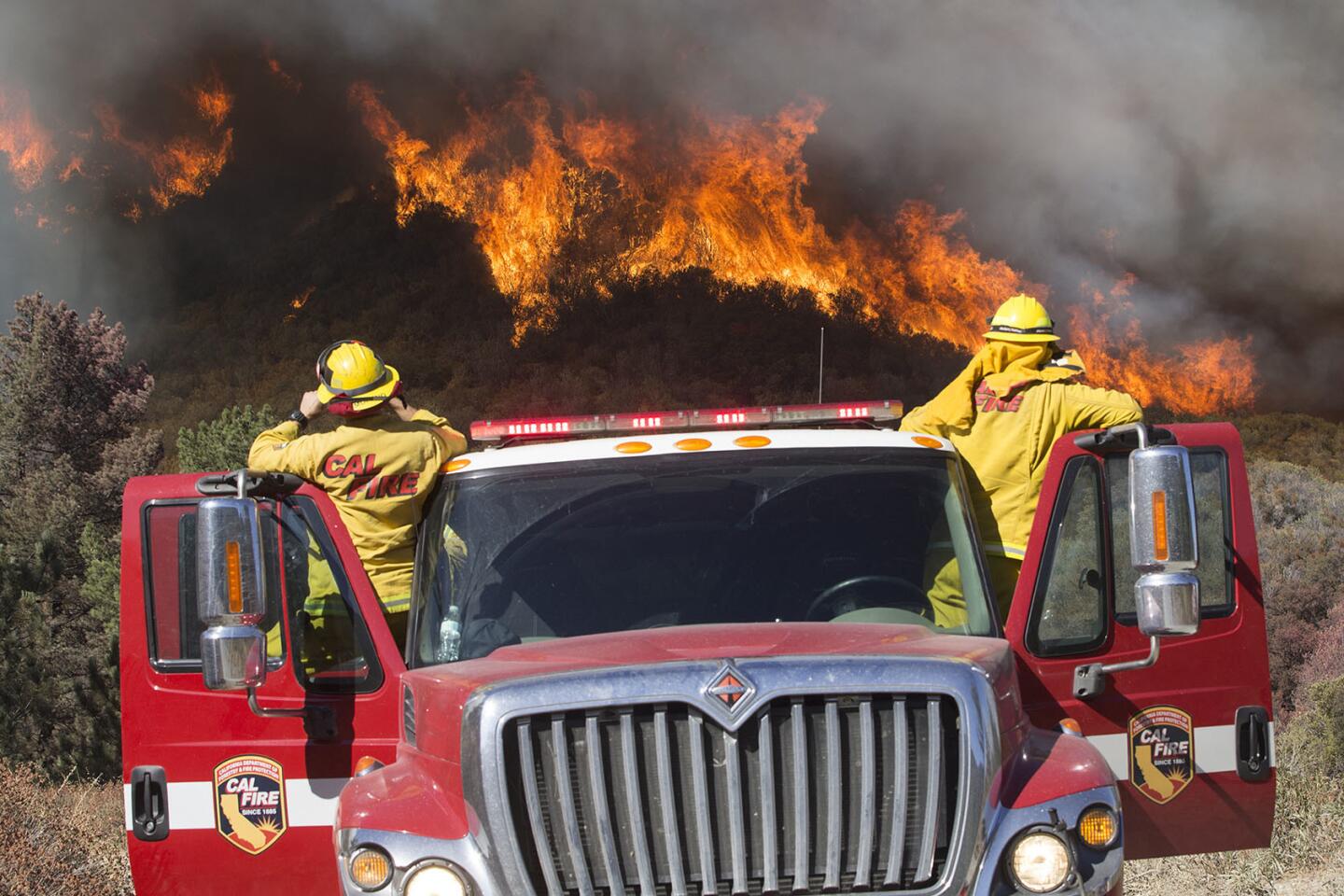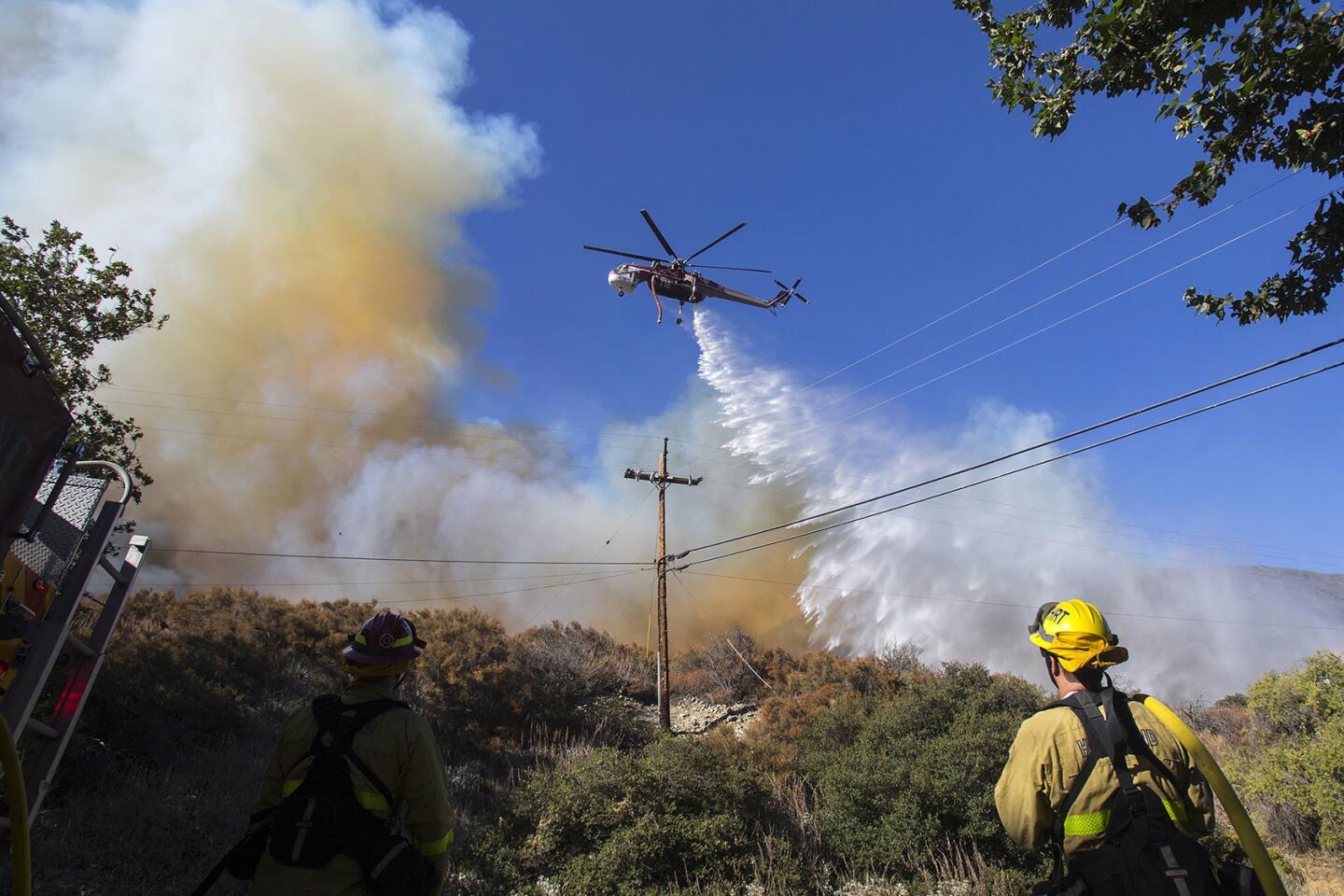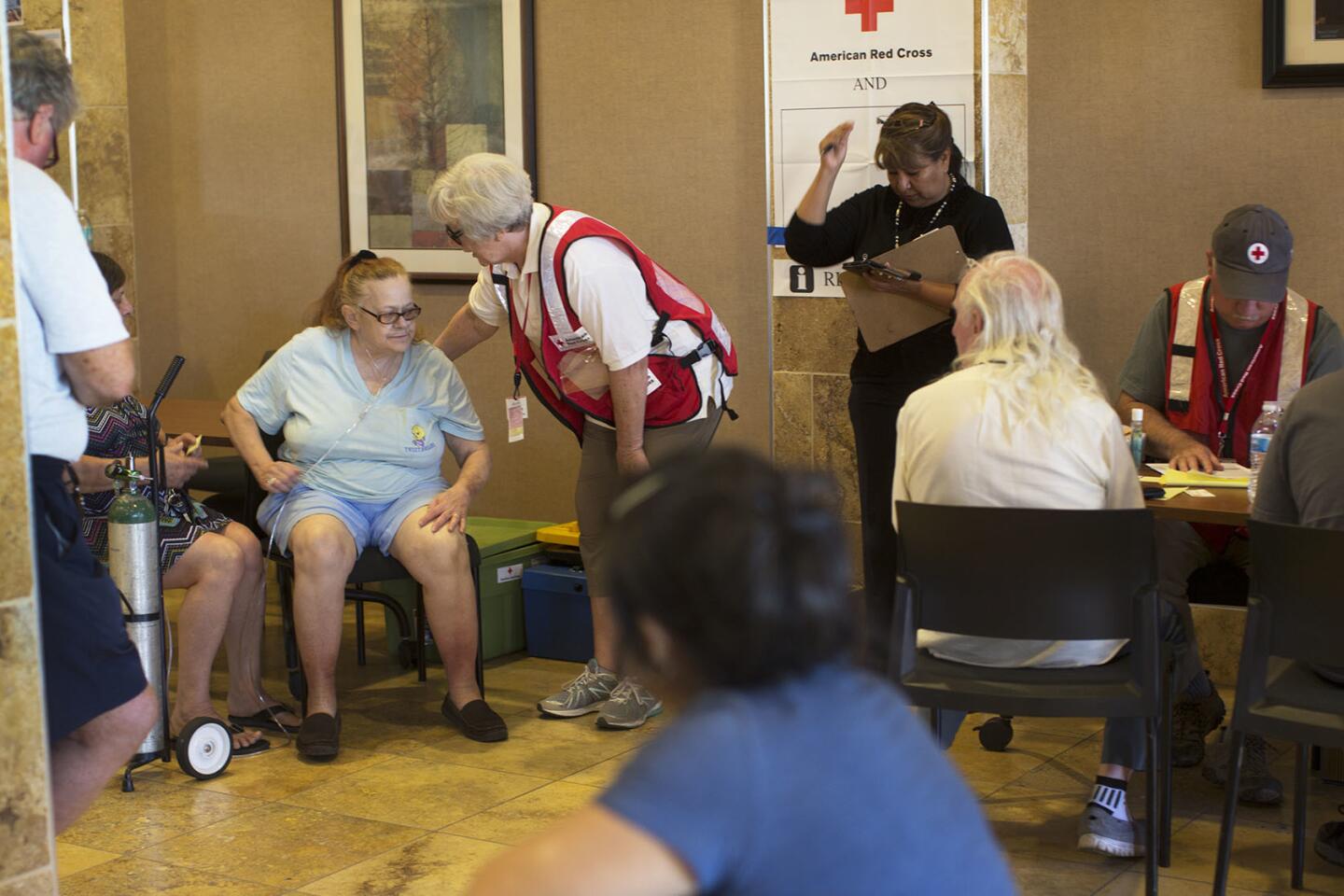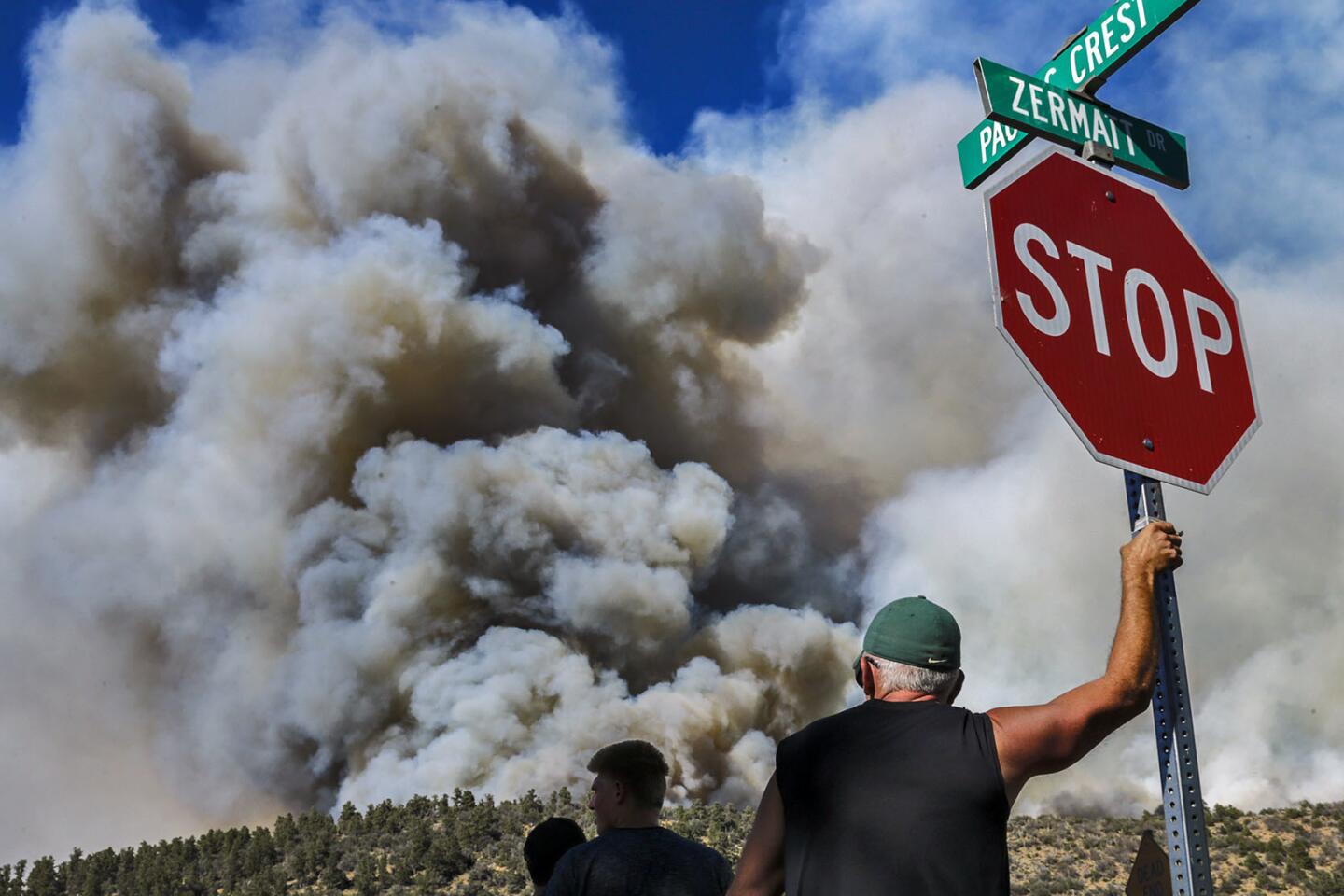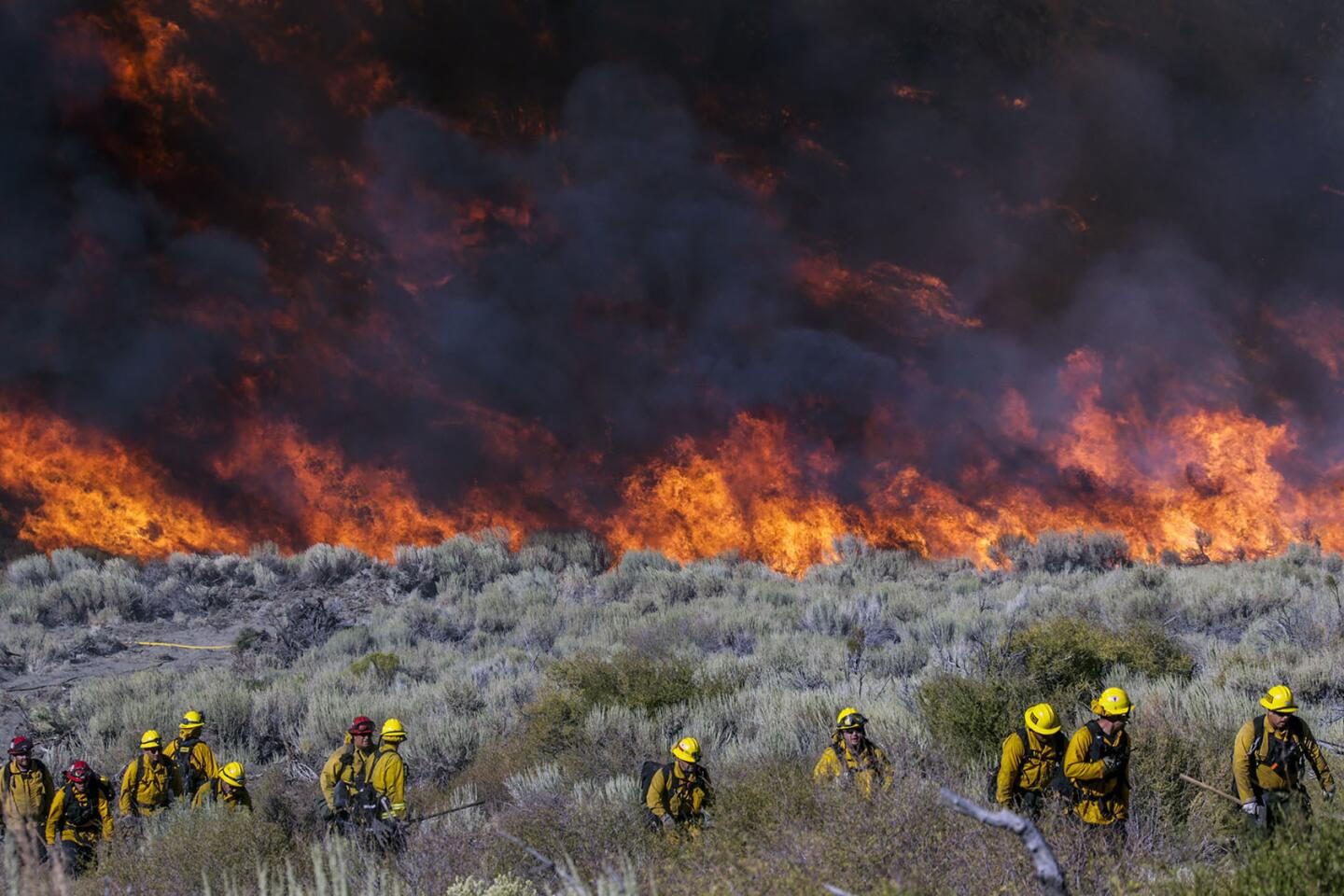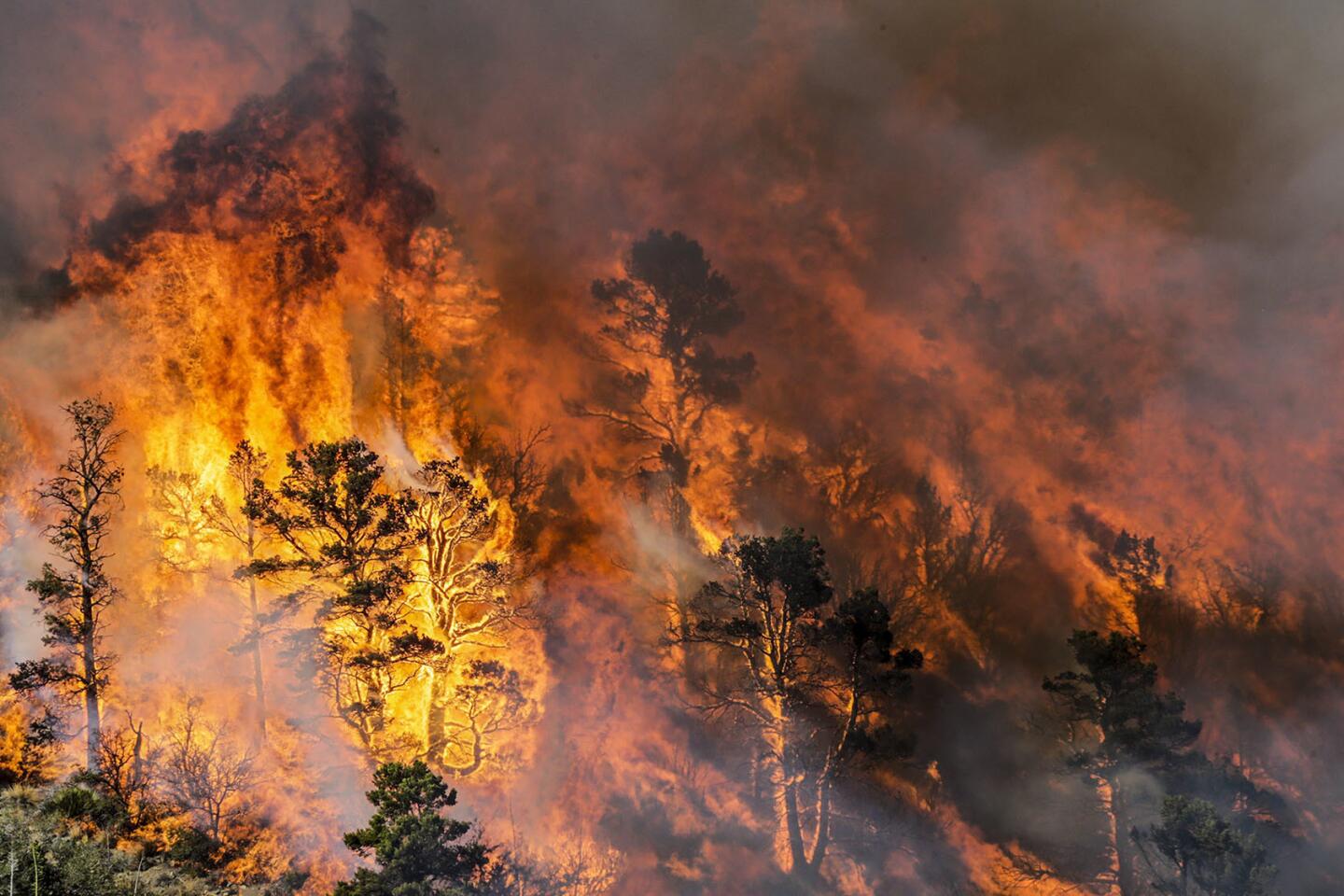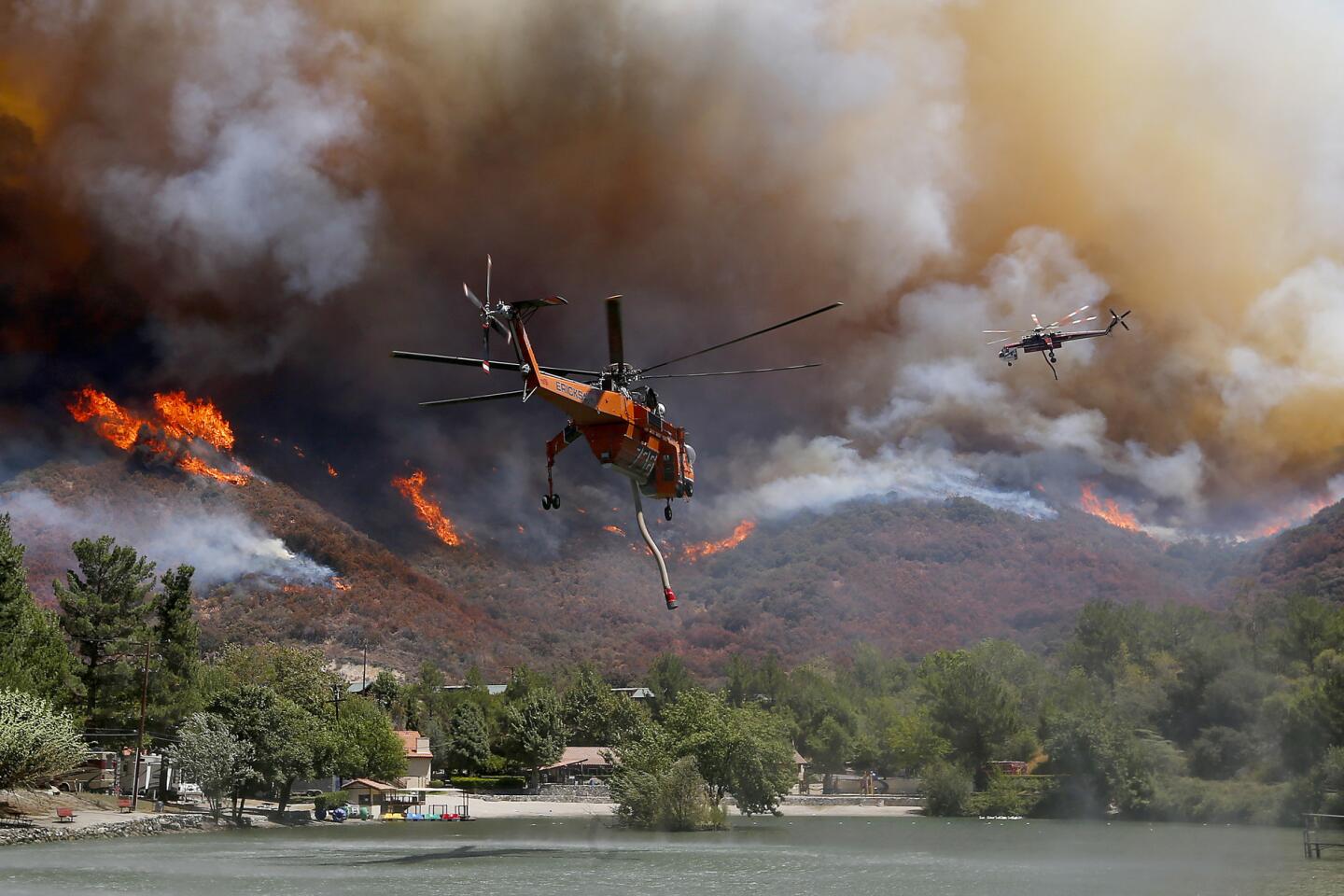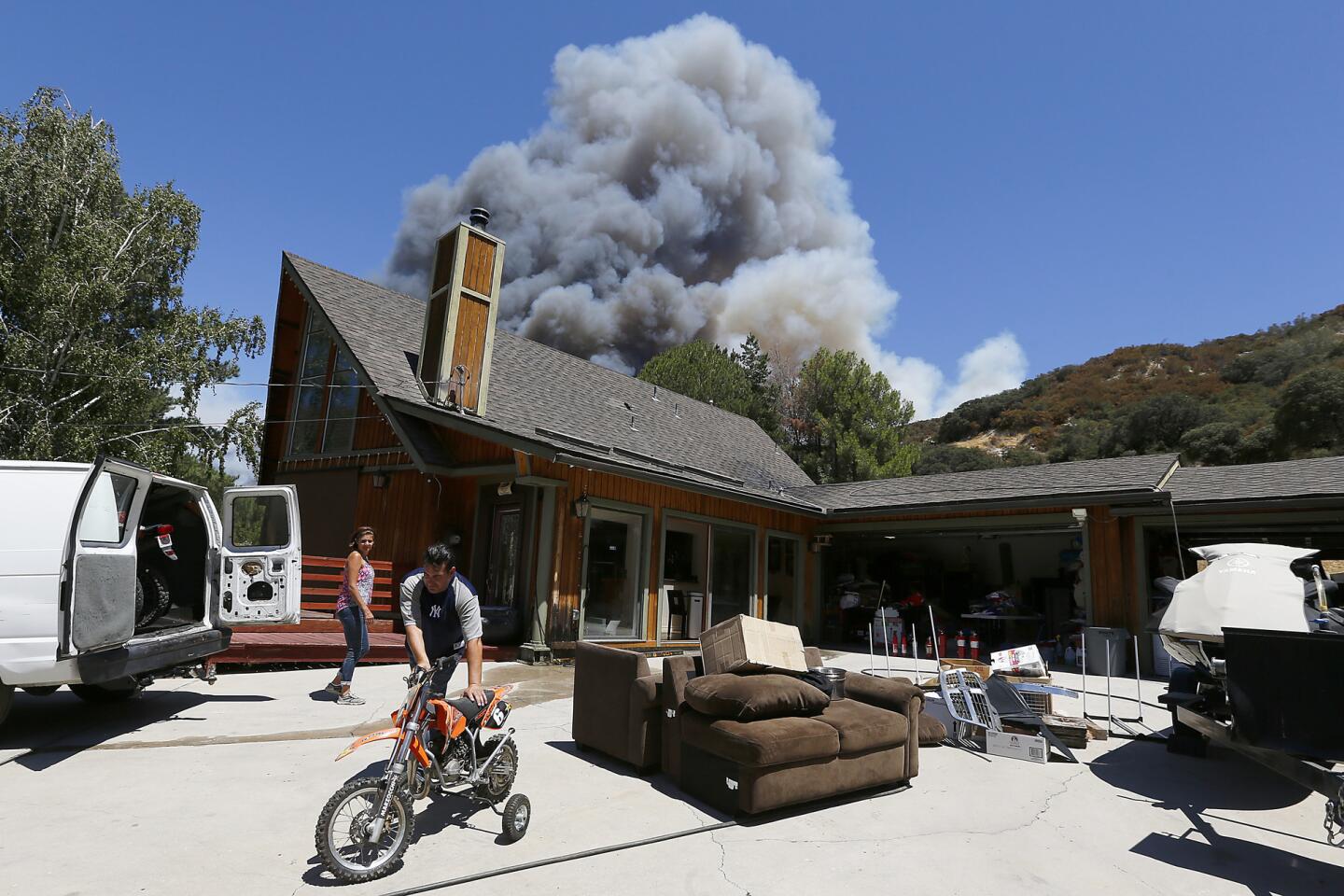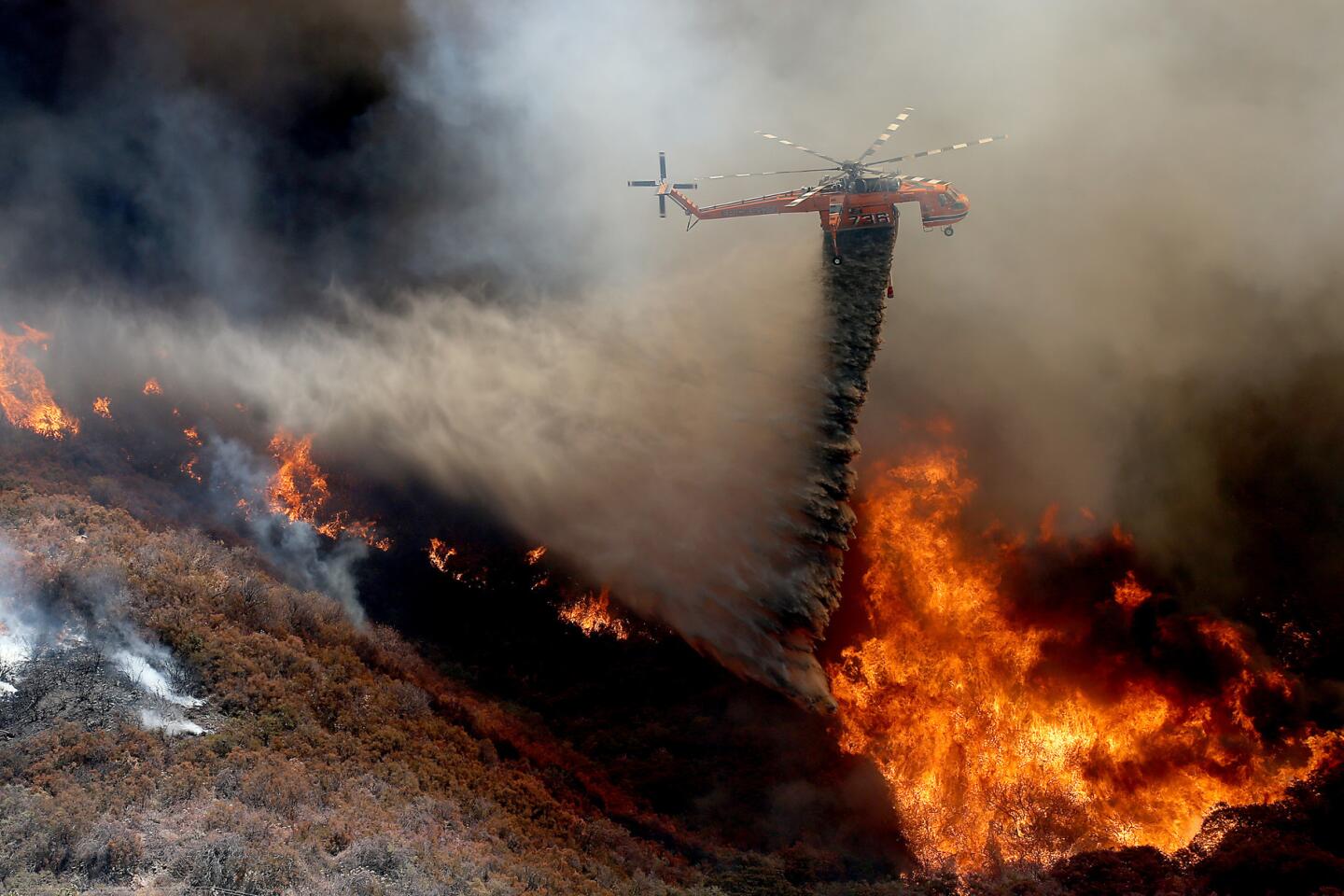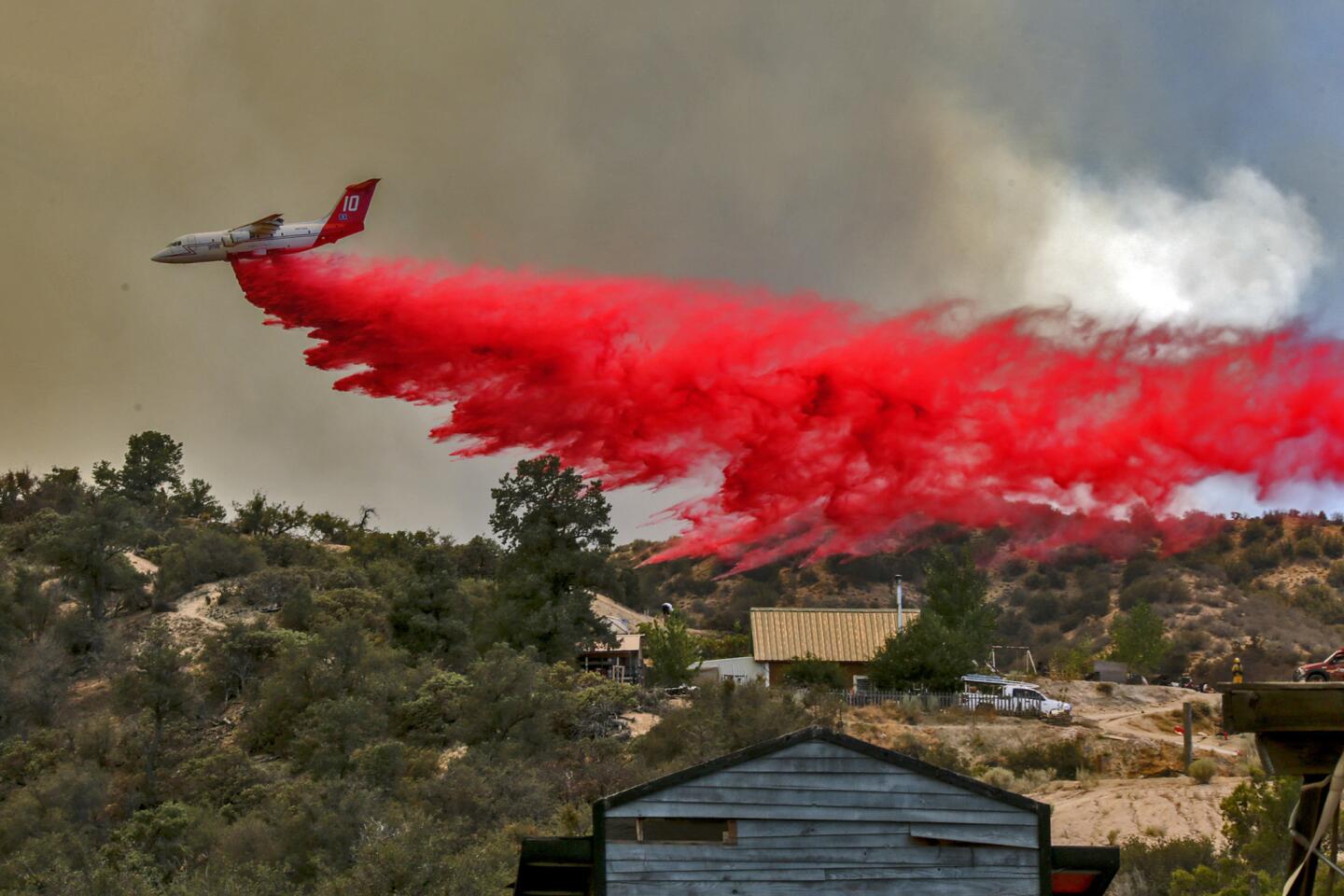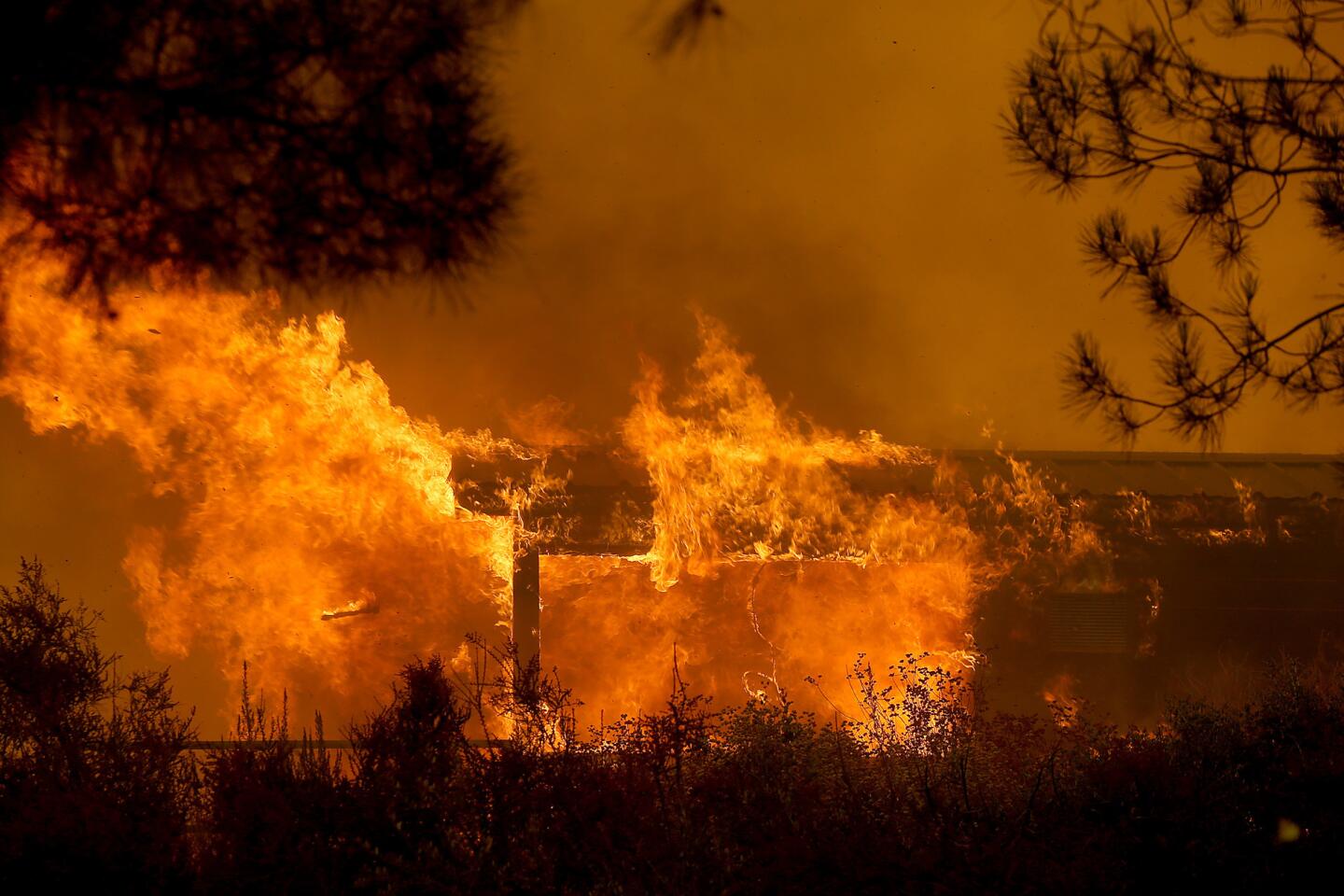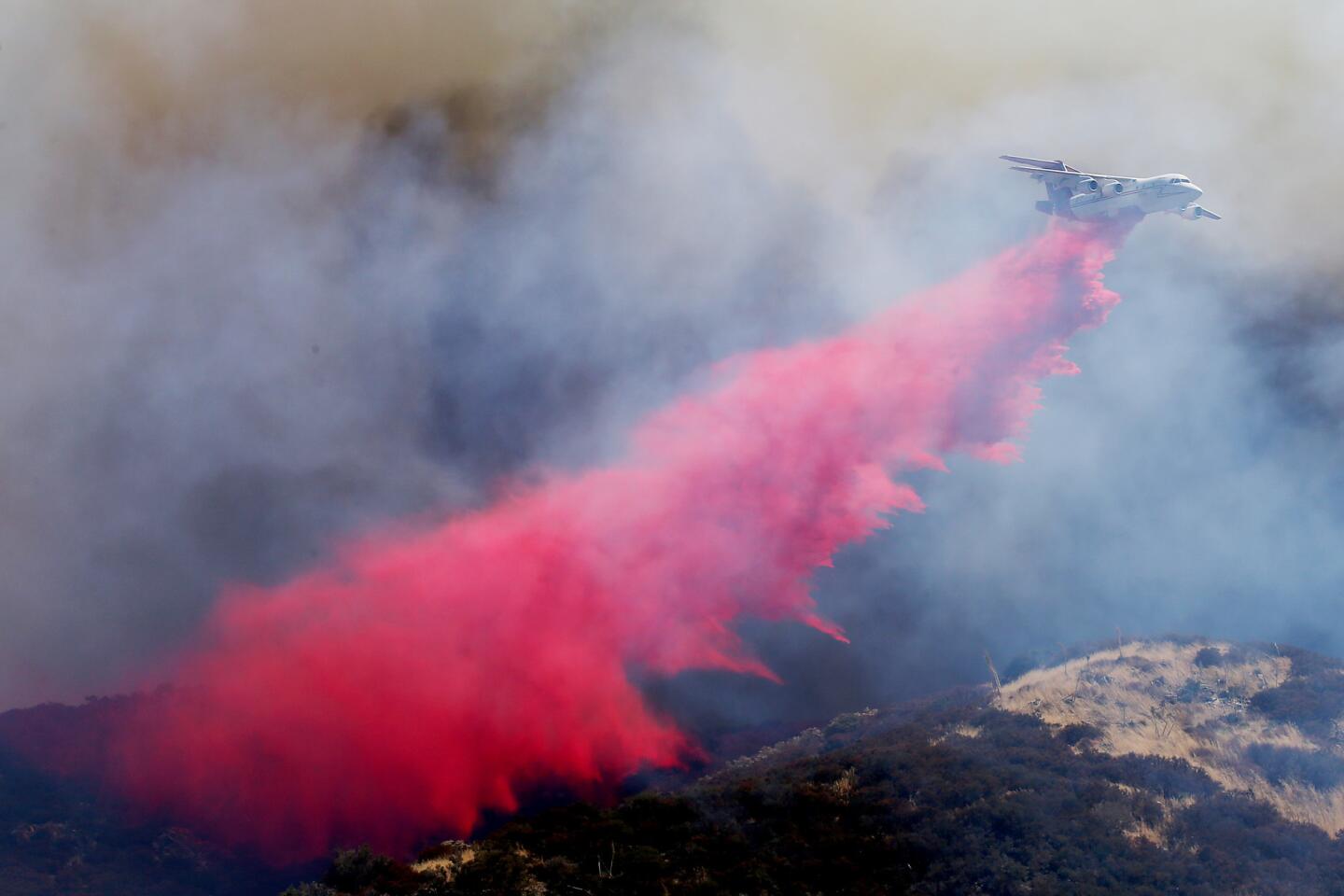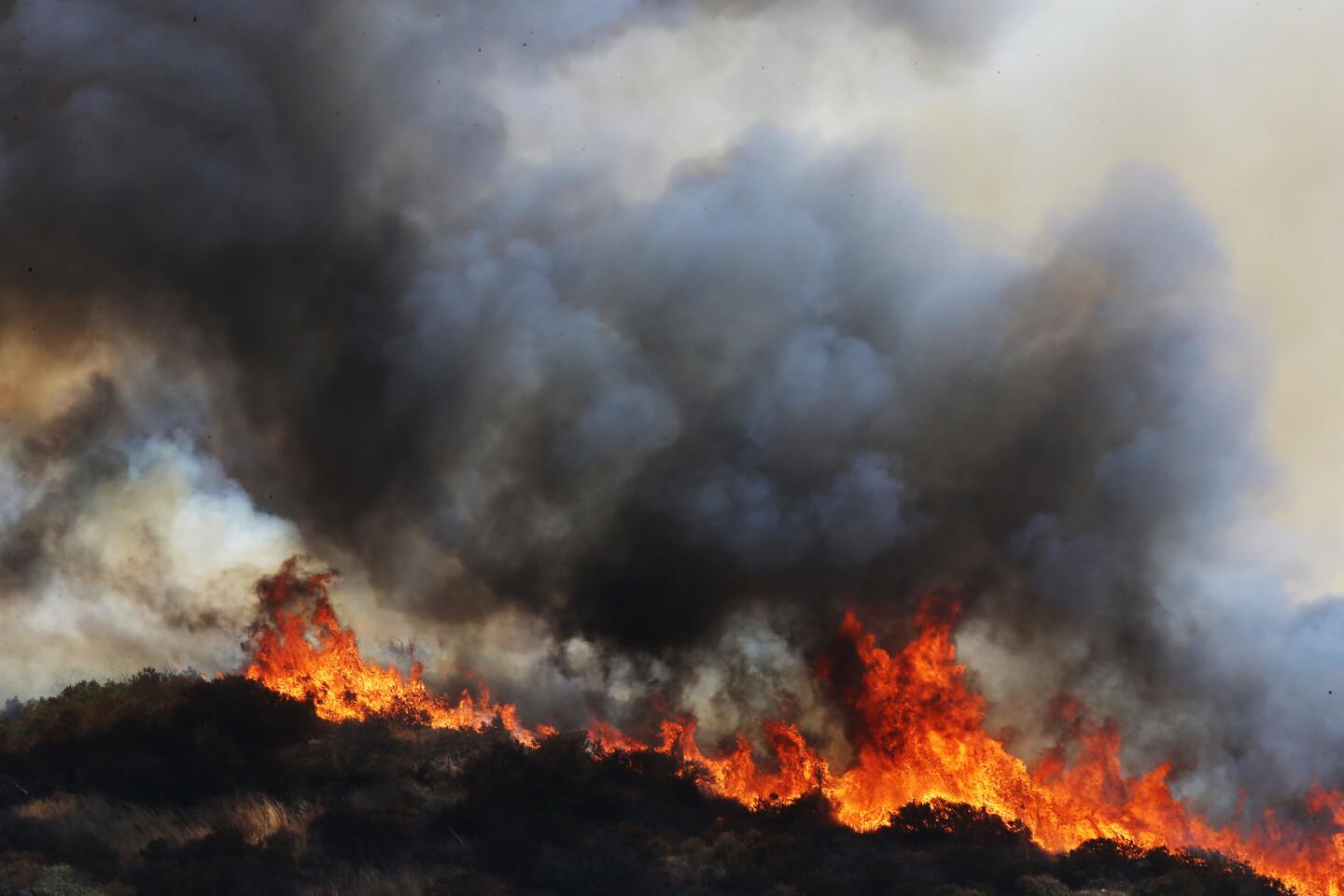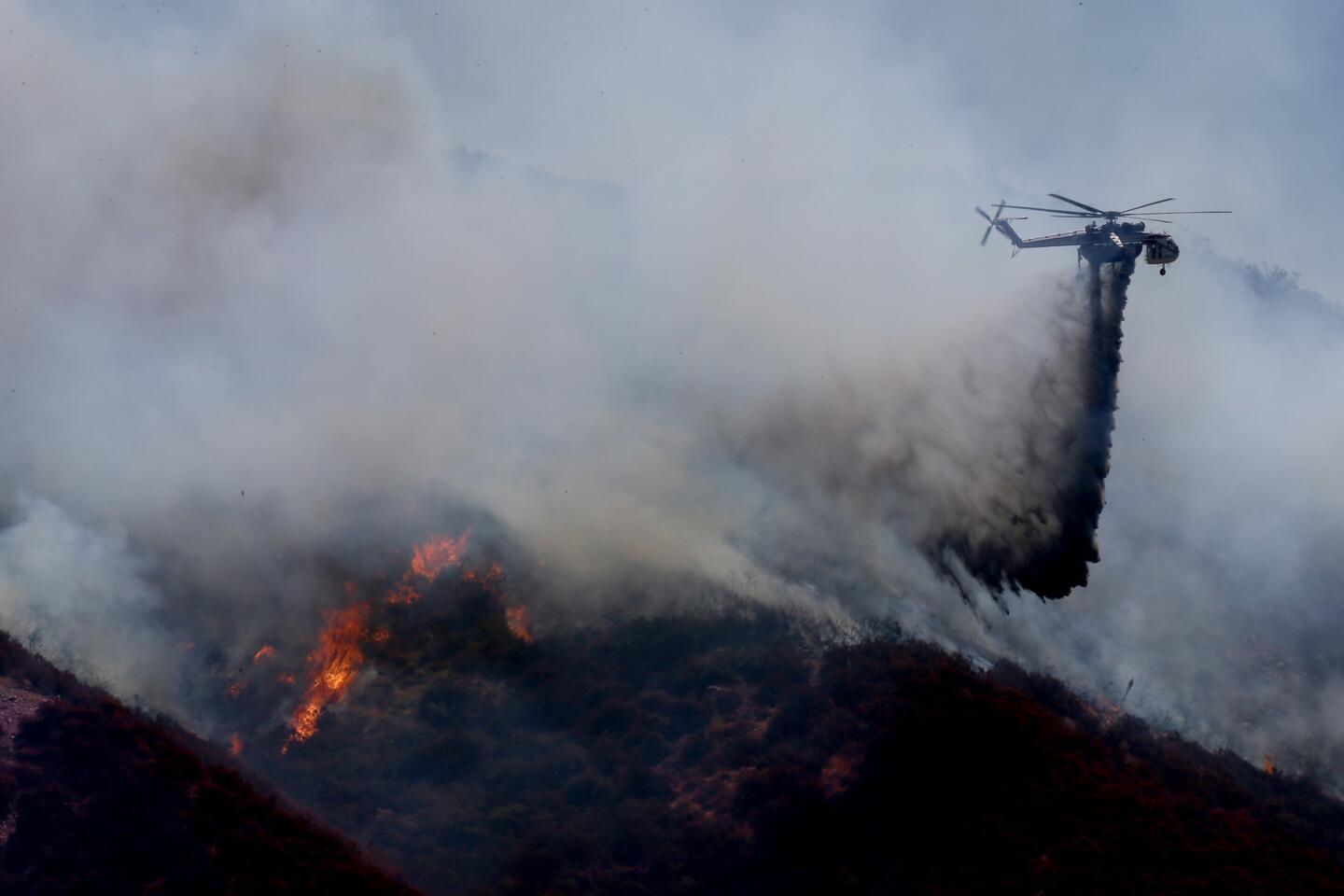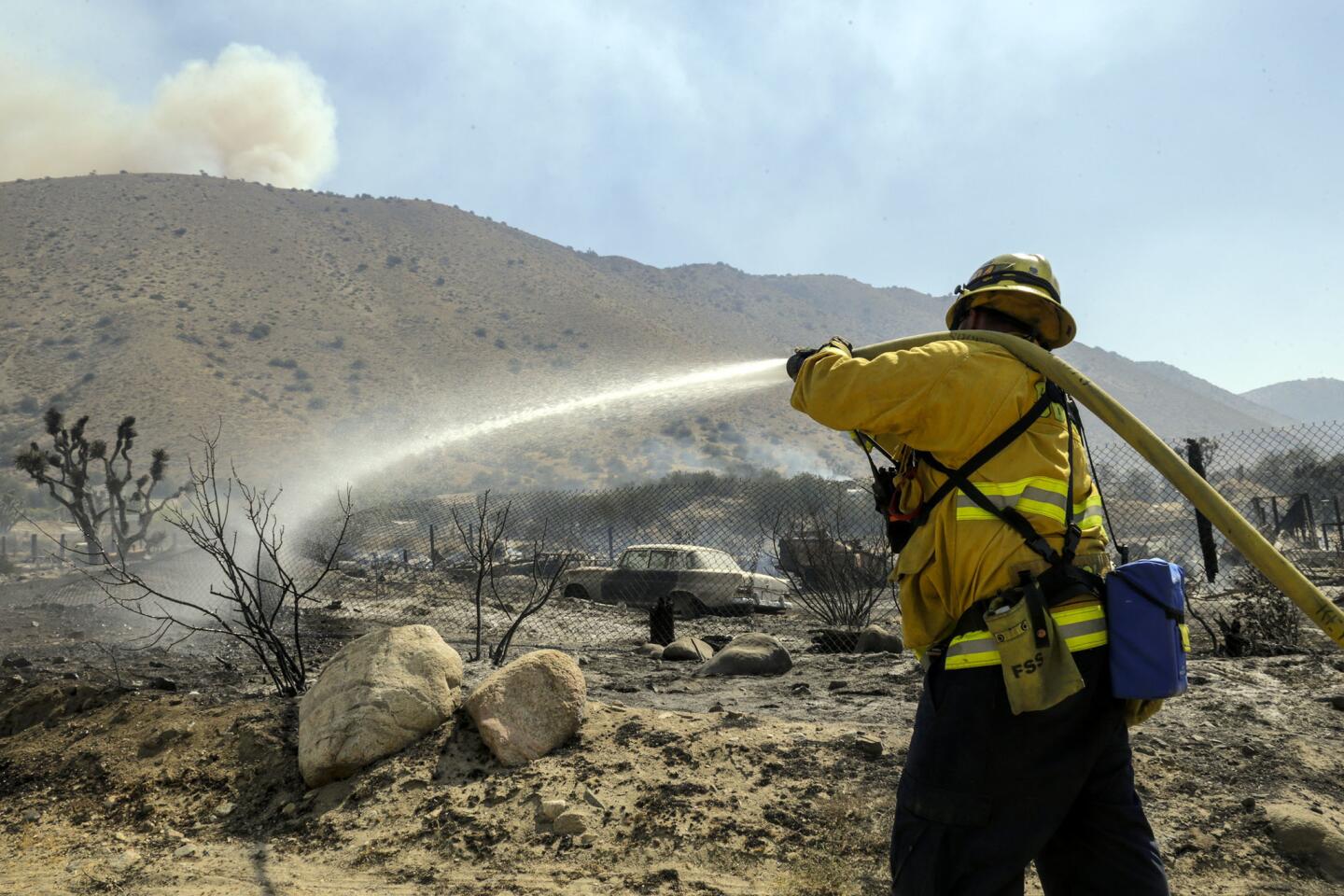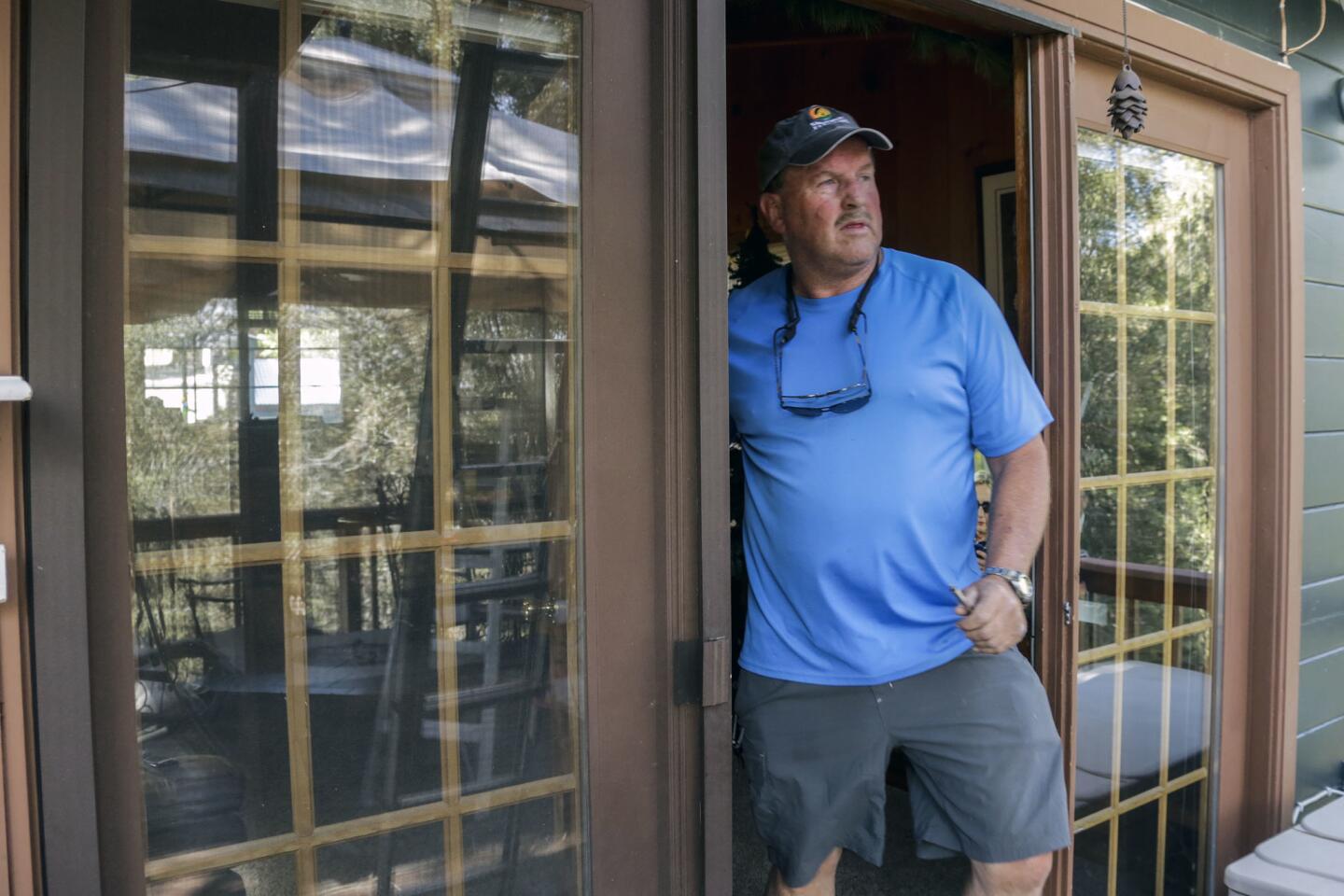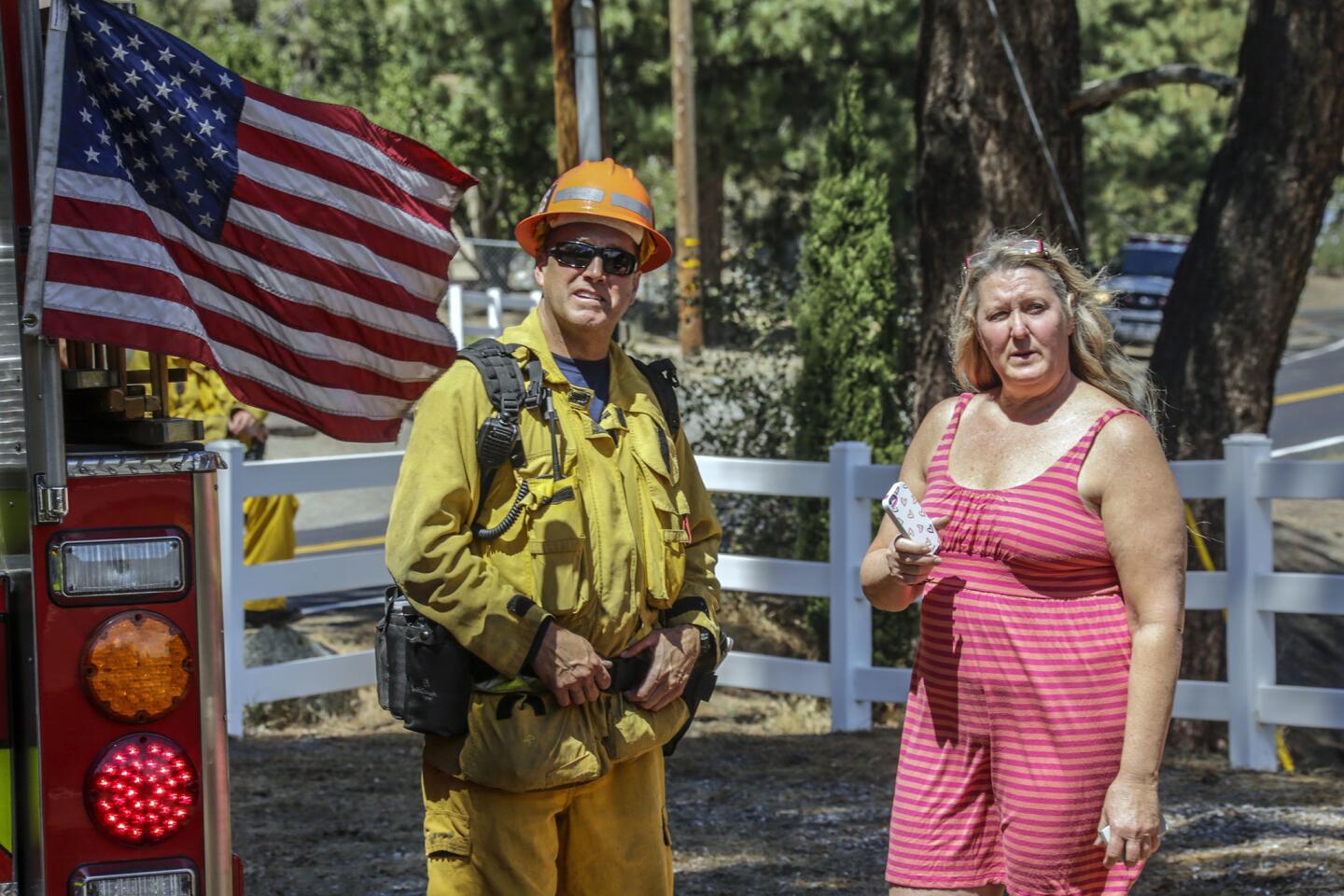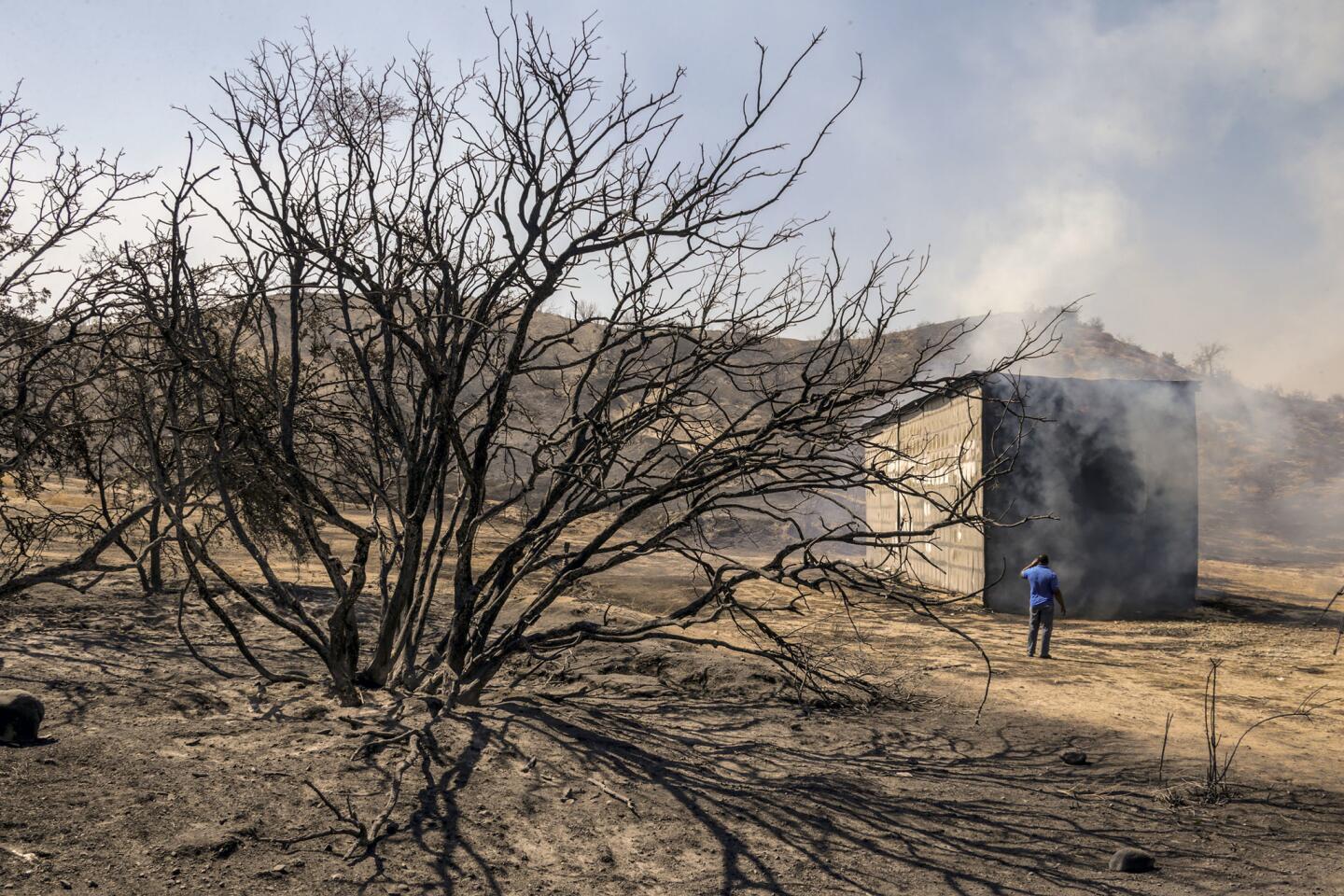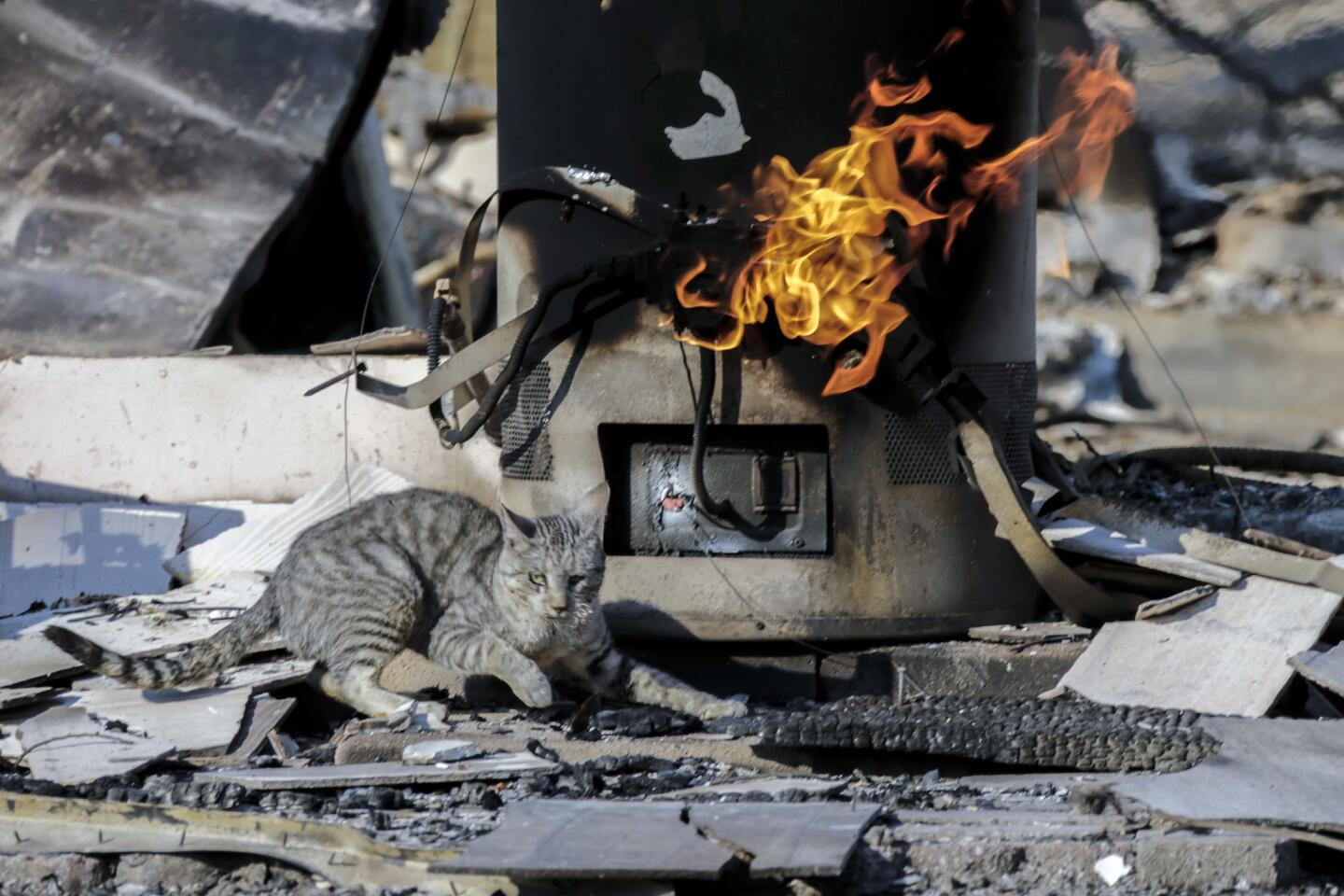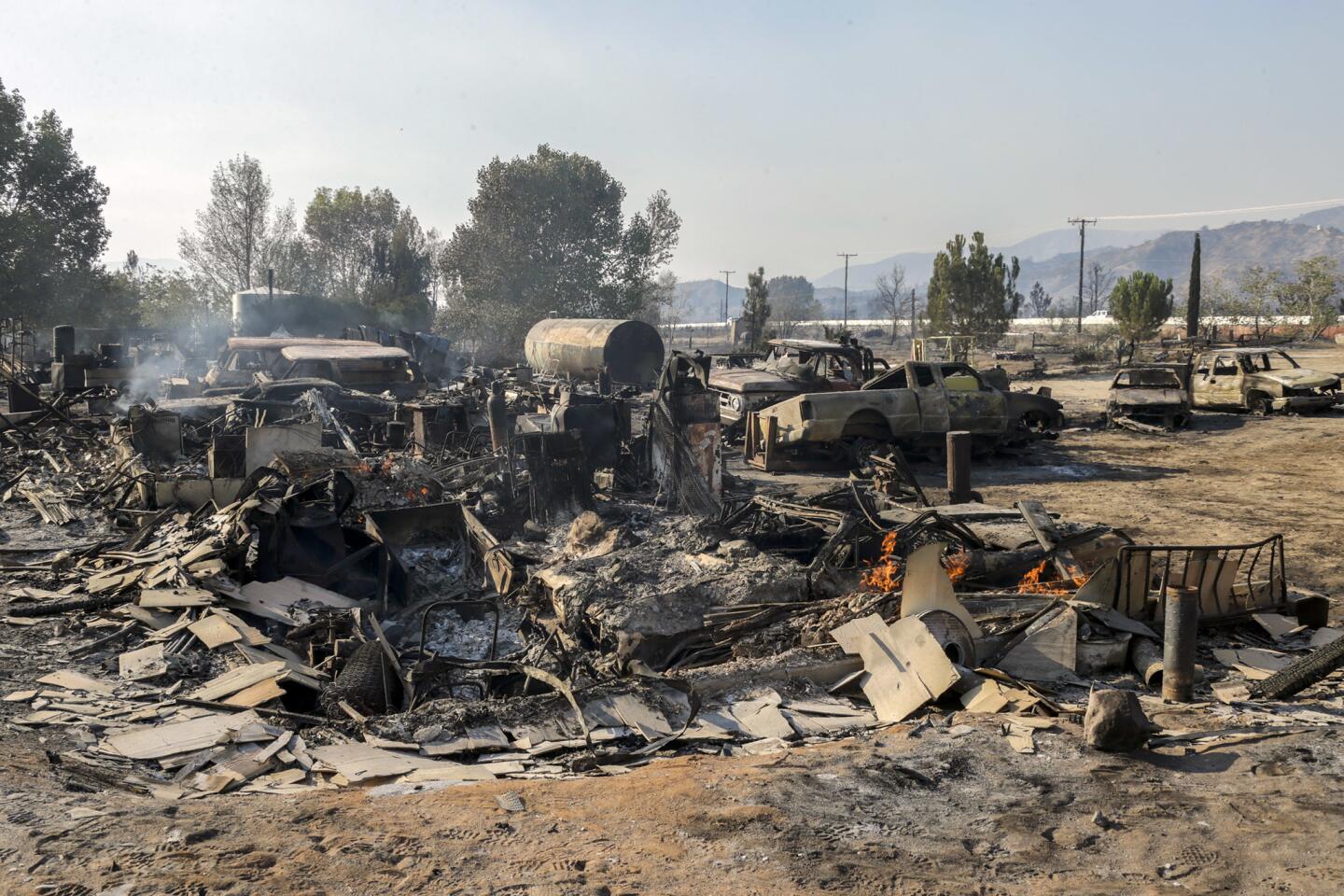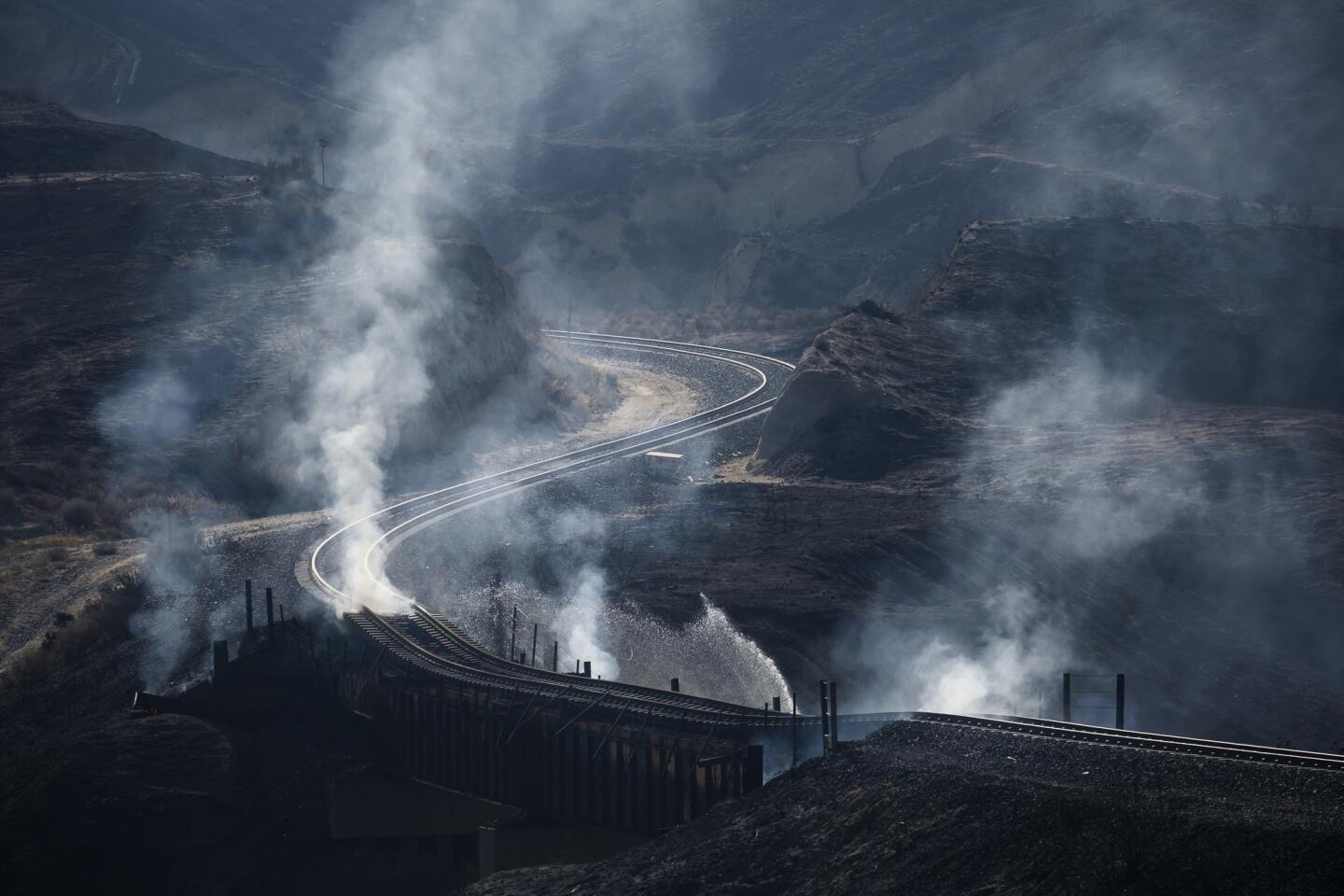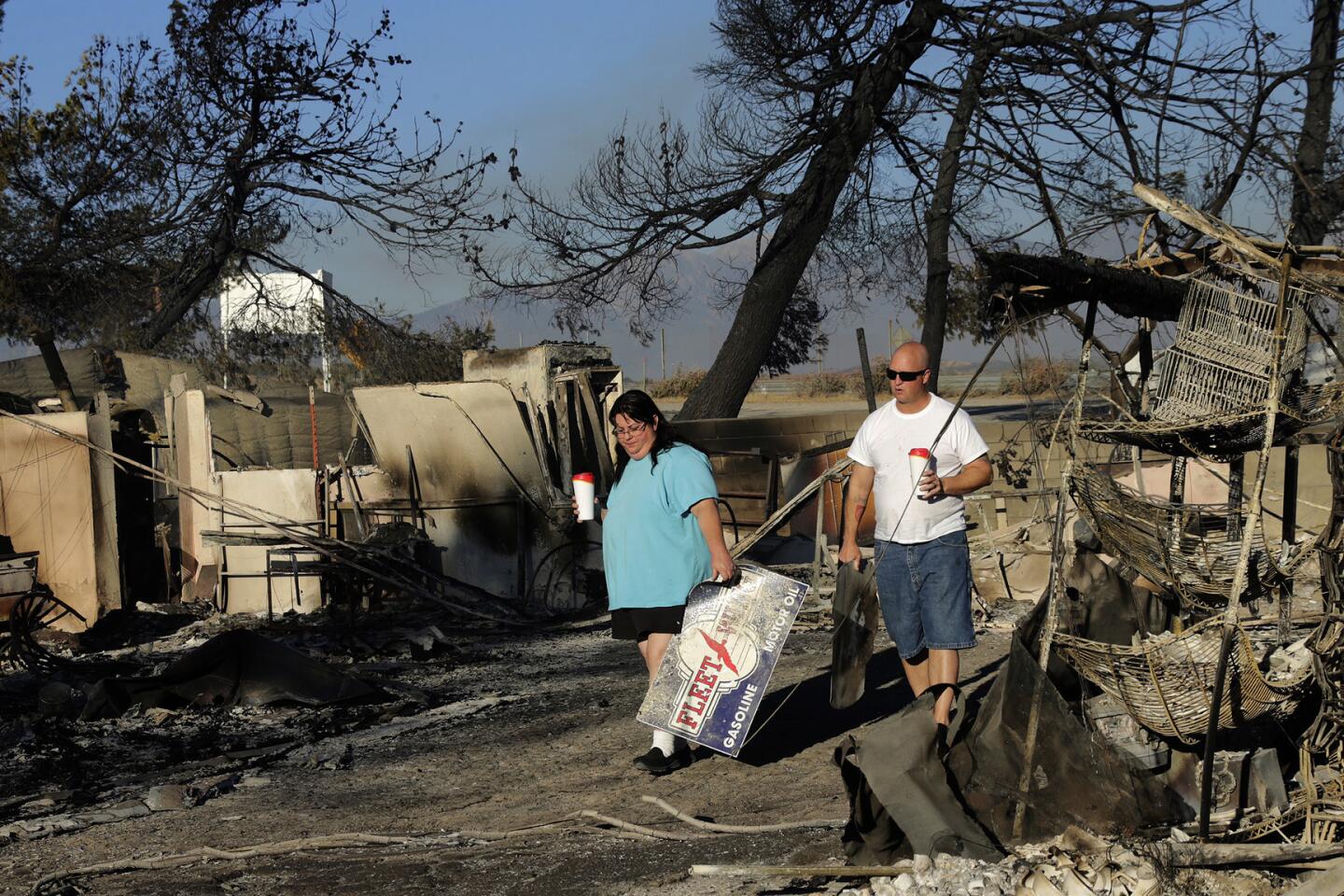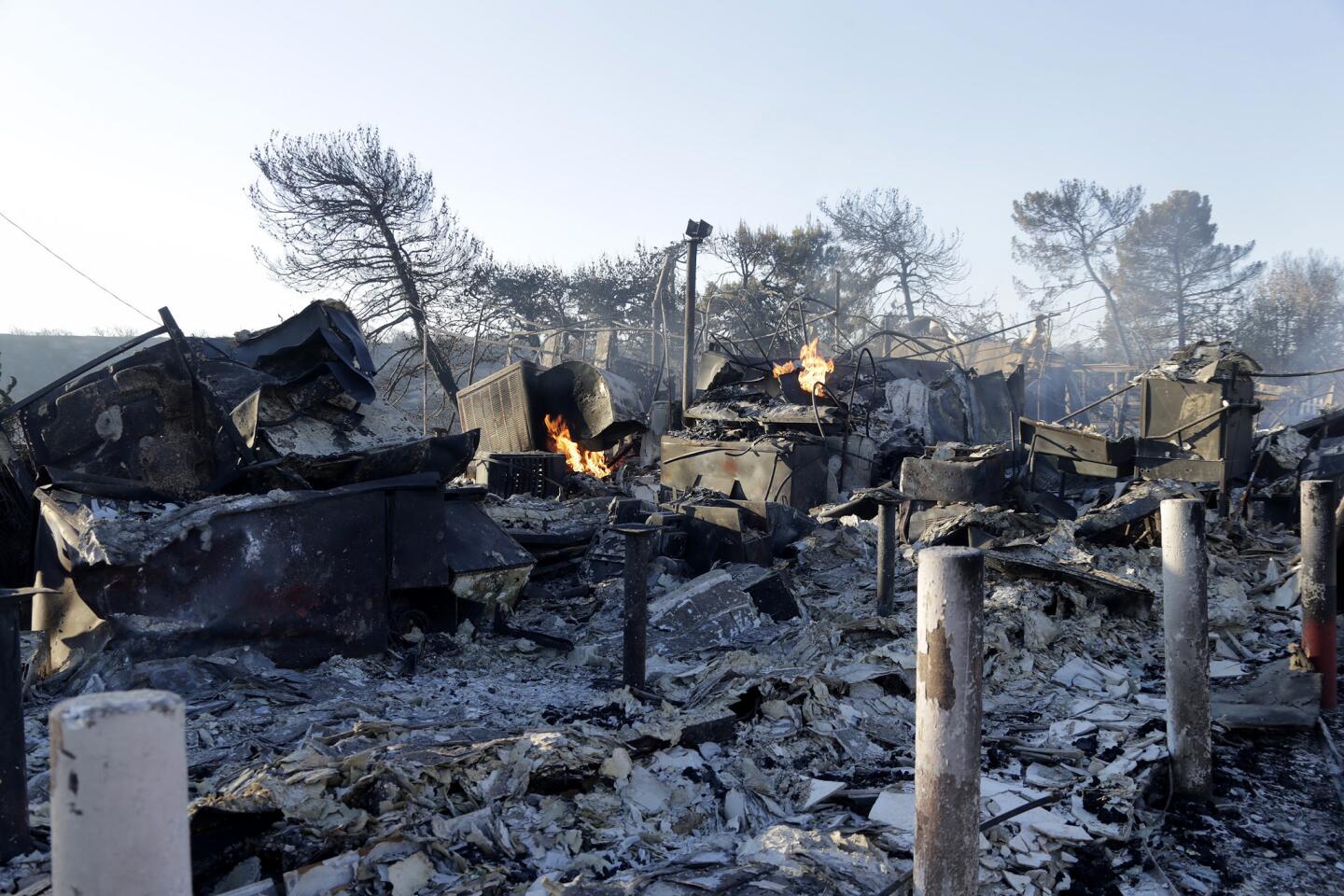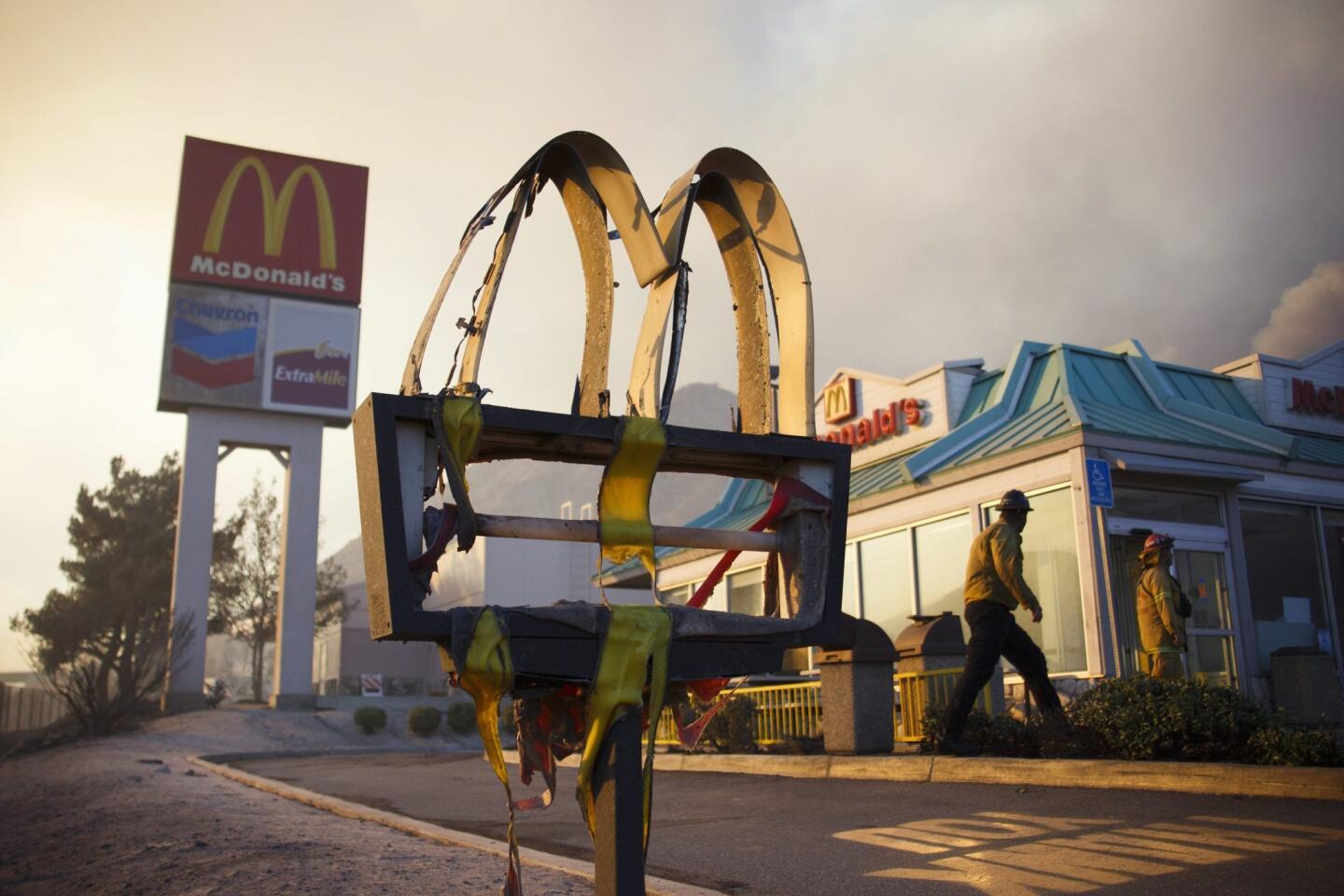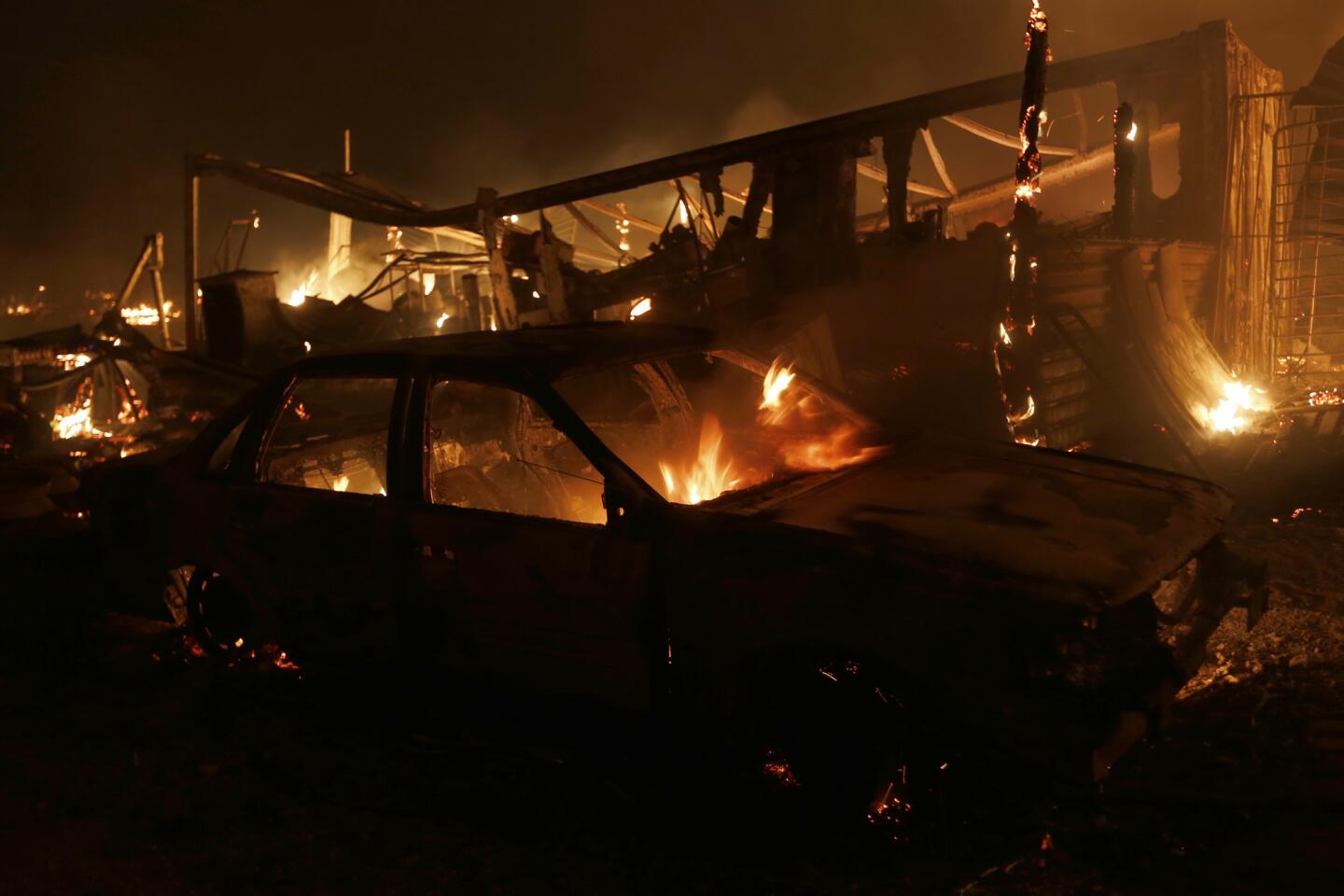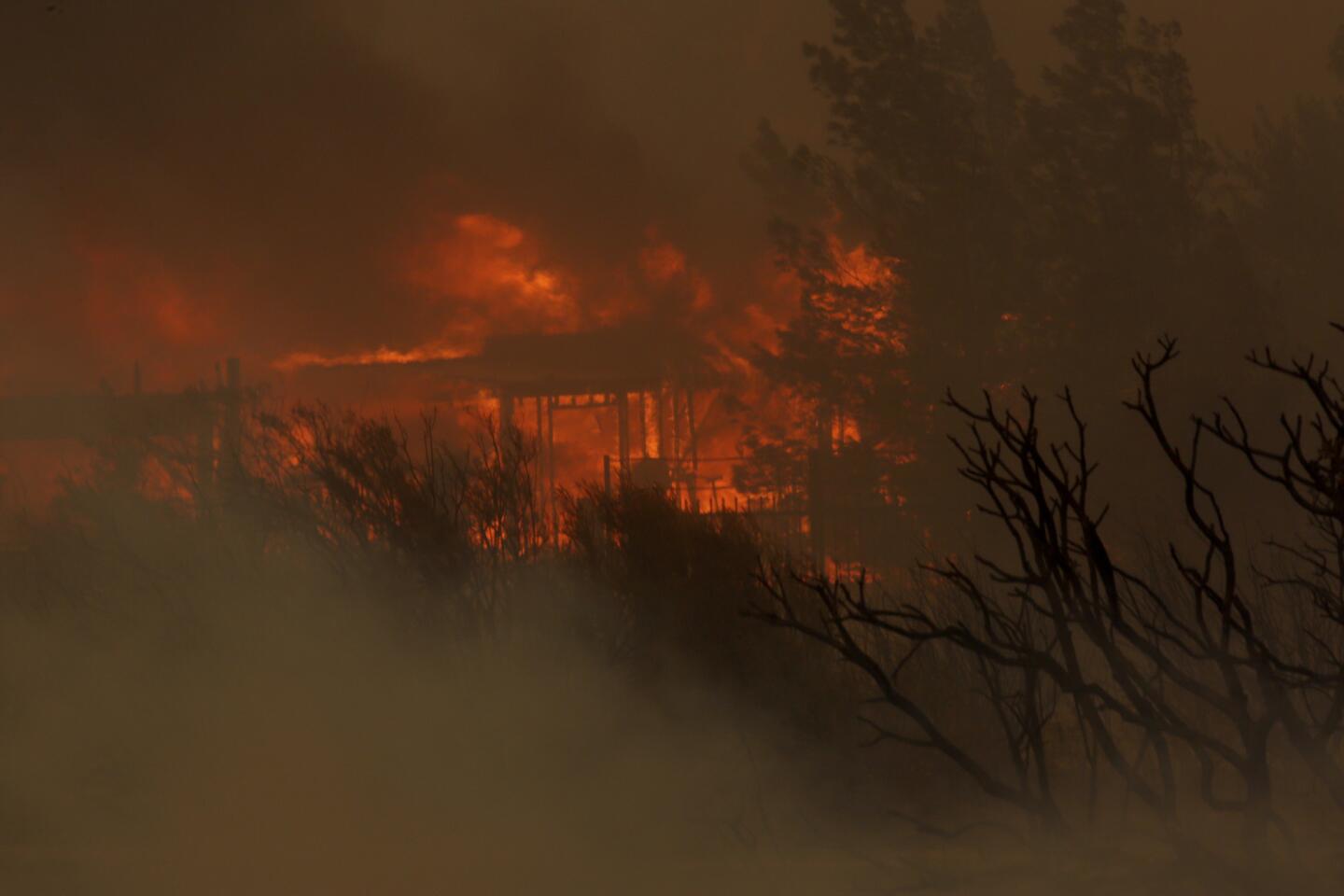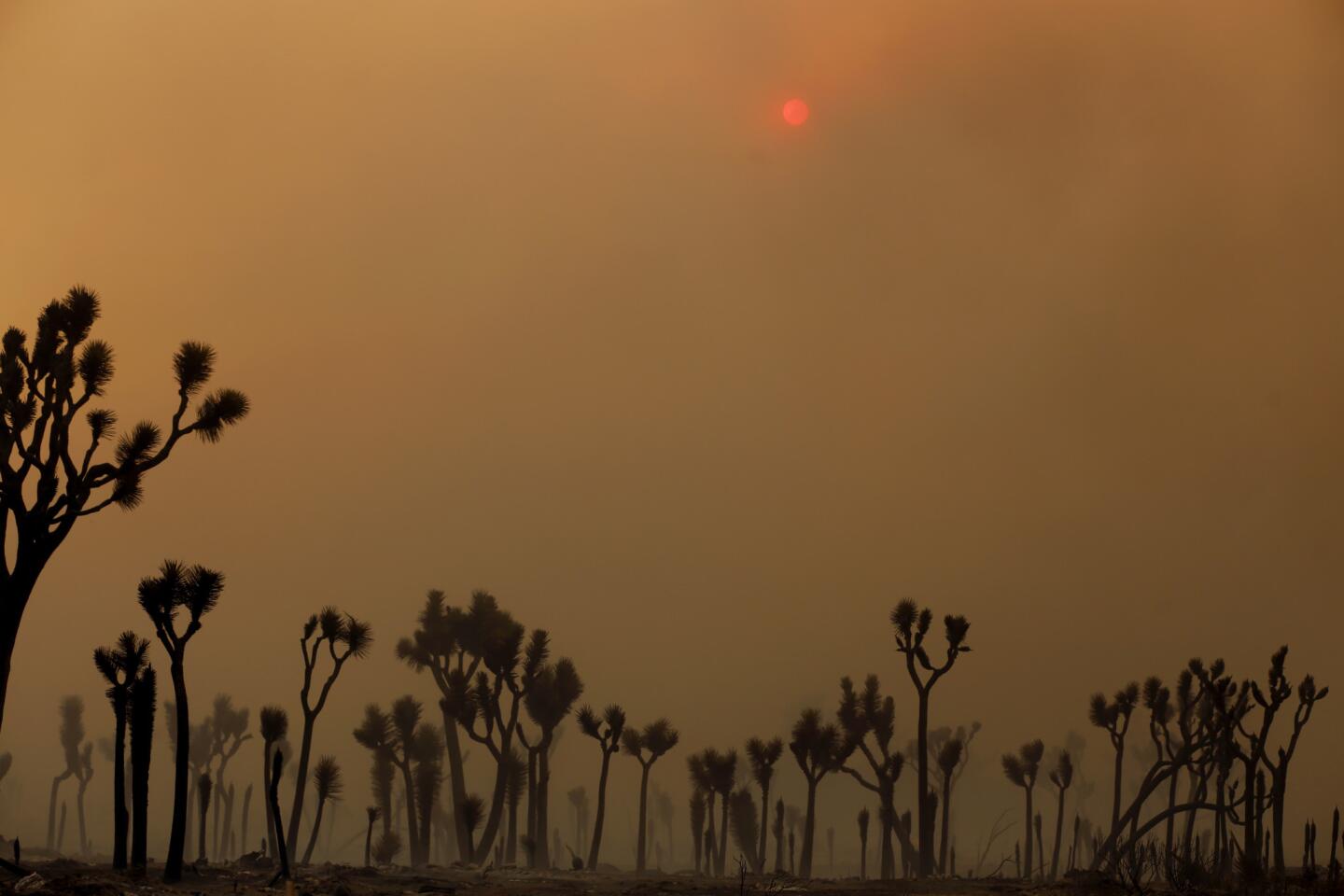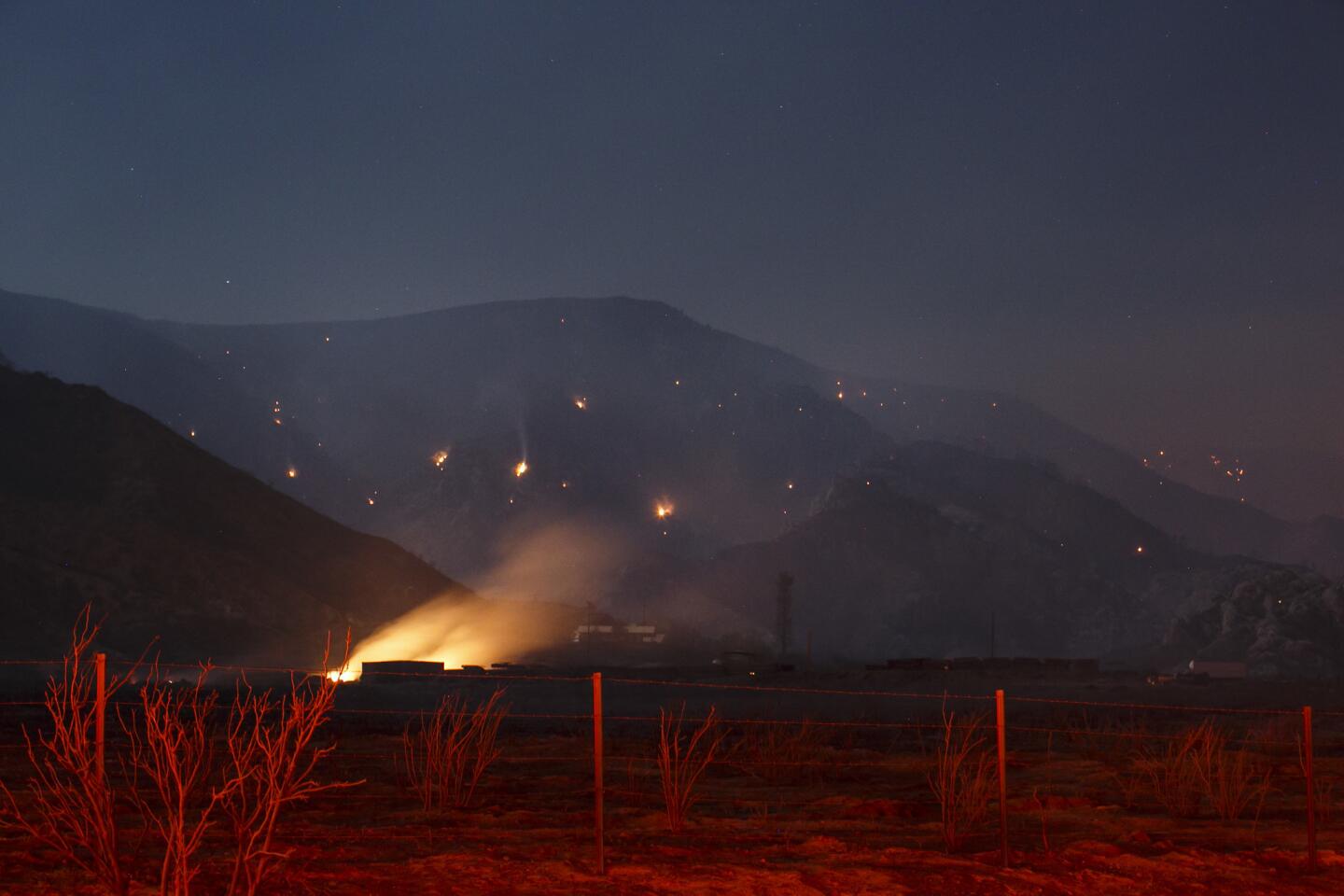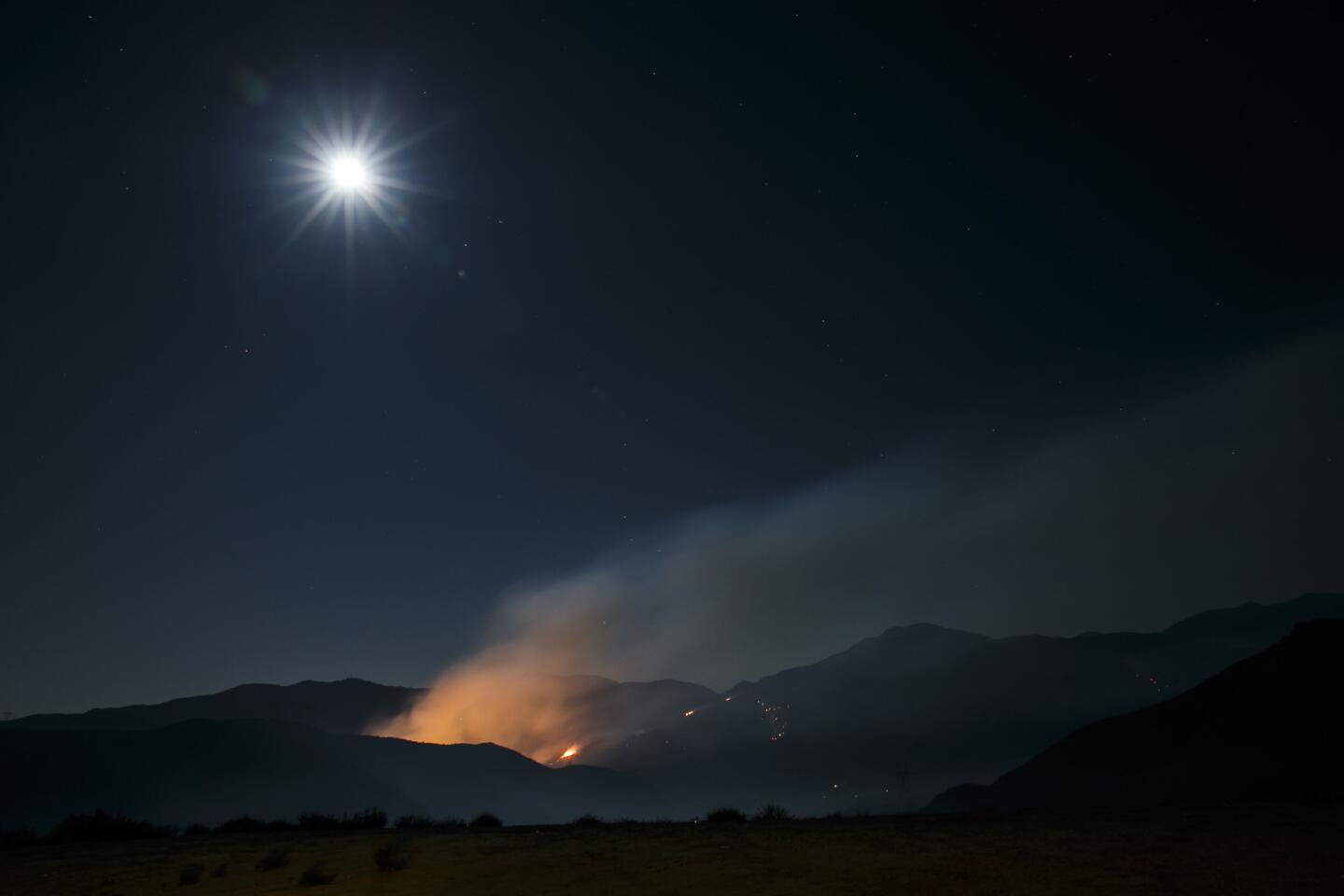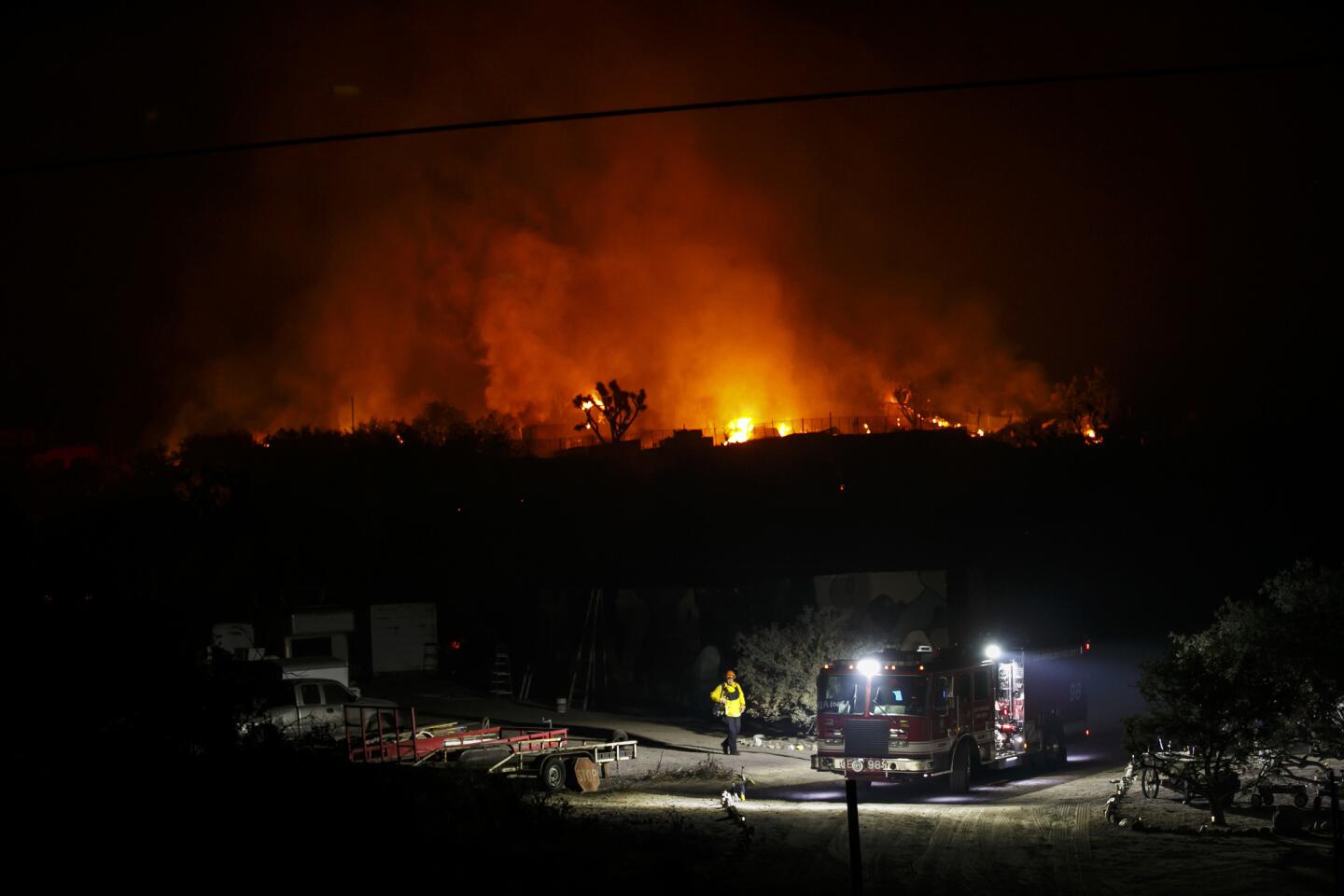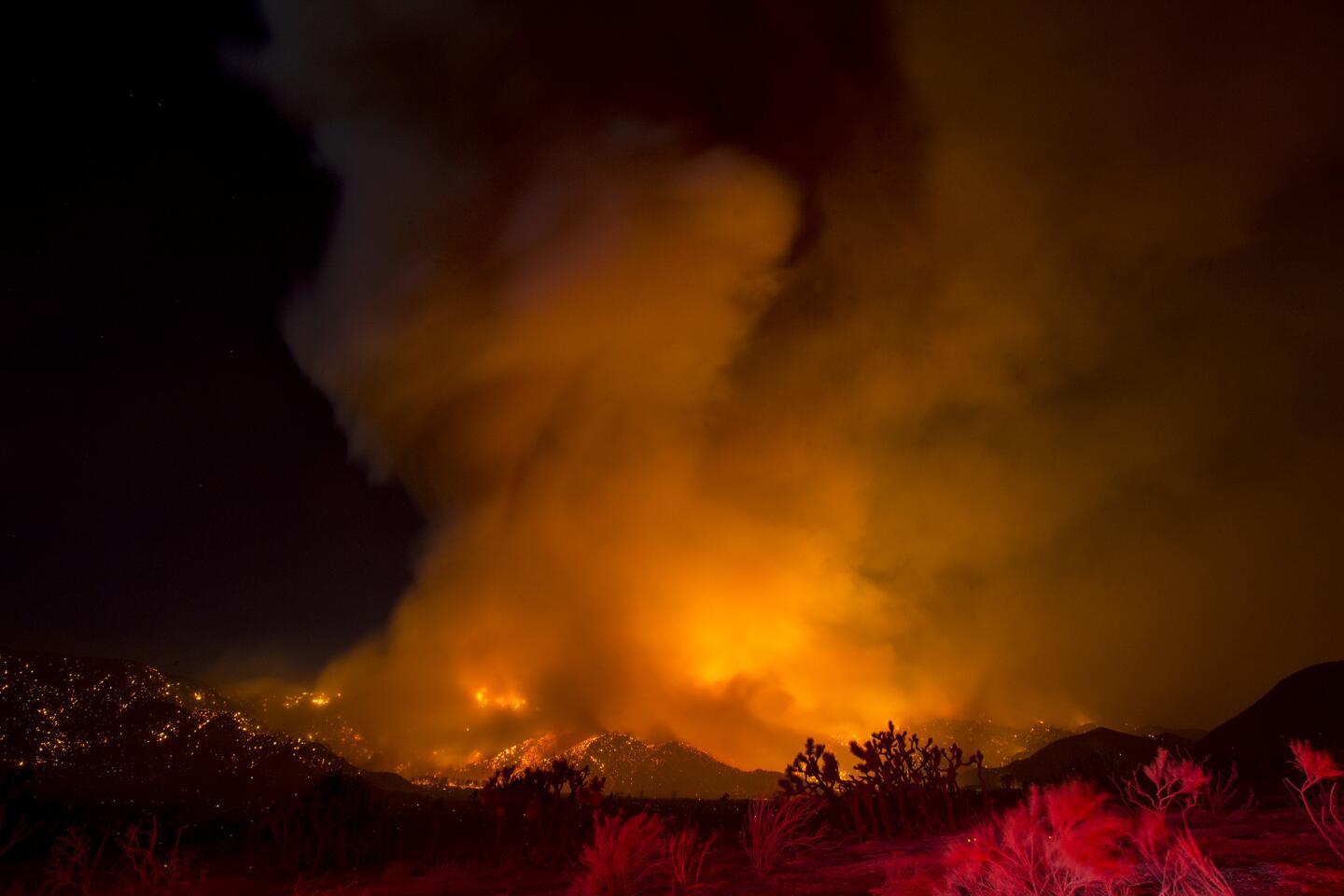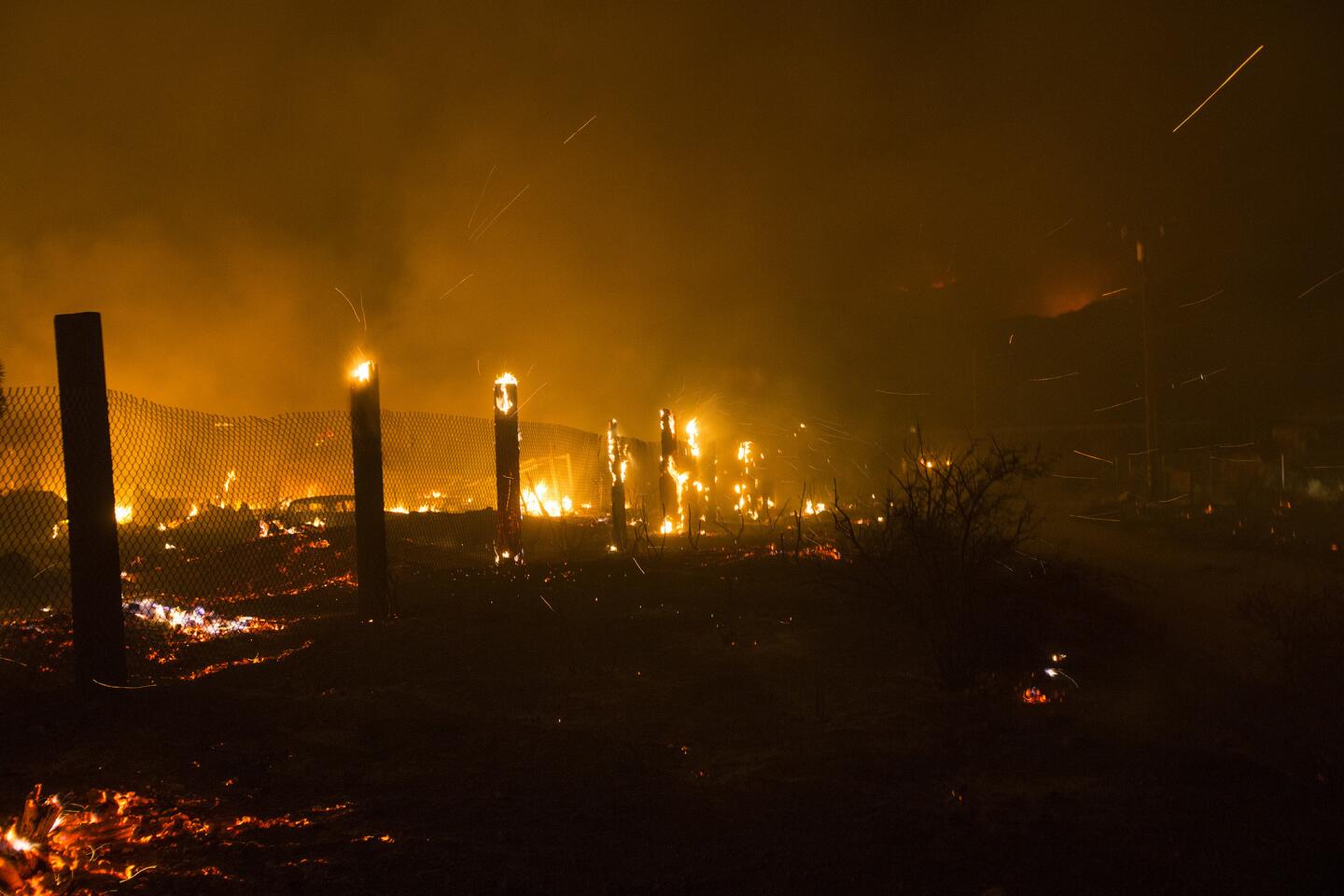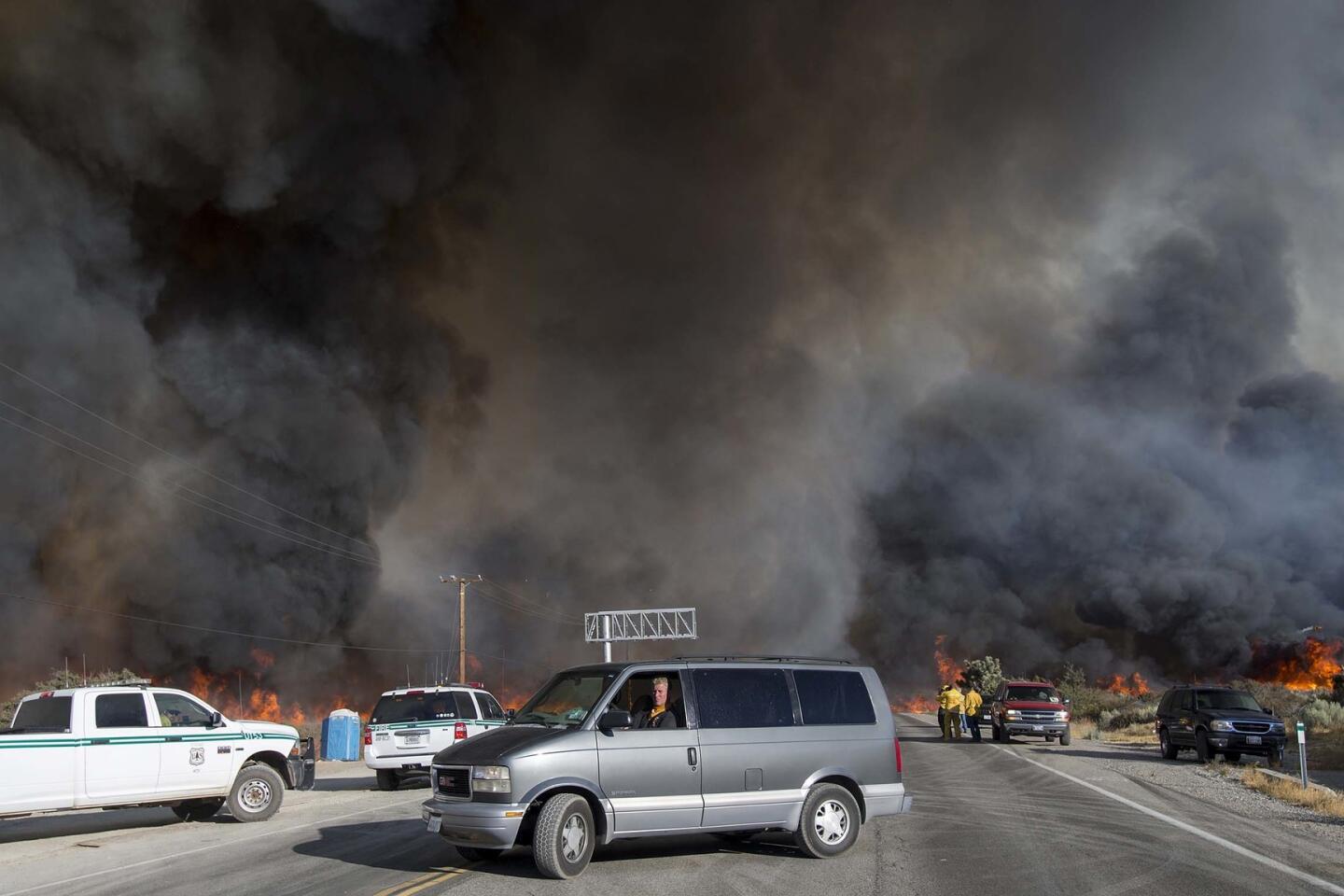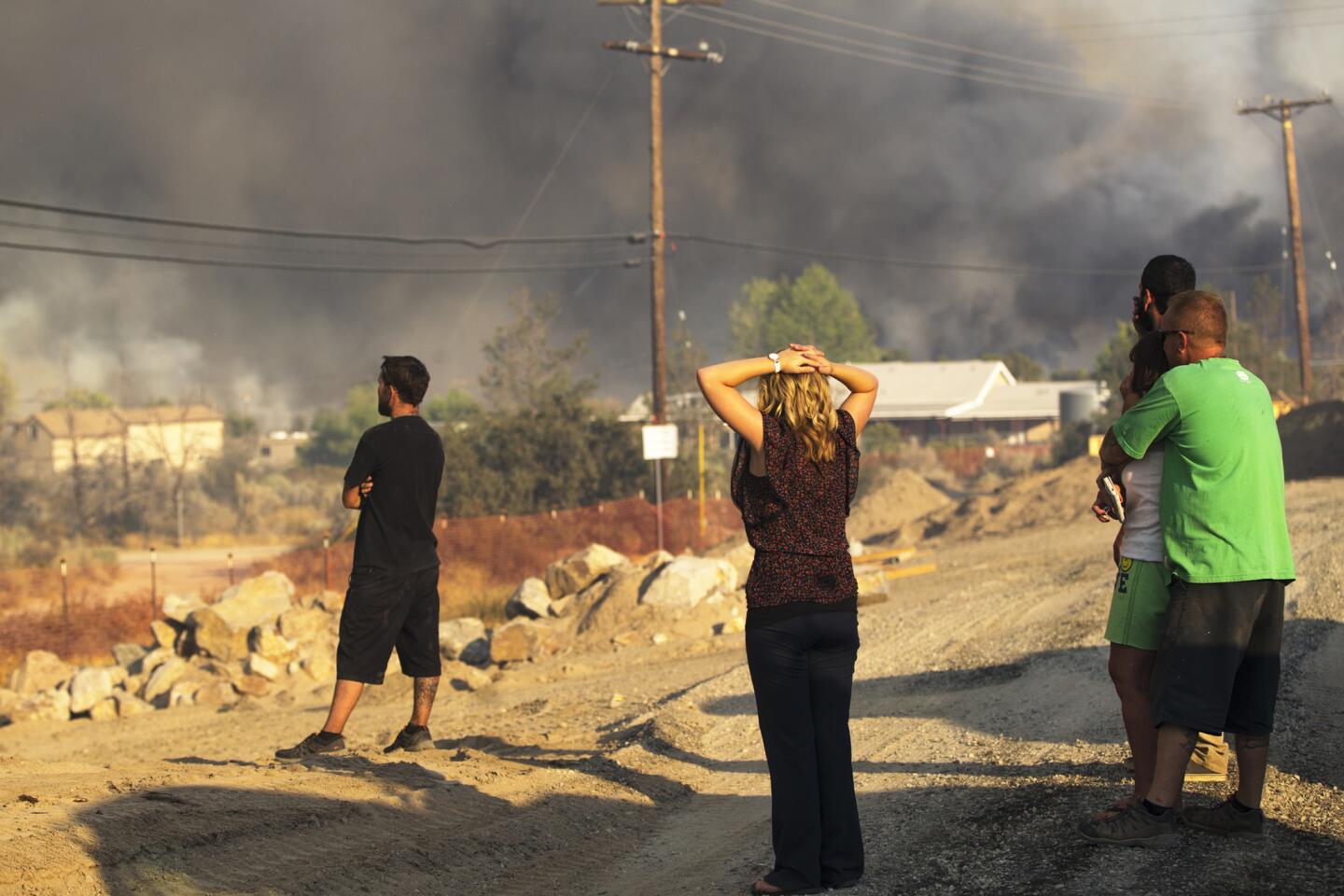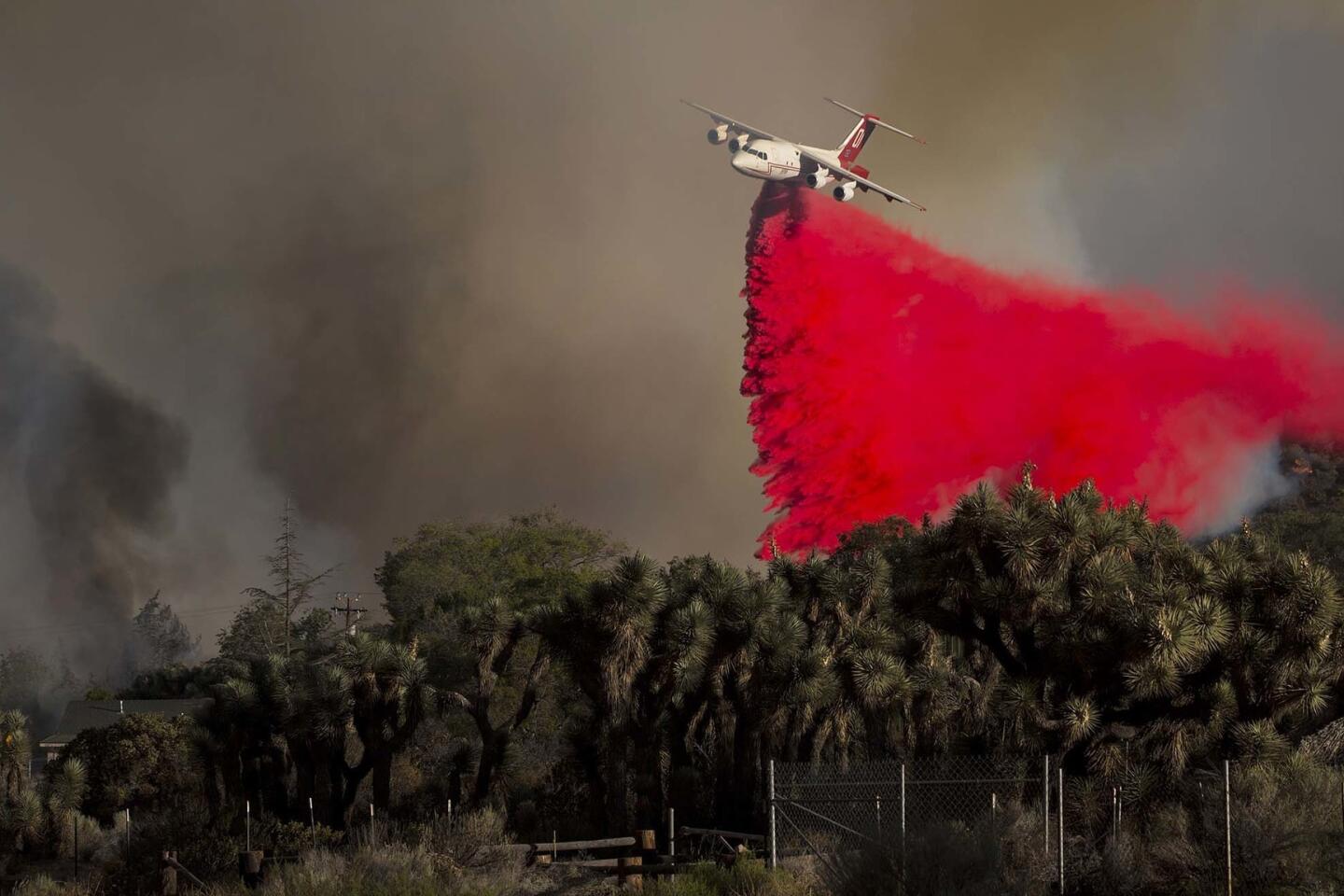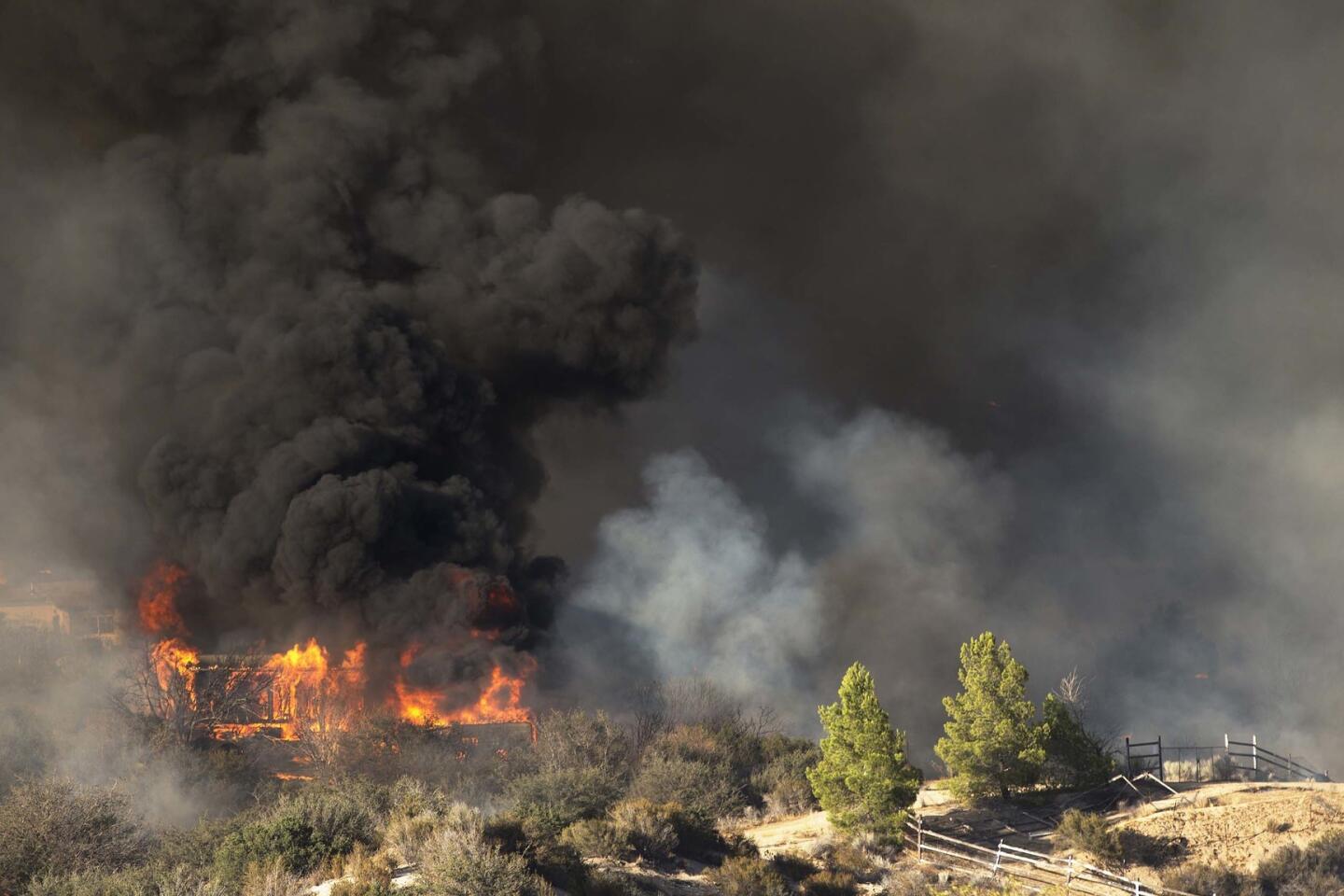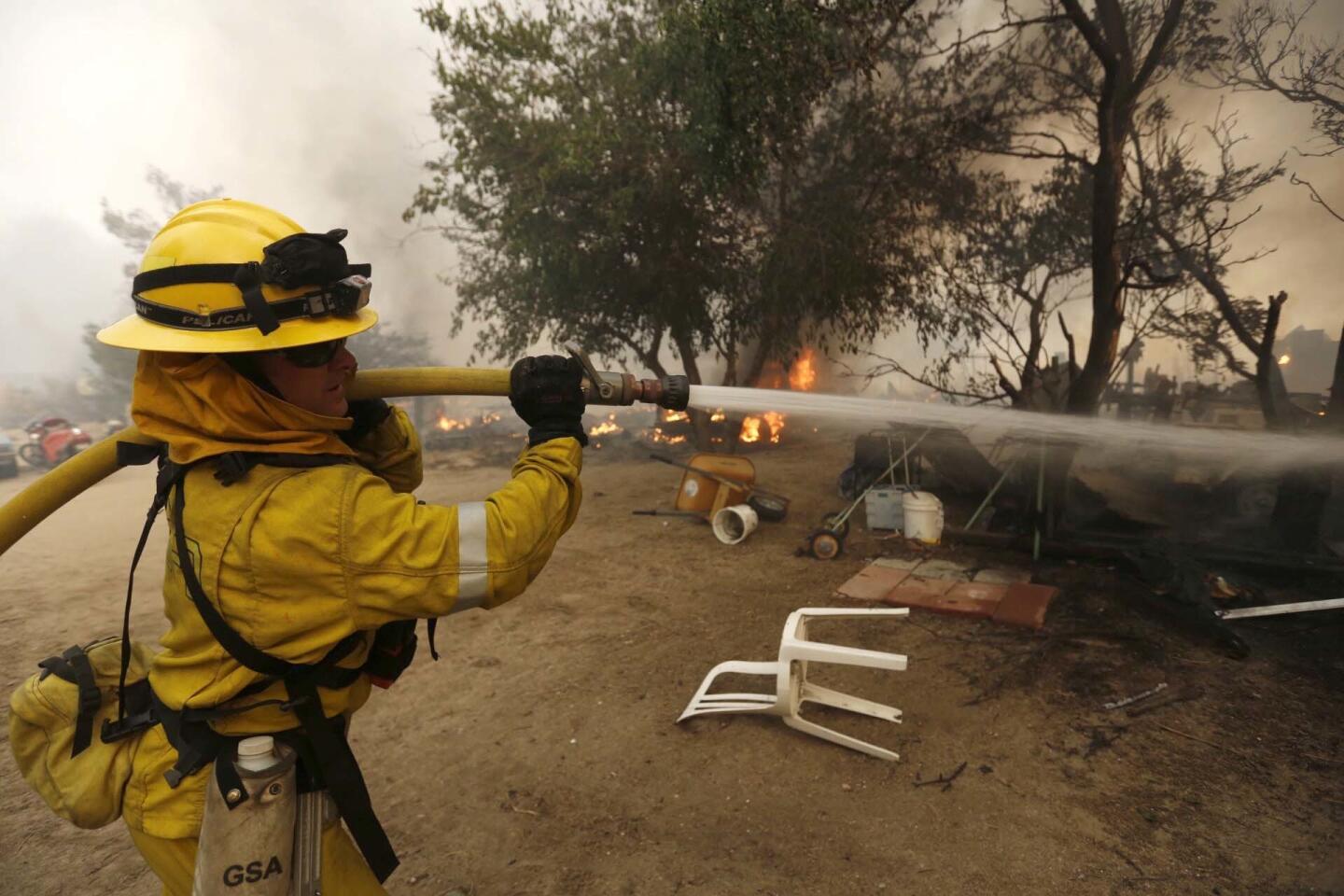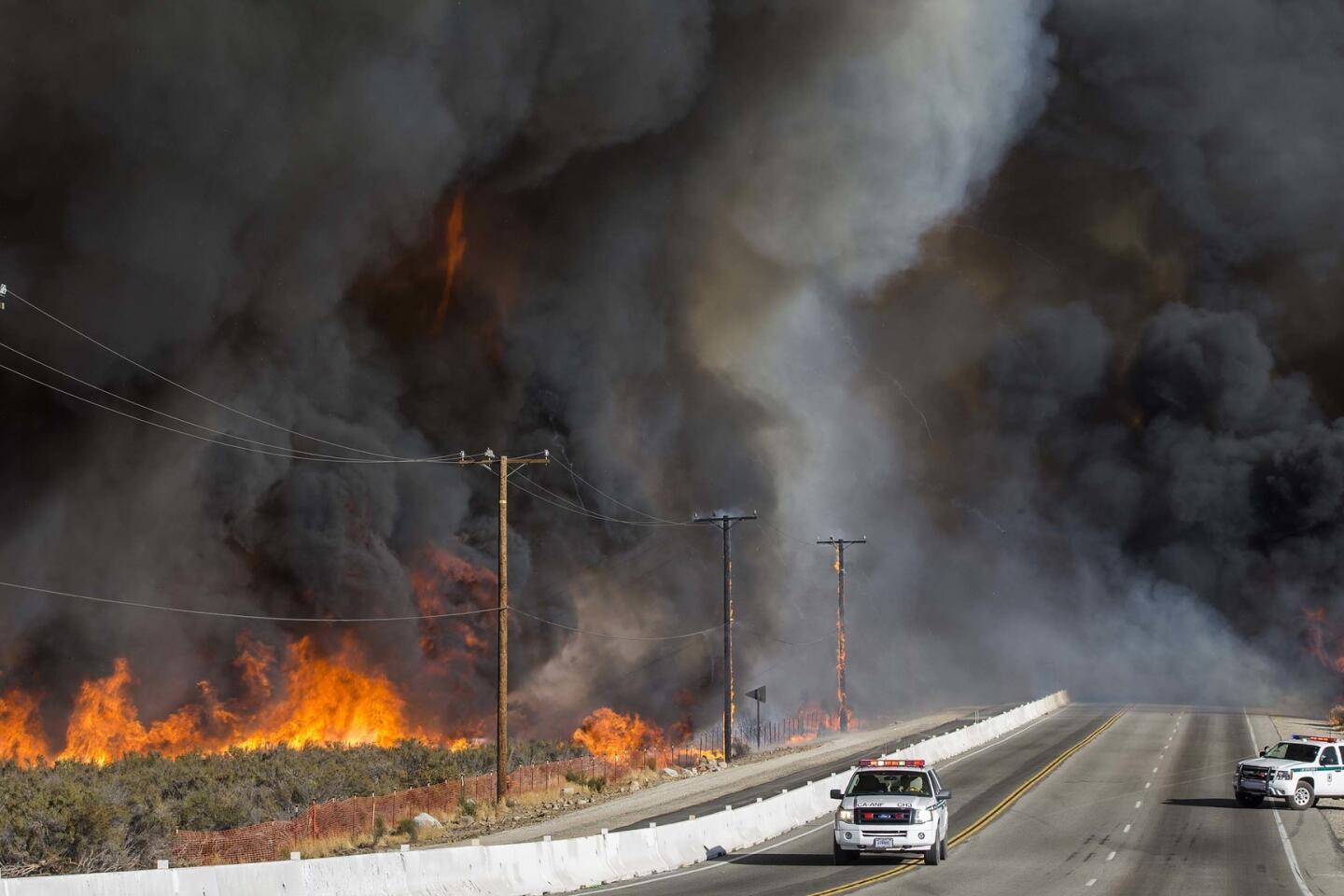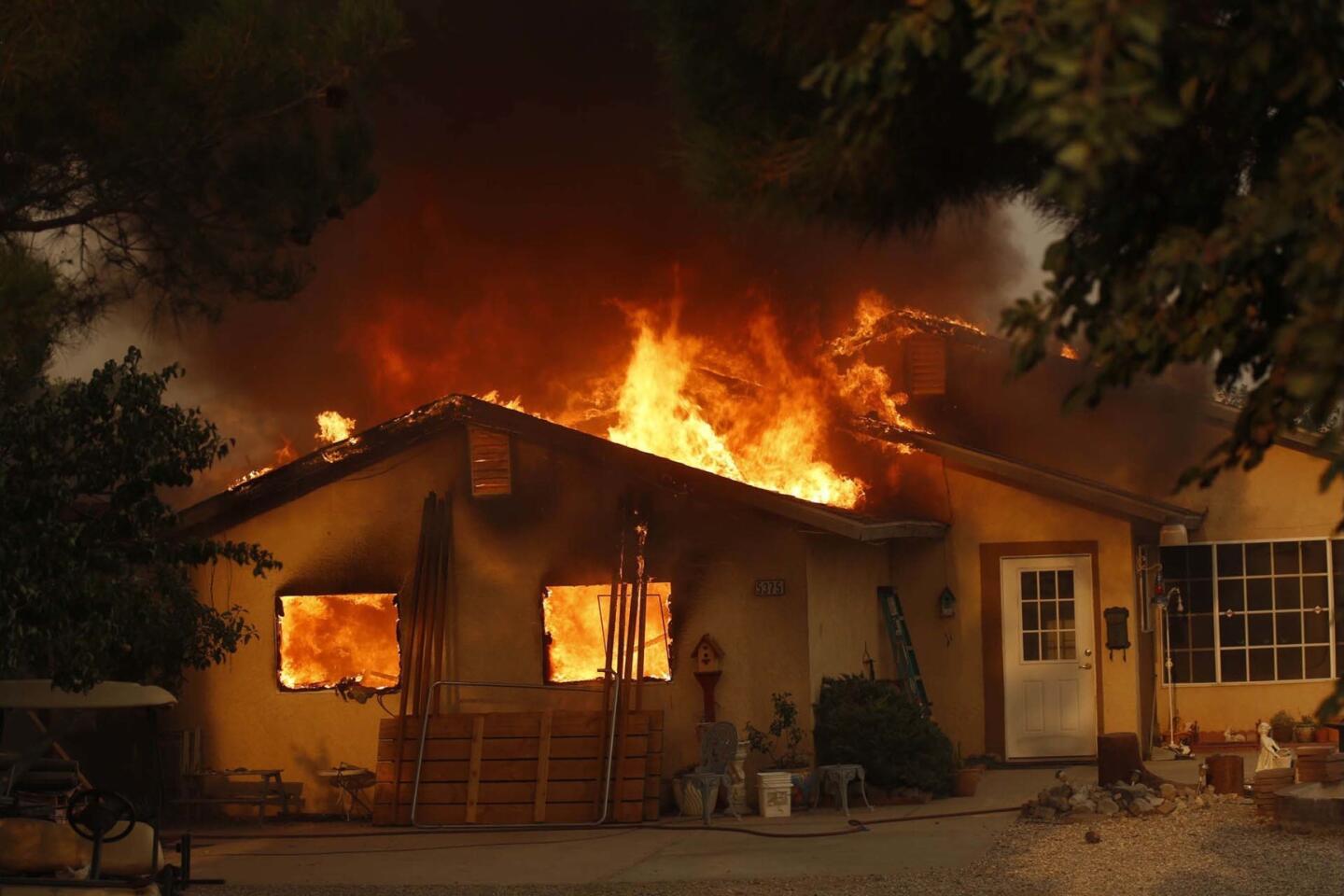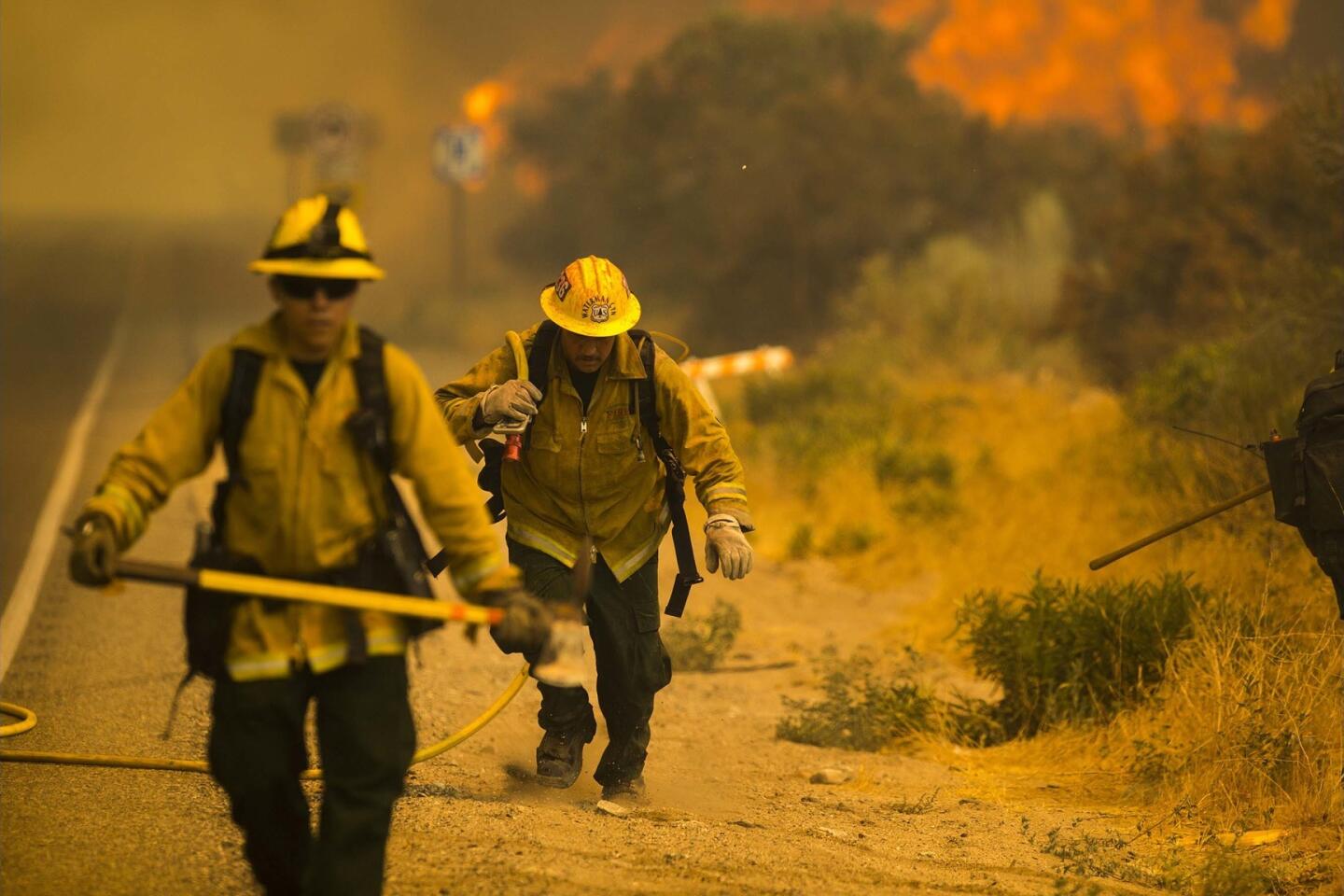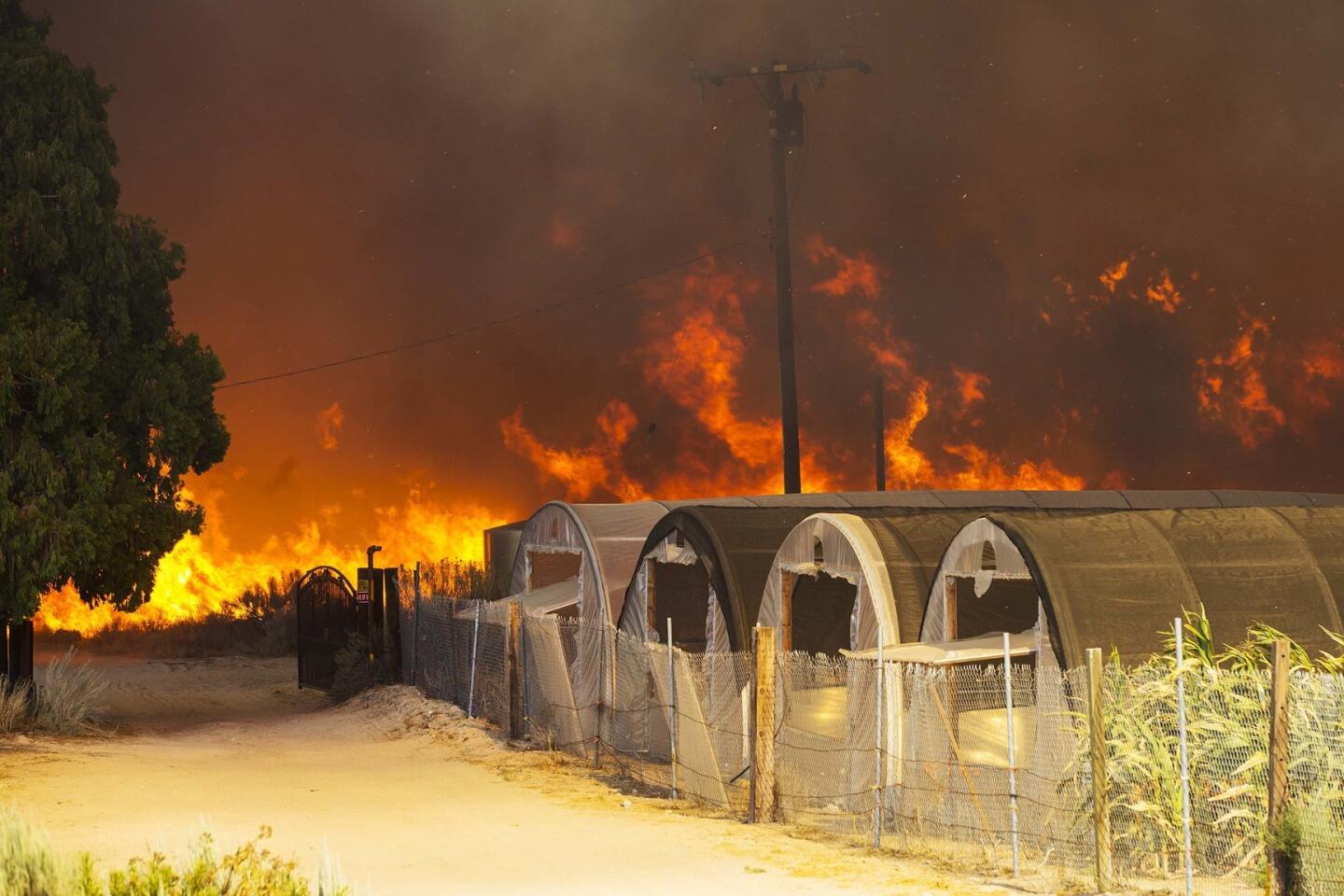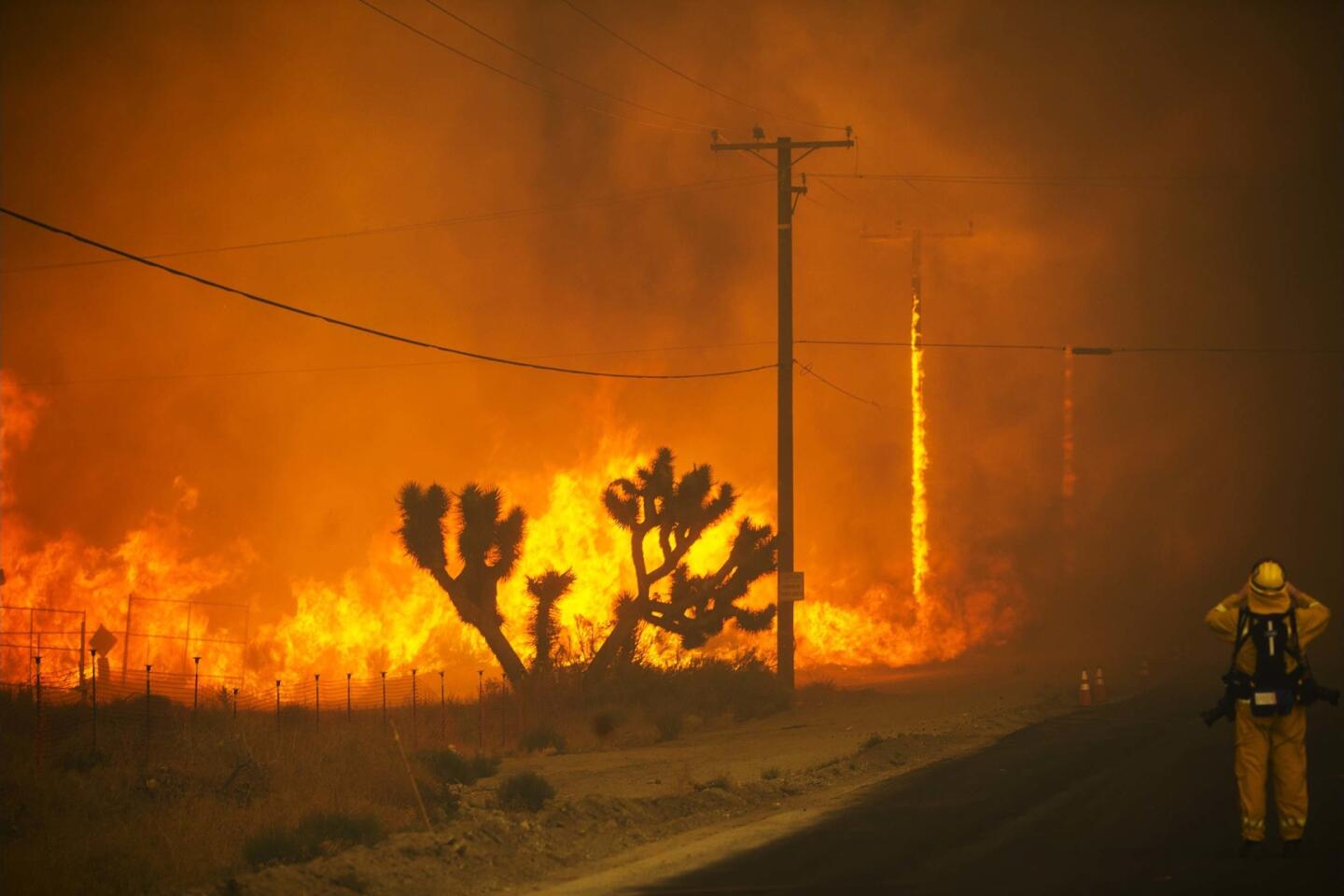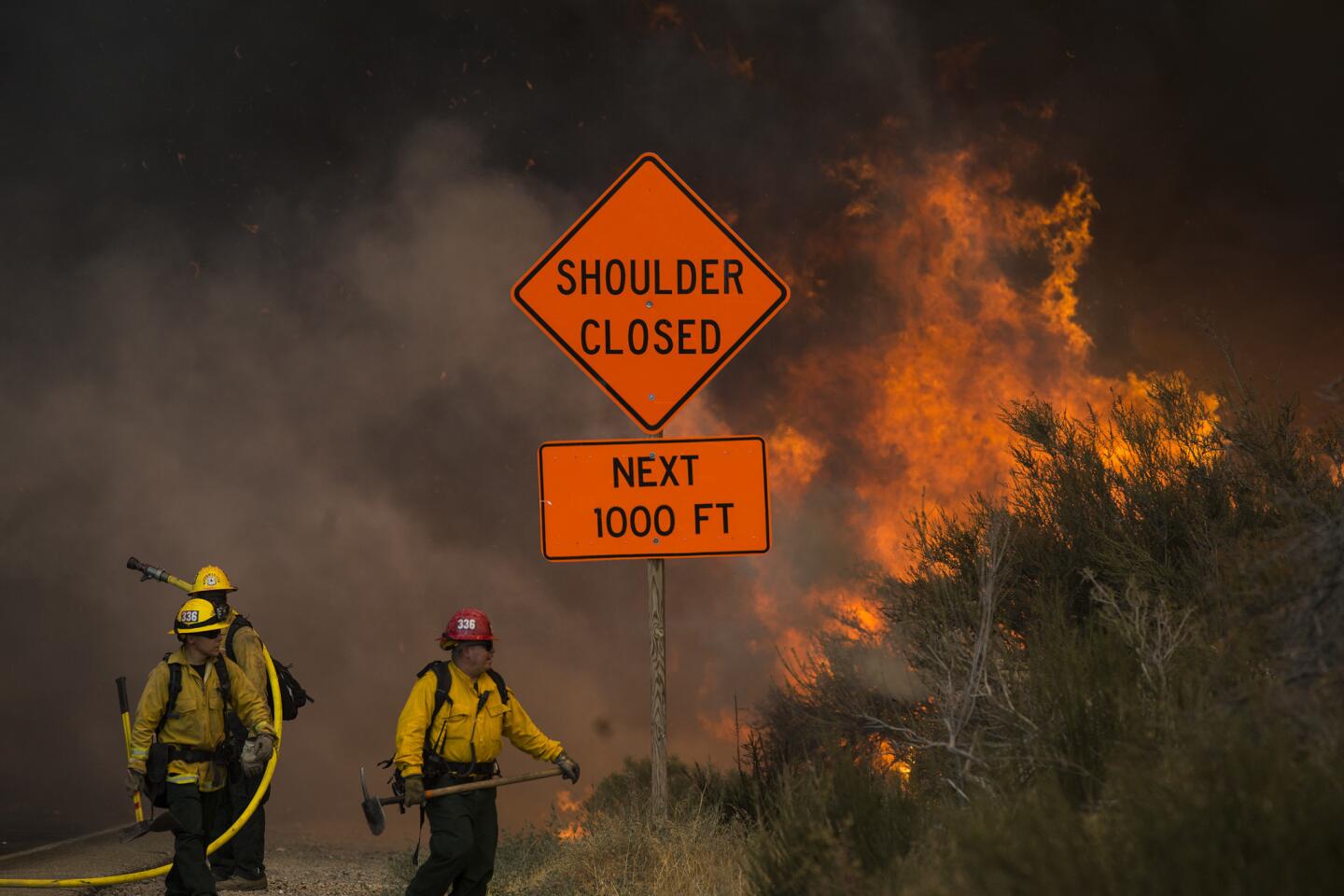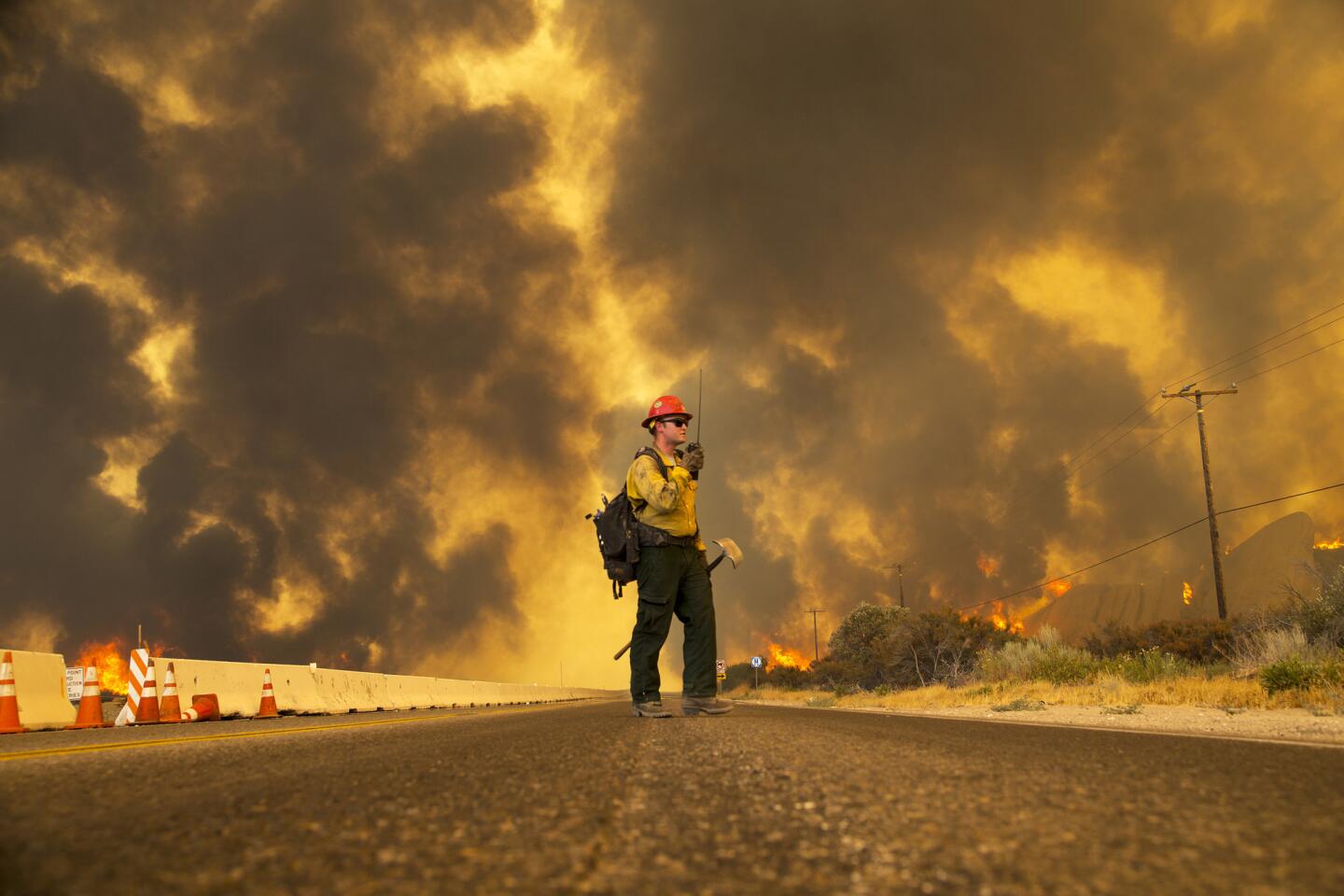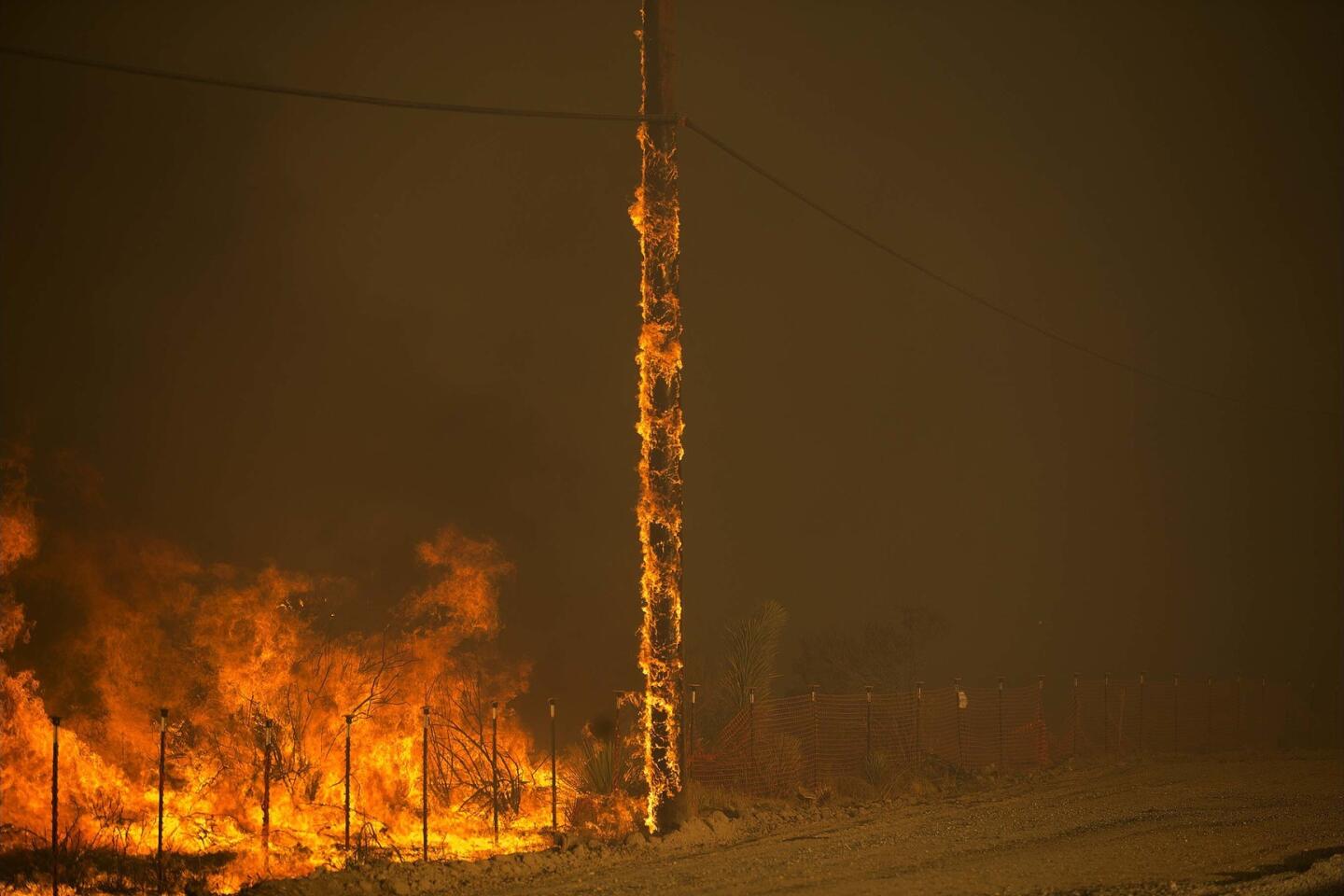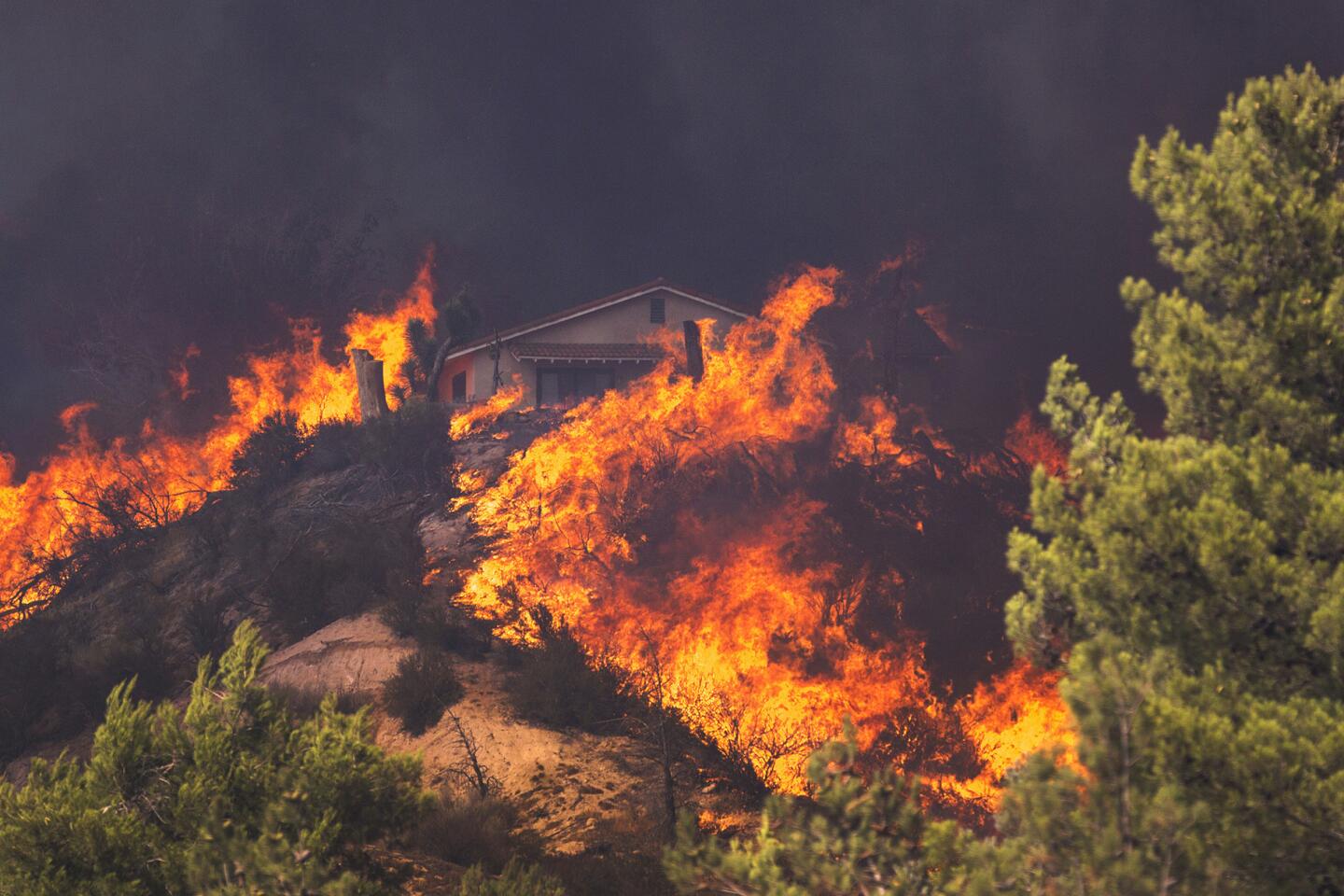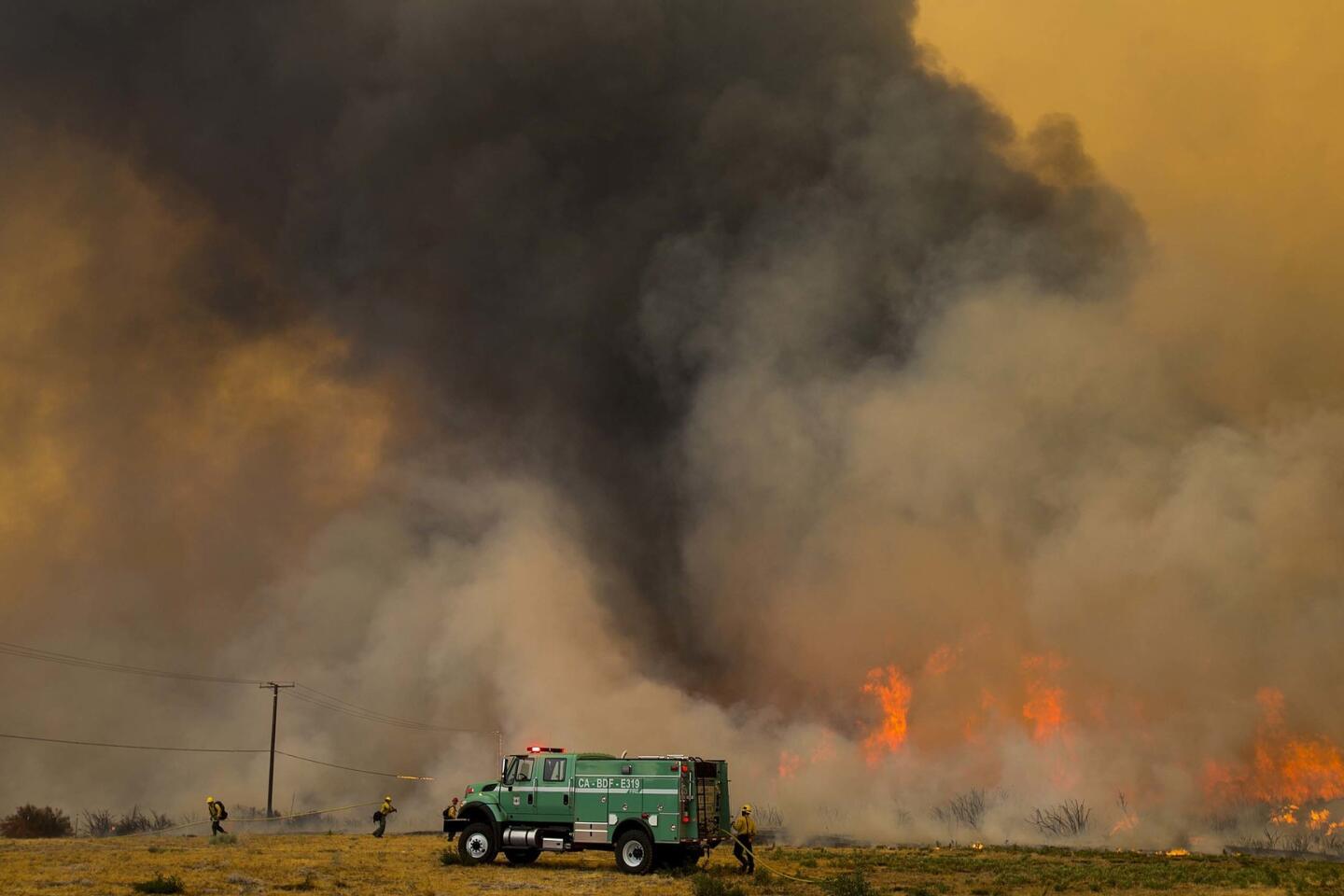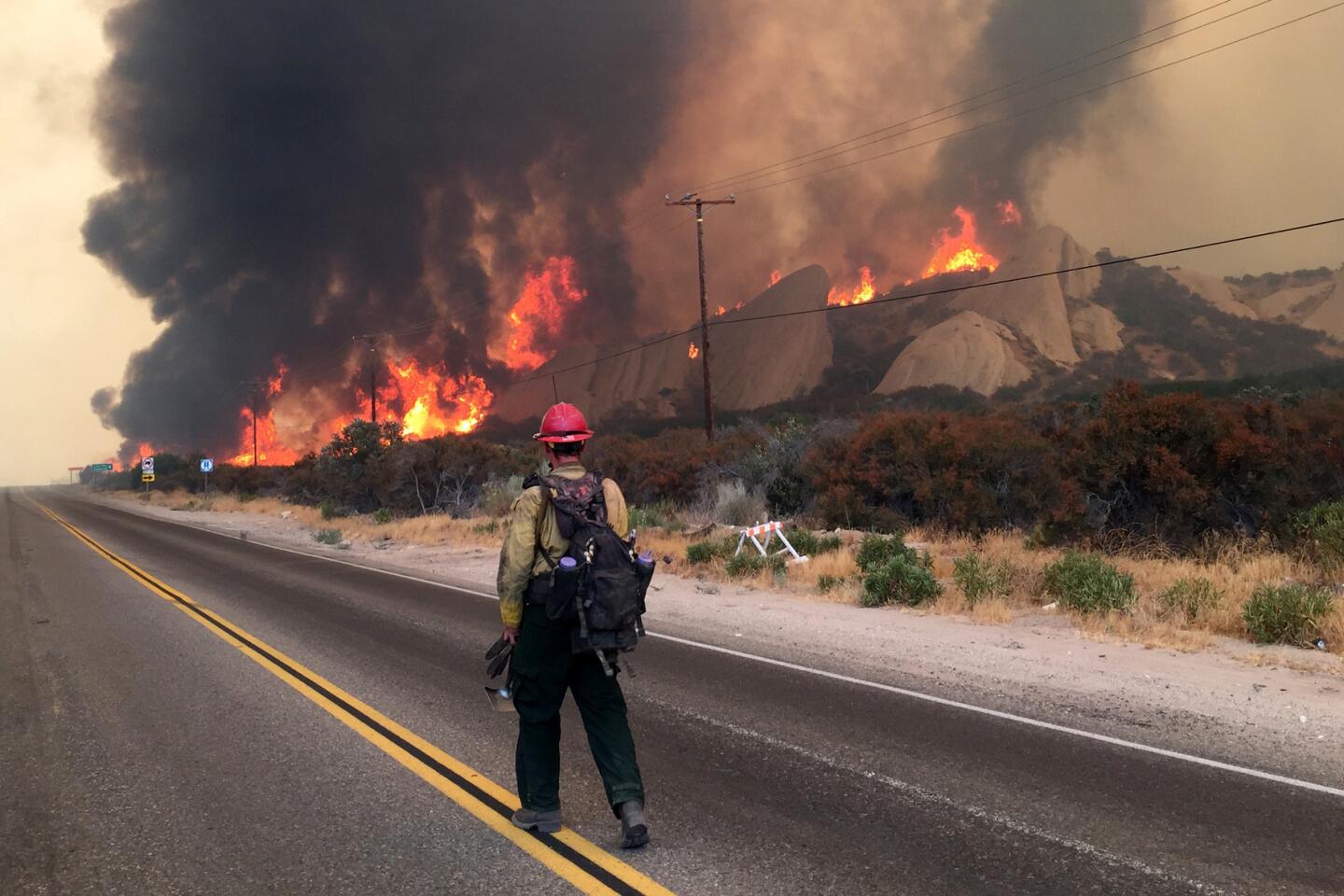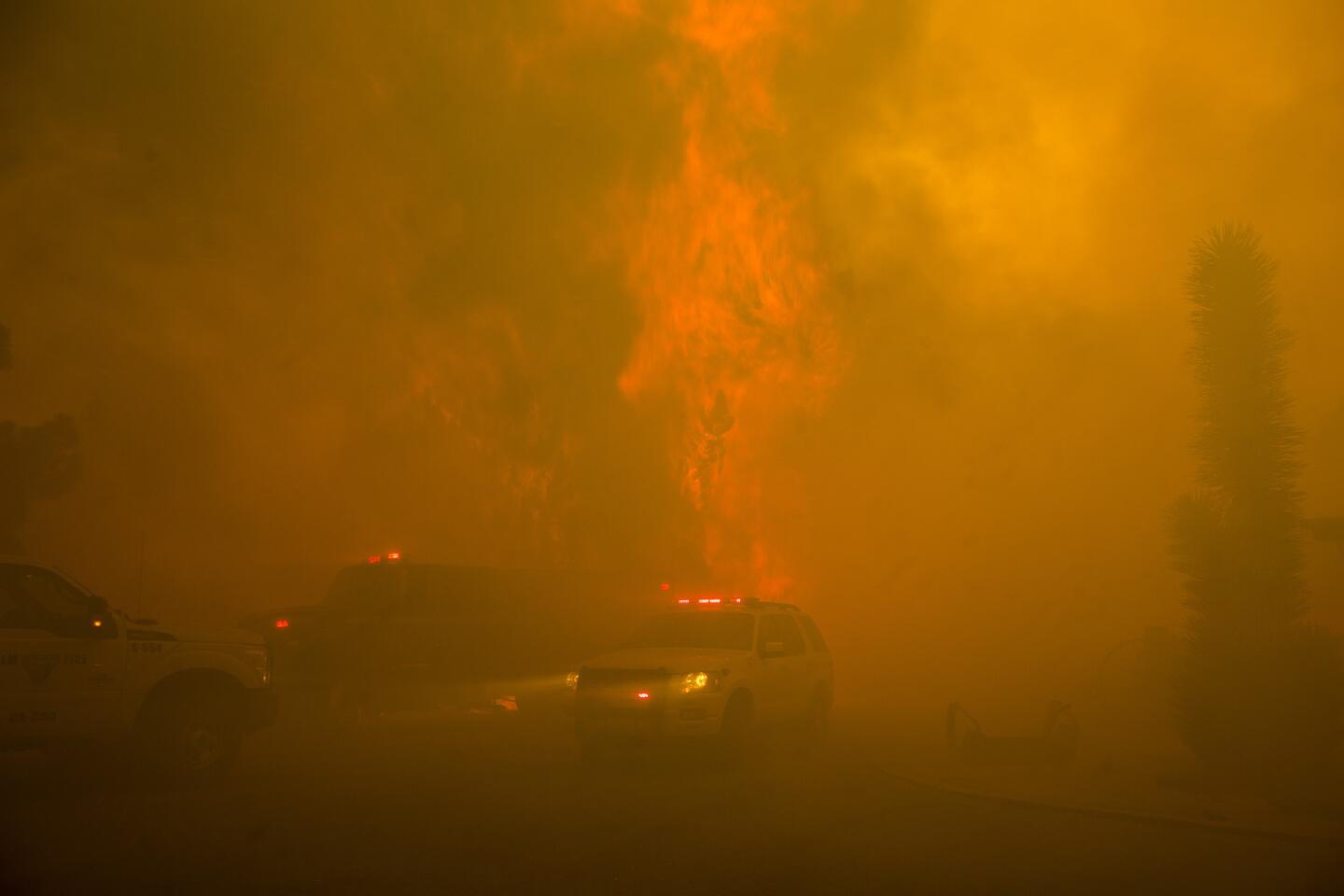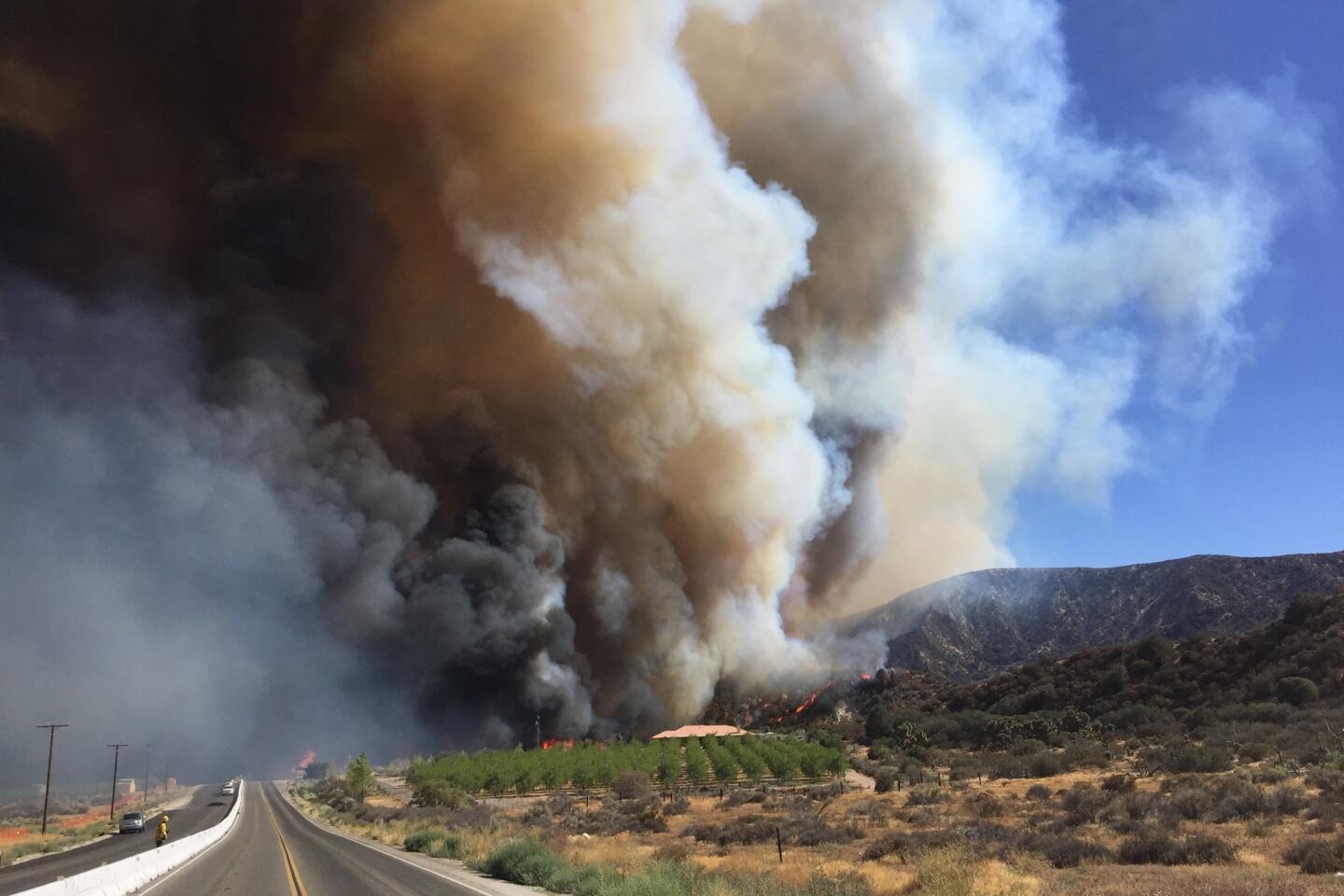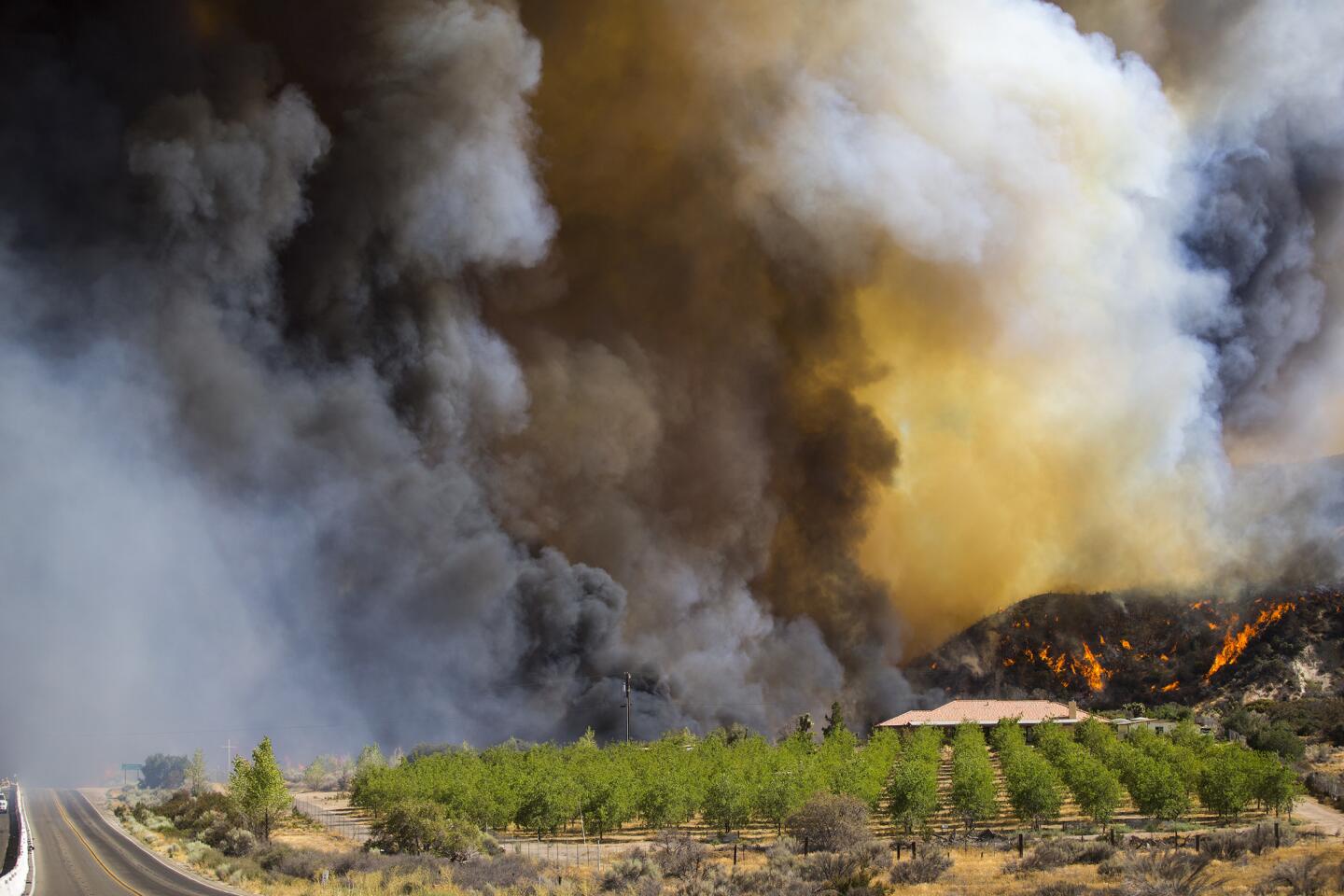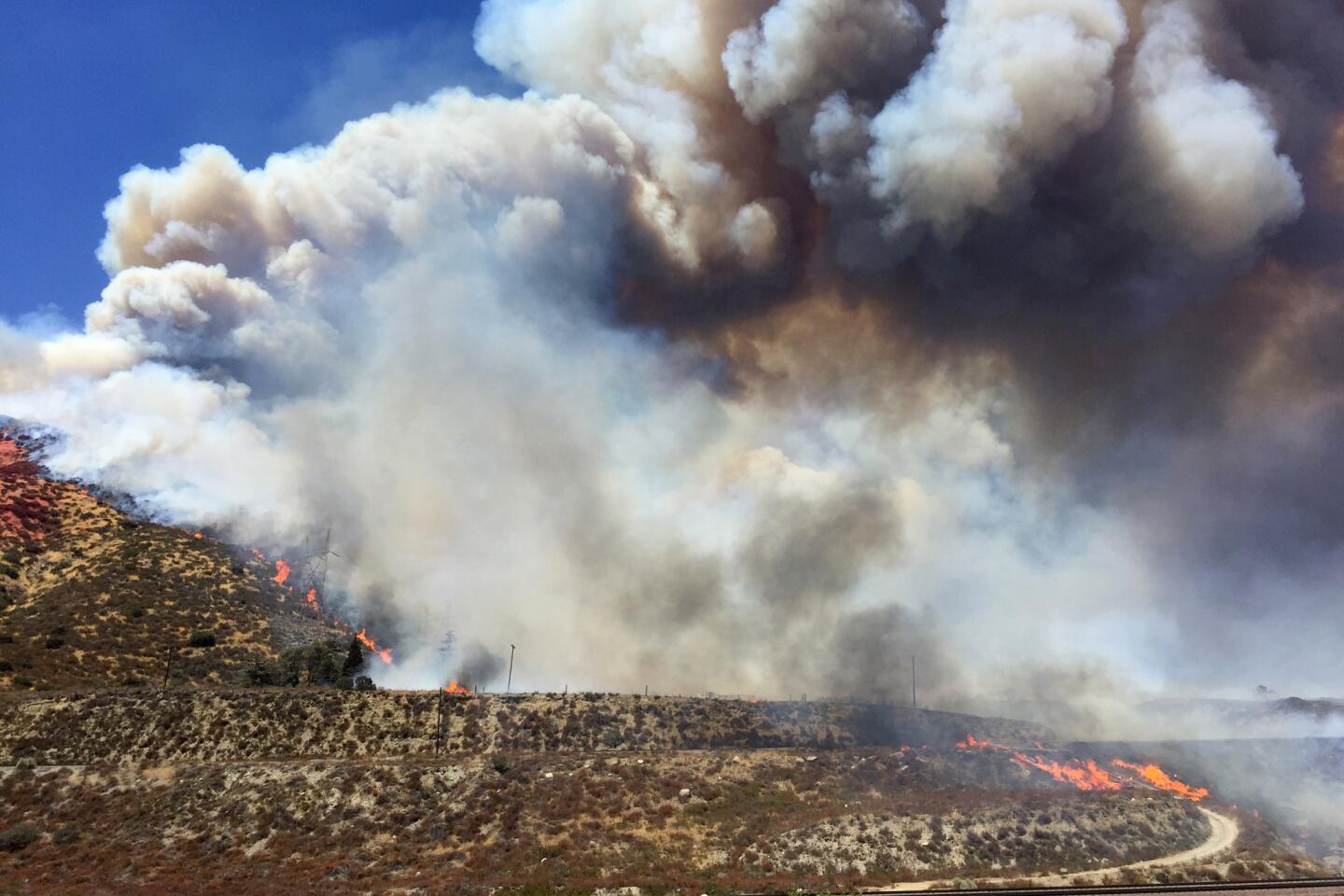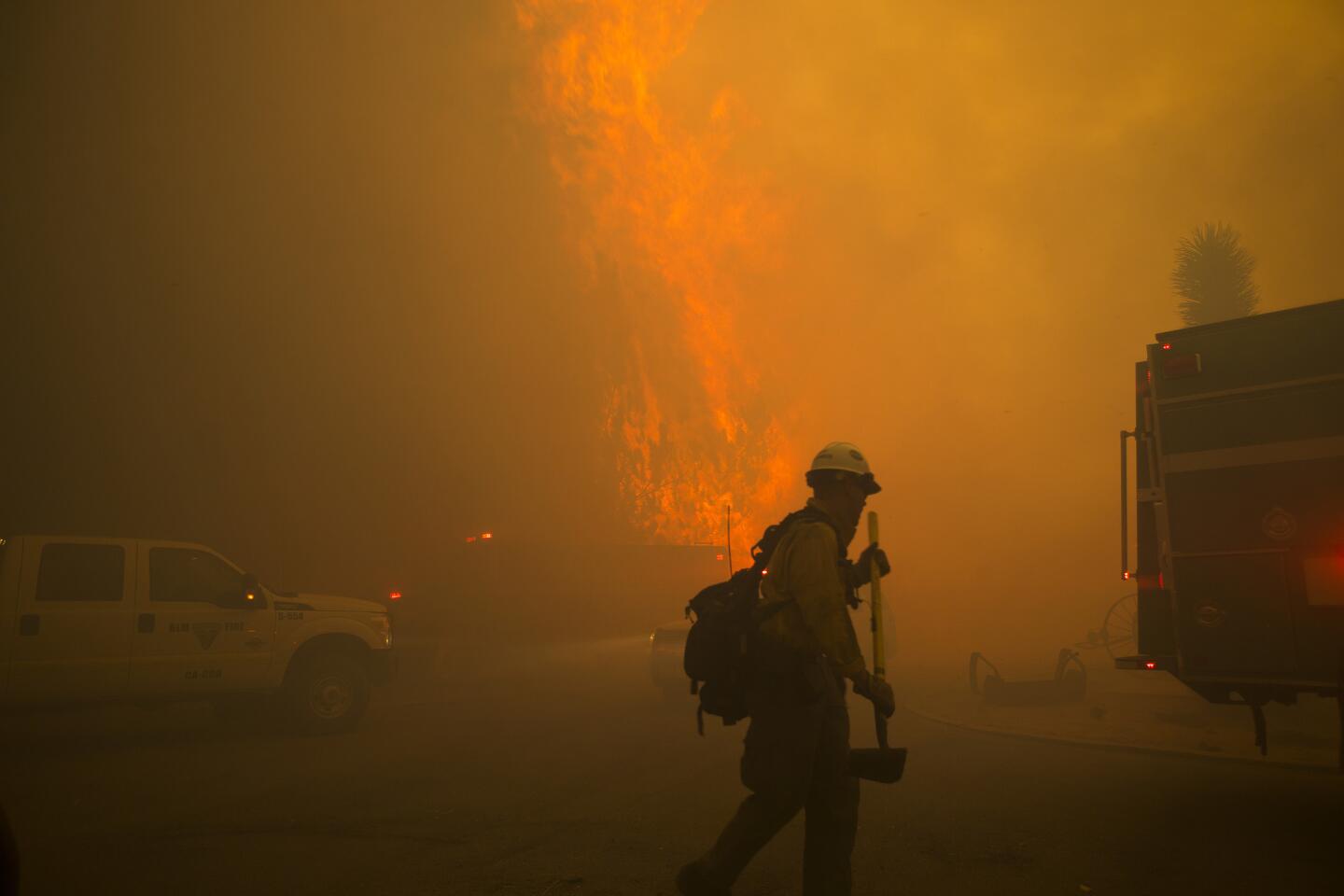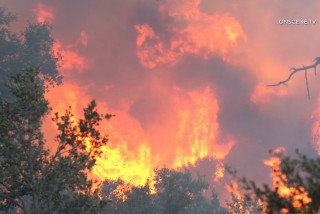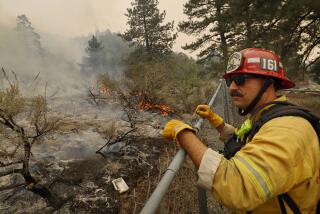Blue Cut fire in the Cajon Pass destroys 105 homes and 213 other buildings
Reporting from Oak Hills — The tally for California’s harsh fire season ascended to even grimmer terrain Saturday as officials announced that the Blue Cut fire in the Cajon Pass has destroyed 105 homes and 213 other structures.
The toll in San Bernardino County caps a week of extensive losses across California, including 300 structures destroyed in Lake County in Northern California when a wildfire raced through the town of Lower Lake, hammering its downtown area.
In both cases, officials said, the fires ravaged rural communities on the edges of vast open spaces so quickly that there was little firefighters could do. They blamed California’s five-year drought, which has left brush bone-dry, as well as hot, windy weather conditions.
“They are just moving as fast as the wind can push them, and that’s leading to what we’re seeing in terms of devastation,” said Char Miller, a Pomona College professor who’s an expert in wildfires. “Let’s call it an imperfect storm of conditions: the drought, the heat, the low humidity. And let’s be honest, this is not really big winds.”
Miller and other experts said the Blue Cut fire, which erupted Tuesday, is the latest harbinger of what could be a difficult fall when fierce Santa Ana winds traditionally cause many Southern California wildfires to pick up.
“If this came with Santa Ana, oh, my God, this would have been double or triple damage,” Miller added.
The blaze has covered more than 37,000 acres and was 68% contained as of Saturday morning, prompting officials to lift some evacuation orders and allowing residents to return to their homes. At the peak of the fire, more than 80,000 people were ordered to evacuate.
More than 2,600 firefighters are battling the blaze, officials said. They are being assisted by 12 air tankers and 14 water-dropping helicopters.
The property losses were scattered over a wild swath of the Cajon Pass.
The last time Mabel Ramos saw her peach-colored home was through the rear-view mirror of her car as she was pulling out of her driveway soon after the Blue Cut fire started. She saw flames as high as a utility pole surrounding her property.
“I was thinking, ‘Our Lord, dear father, his son, Jesus, and the Holy Spirit, please, when I leave this gate, take care of my house,’ ” she said.
Ramos returned to her home late Thursday afternoon. When she got to the gate, she found the charred Jaguar that she and her husband drove off in after getting married. Then she saw the guest house that she and her husband had built together, now a pile of rubble.
“I cried,” she said. “It was terrible.”
On Friday, she stood in what was once the living room of the guest house. The singed metal frame of a coffee table stood nearby. Other parts of the house survived, including a cast-iron wood stove.
The guest house was special, Ramos said. Her grandmother from El Salvador and family in Canada would stay there whenever they visited. Her son, who lives in Los Angeles, used it as second home.

Raw video from Blue Cut fire near the Cajon Pass.
The shed where she kept her animals also burned. She lost 135 of her livestock.
“I didn’t have time to even open the door,” she said, stifling tears.
Though the fire is slowly being contained, those whose homes were burned are just beginning to come to terms with the loss.
“We know that there are going to be people who are going to come home to nothing in a fire like this that seemed to burn at will and jump literally a half-mile ahead of itself,” San Bernardino County Fire Chief Mark Hartwig said. “There are also going to be homes that are saved. You scratch your head and wonder why those survived and those that seemed to be positioned better did not.”
The Blue Cut fire came just one week after another major blaze nearby, the Pilot fire.
“It’s been a tough couple weeks for the people of San Bernardino County,” Hartwig said. “It seems like much more than two weeks.”
San Bernardino has seen much more destructive fires in its history. In 2003, the deadly Old fire burned more than 90,000 acres and destroyed nearly 1,000 structures. That fire burned during the heart of the Santa Ana winds season at the same time as several other destructive blazes that have come to be known as the 2003 fire storm.
So far this year, there have been more wildfires in California, but they have consumed fewer acres compared with last year. Some 3,640 fires erupted between Jan. 1 and Aug. 13 of 2015 and charred 144,645 acres, according to data from the California Department of Forestry and Fire Protection. This year, 3,874 fires have burned 112,950 acres through Aug. 13. Seven people have died.
The Blue Cut fire continued to be most active in the Gobbler’s Peak area, just south of Wrightwood. Gusty winds, high temperatures and low humidity are expected to persist and could create the same challenges that have hampered crews since the blaze erupted.
Although the fire calmed slightly overnight and halted its march north and east, a red-flag warning remains in effect.
On Friday afternoon, some signs of progress were evident.
Mandatory evacuations were lifted in several communities, and Caltrans reopened the 15 Freeway on Thursday. The route connects Los Angeles and Las Vegas and is a key trucking and commuter route that runs from San Diego, through the Inland Empire and across the Mojave Desert into Nevada.
Its two-day closure had contributed to massive congestion, creating nightmares for travelers and those trying to evacuate.
A portion of Highway 138, another major roadway in the area, also reopened, according to the California Highway Patrol. And with both sides of the 15 Freeway reopened, truckers like Kevin Holladay were able to return to their usual commute.
Holladay prayed the flames would calm down, he said — not because of the drive but because of the destruction. His thoughts drifted to residents whose homes and animals were threatened by the wildfire.
Driving through the area, he caught a glimpse of some of the damage left behind.
“I was shocked,” he said. “Stuff you’ve seen for years is gone.”
Down a narrow dirt road off Highway 138 in Phelan, a popular Korean church’s retreat center sat in ruins.
About 10 buildings belonging to the Thanksgiving Korean Church were left in large piles of rubble. Rows of scorched metal chairs remained standing in some buildings. Damaged sinks, stoves and washers in others suggest they may have been used as living quarters.
Jinny Lee, owner of a cafe off Highway 138, walked past one incinerated building after another, trying to remember the one where the actual church services took place.
She looked at the charred furniture before her.
“Maybe it’s this building,” she said.
Parvini reported from Los Angeles and Vives from Oak Hills. Times staff writers Joseph Serna and Matt Hamilton contributed to this report.
For more local and breaking news follow me on Twitter: @sarahparvini
ALSO
In pretty Lake County, an arson fire lays out some ugly realities
Wildfire near Santa Barbara burns 600 acres, prompting evacuations
Man with ‘bayonet-style’ weapon killed by police in East Hollywood, LAPD says
UPDATES:
11:10 a.m. This story has been updated with new containment figures and the number of houses and structures destroyed.
Aug. 20, 6:15 a.m.: Updated with the fire 40% contained.
3:15 p.m.: This article was updated throughout with more details.
11:25 a.m.: This article was updated with the number of homes destroyed.
10:30 a.m.: This article was updated with reporting from a truck stop in the Cajon Pass.
9:42 a.m.: This article was updated with an eyewitness account from a camper evacuated due to the Rey fire.
This article was originally published at 8:40 a.m. Aug. 19
More to Read
Sign up for Essential California
The most important California stories and recommendations in your inbox every morning.
You may occasionally receive promotional content from the Los Angeles Times.
